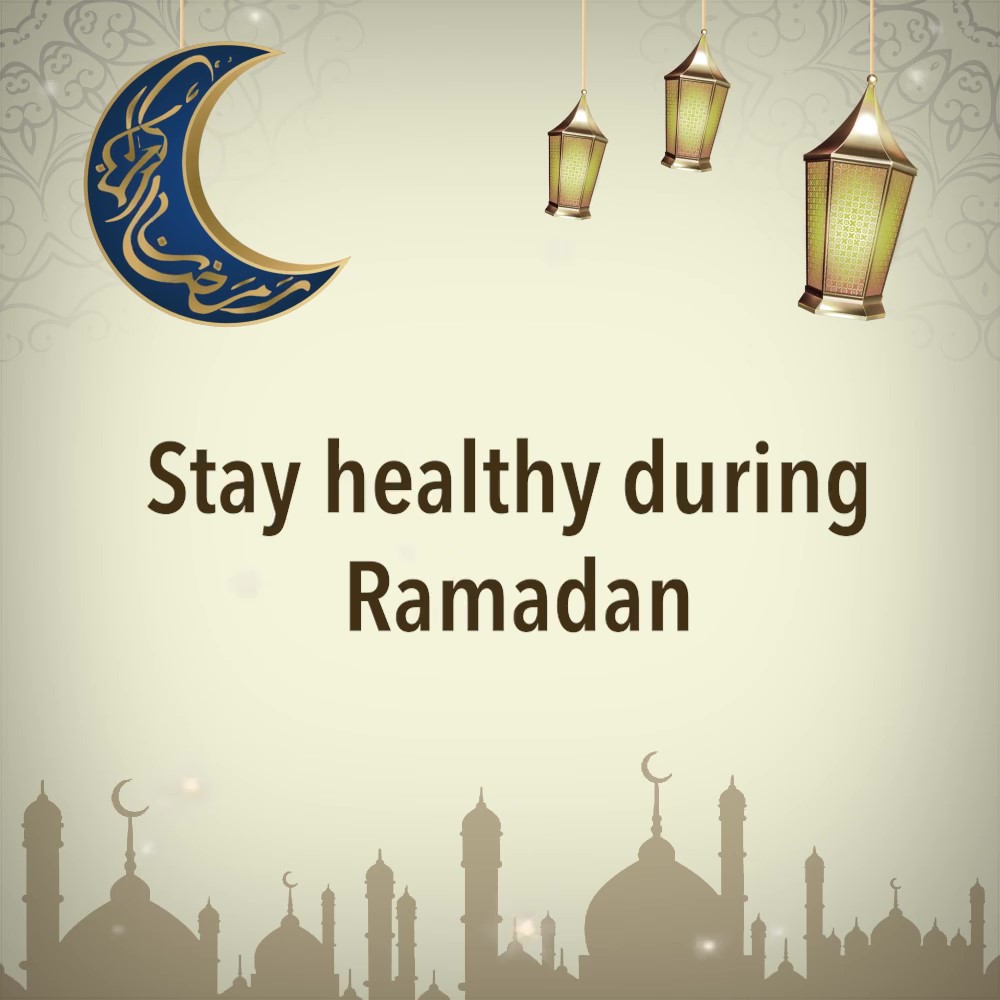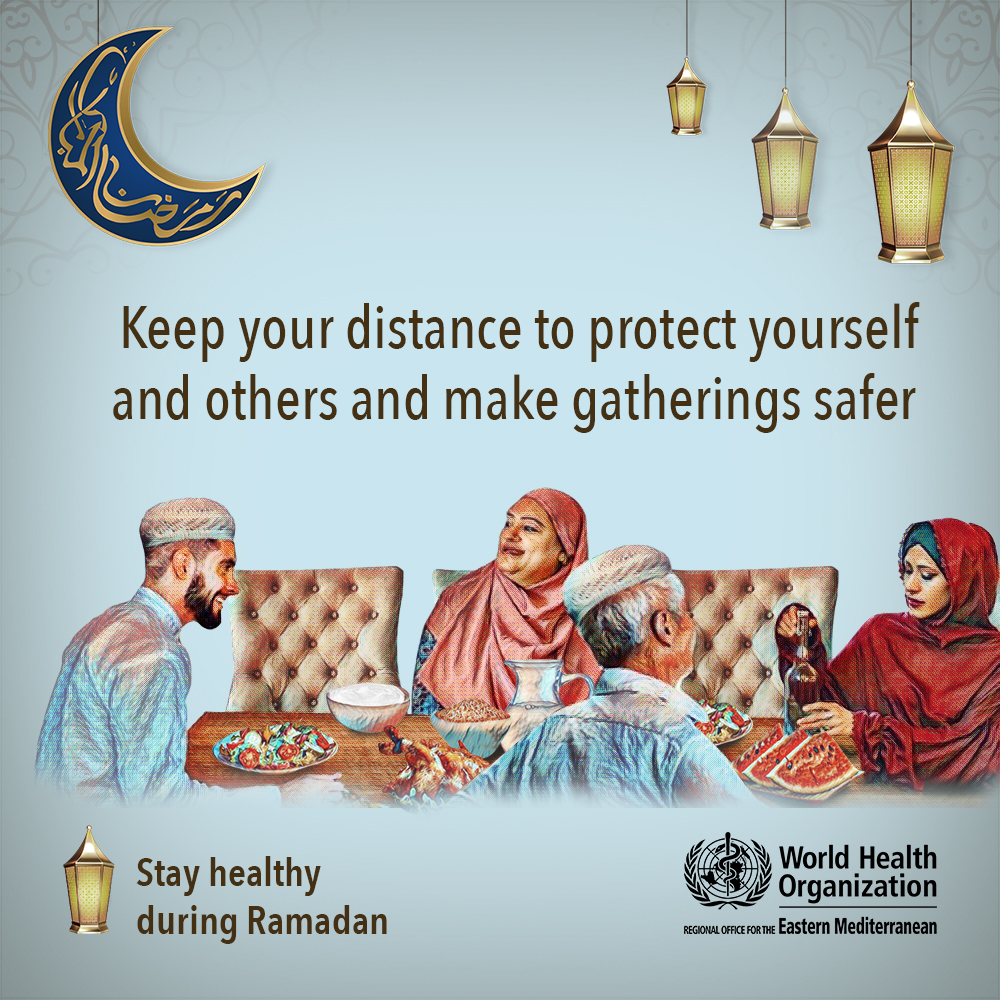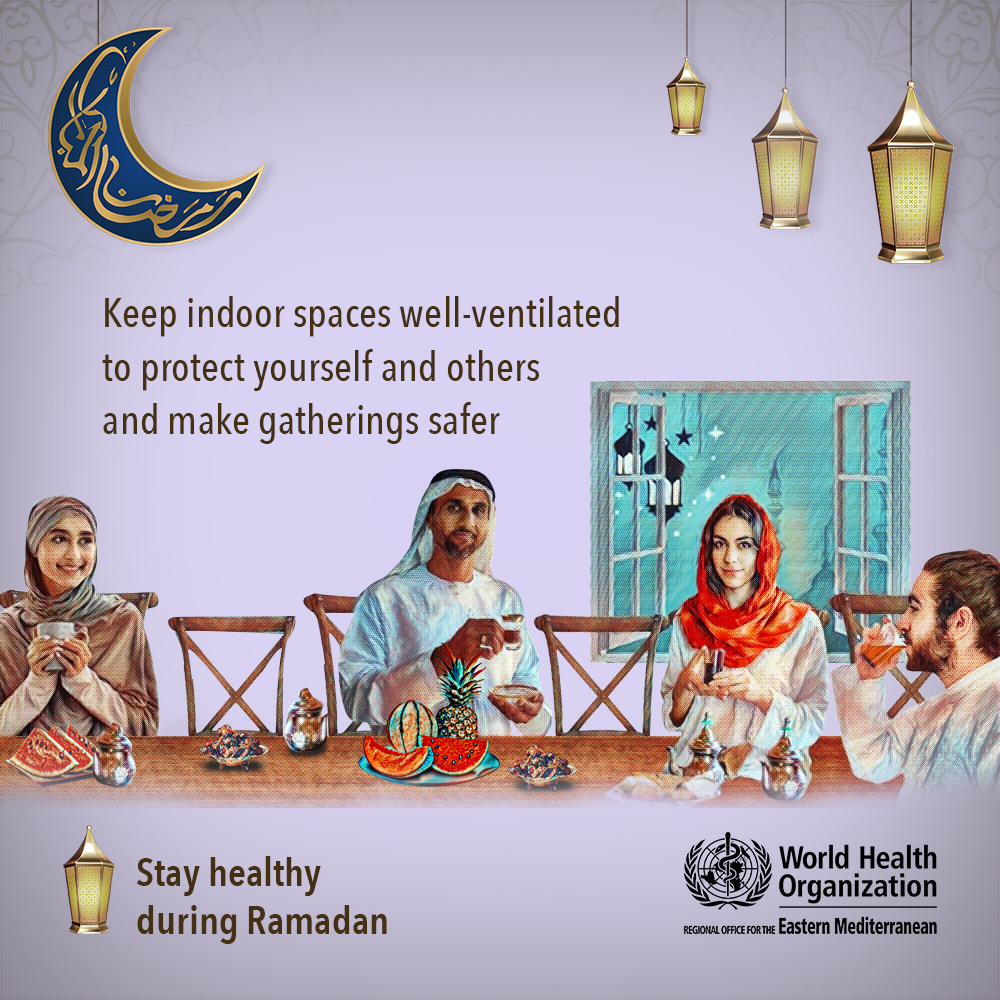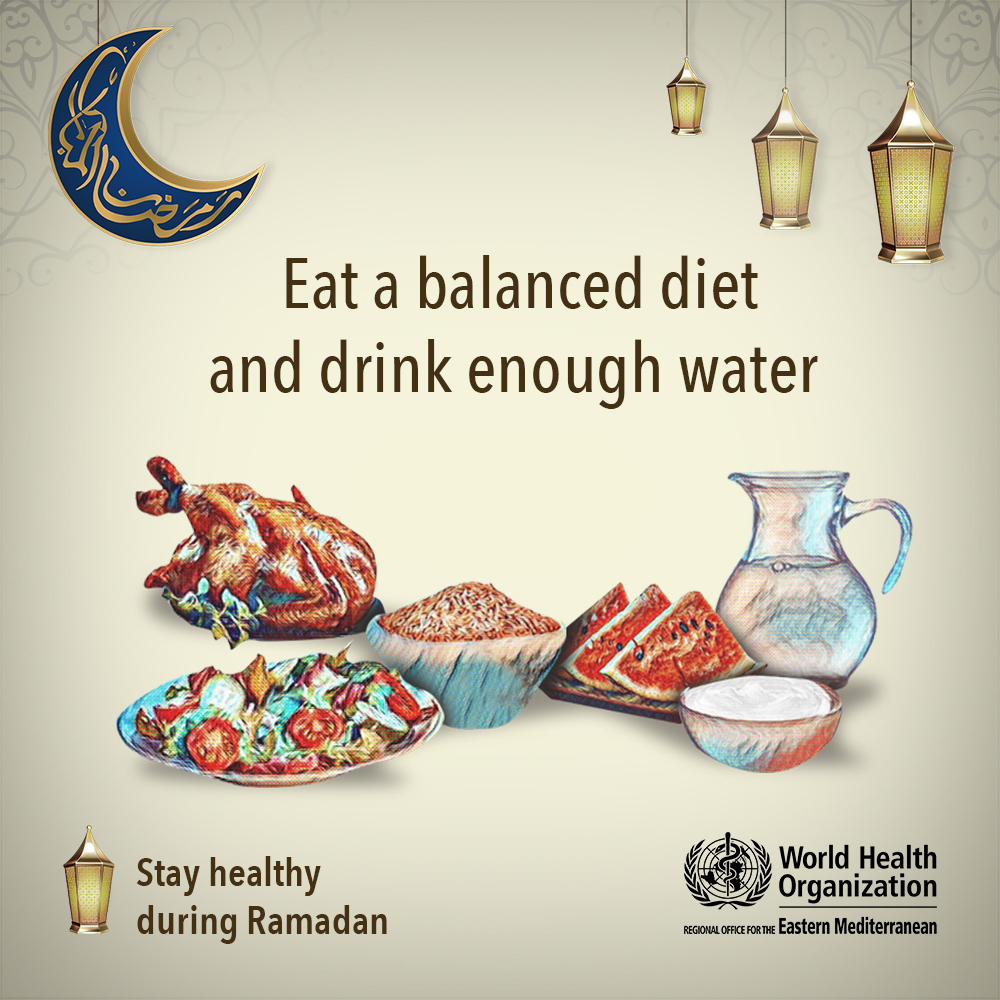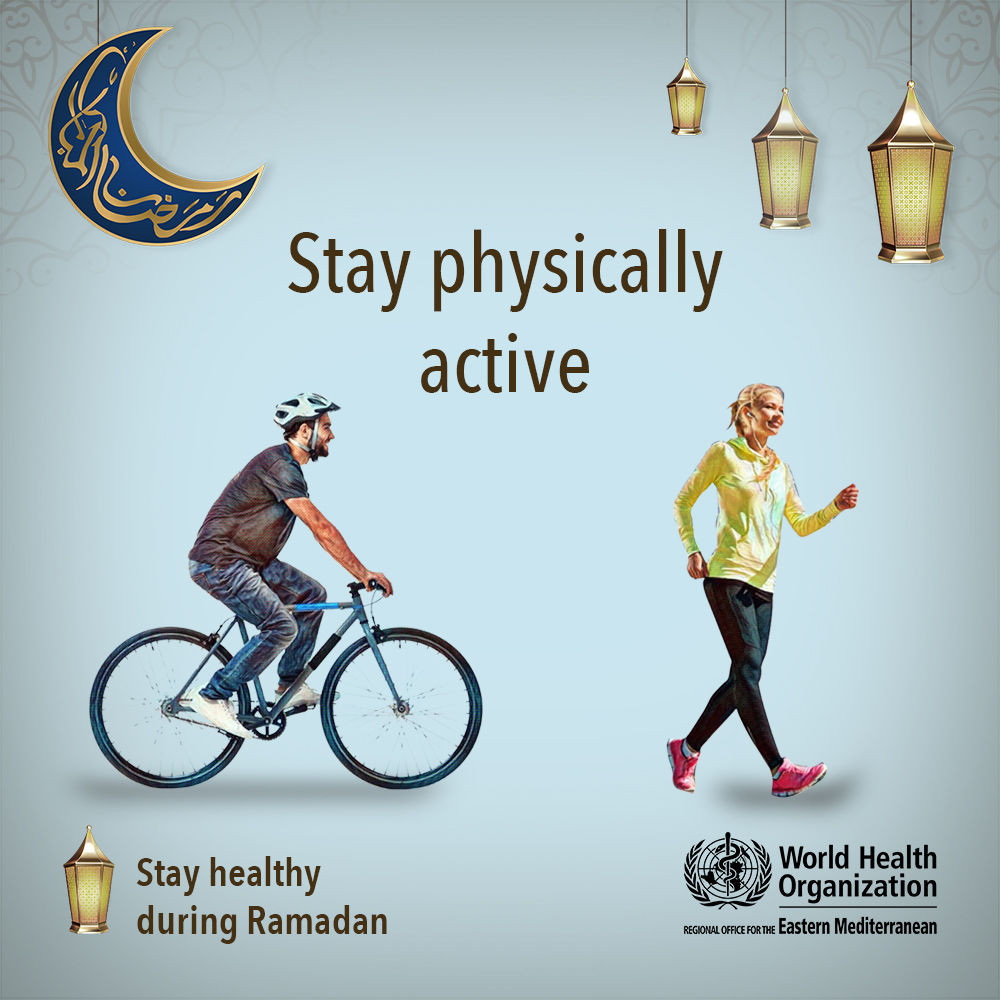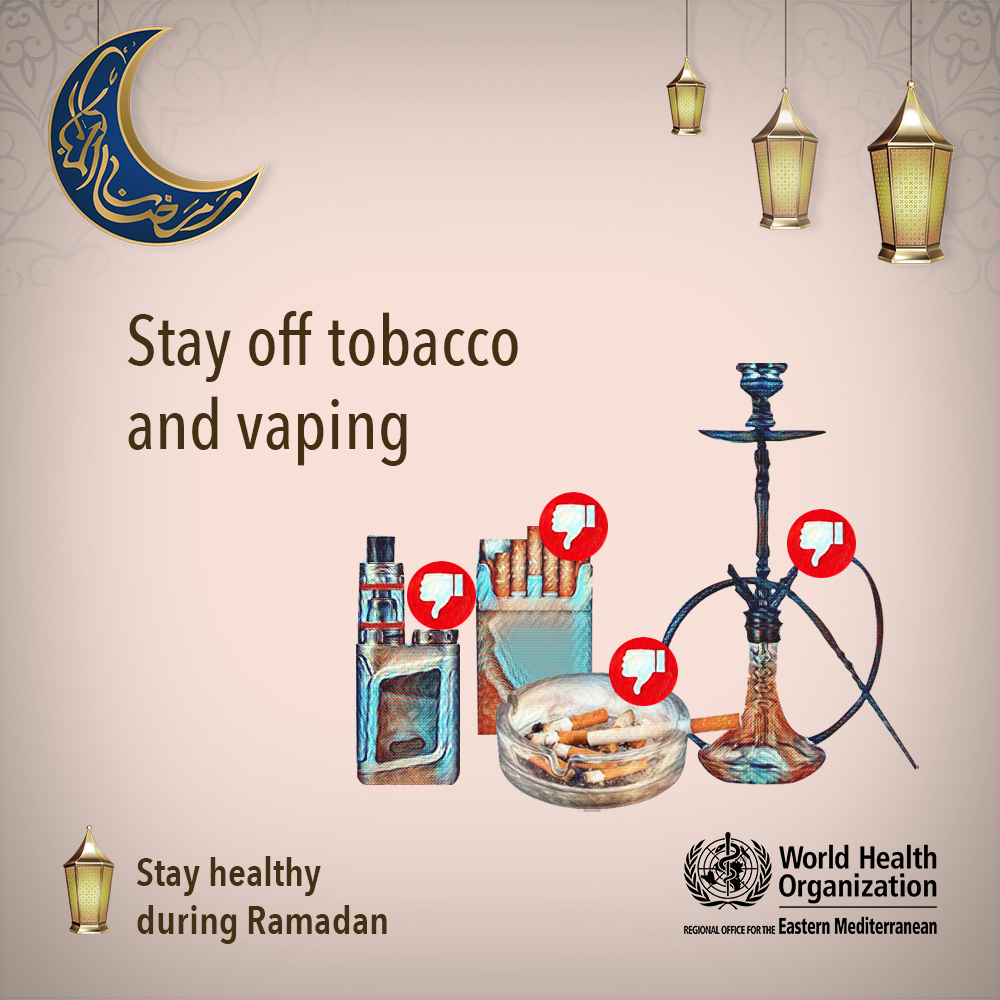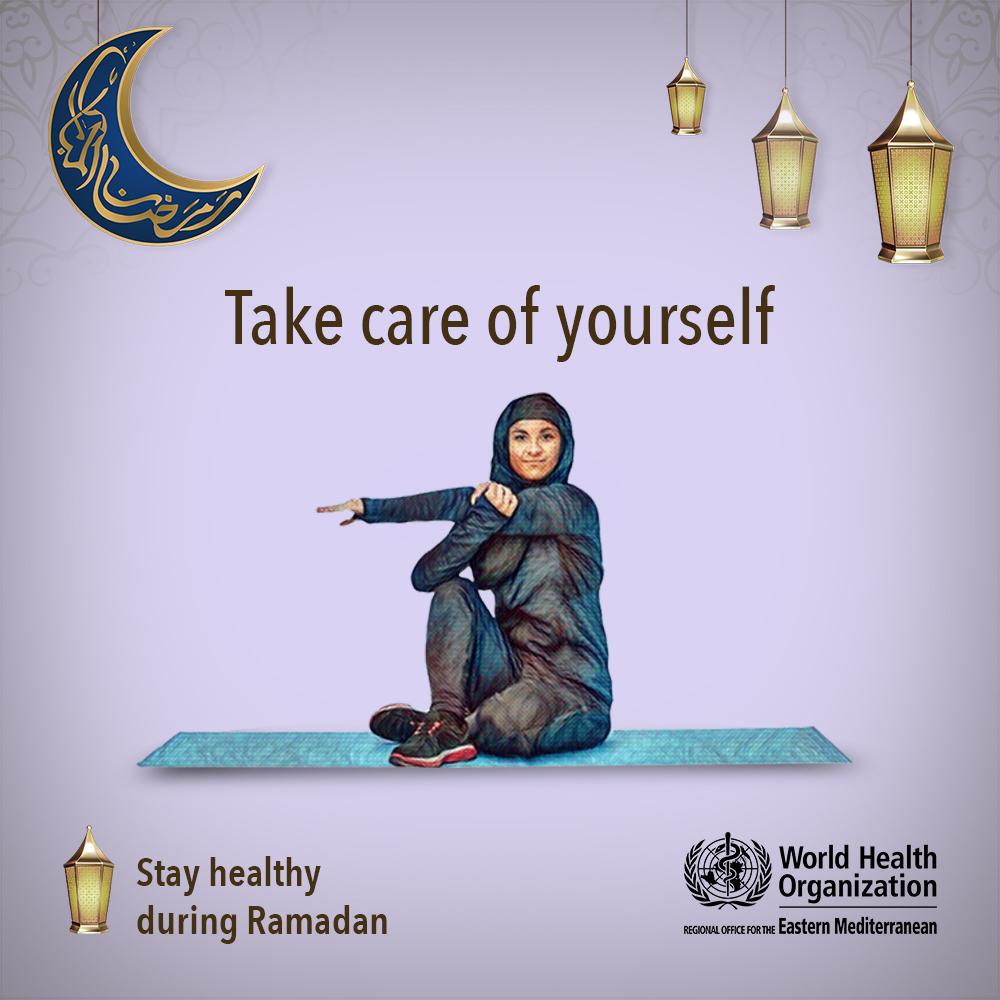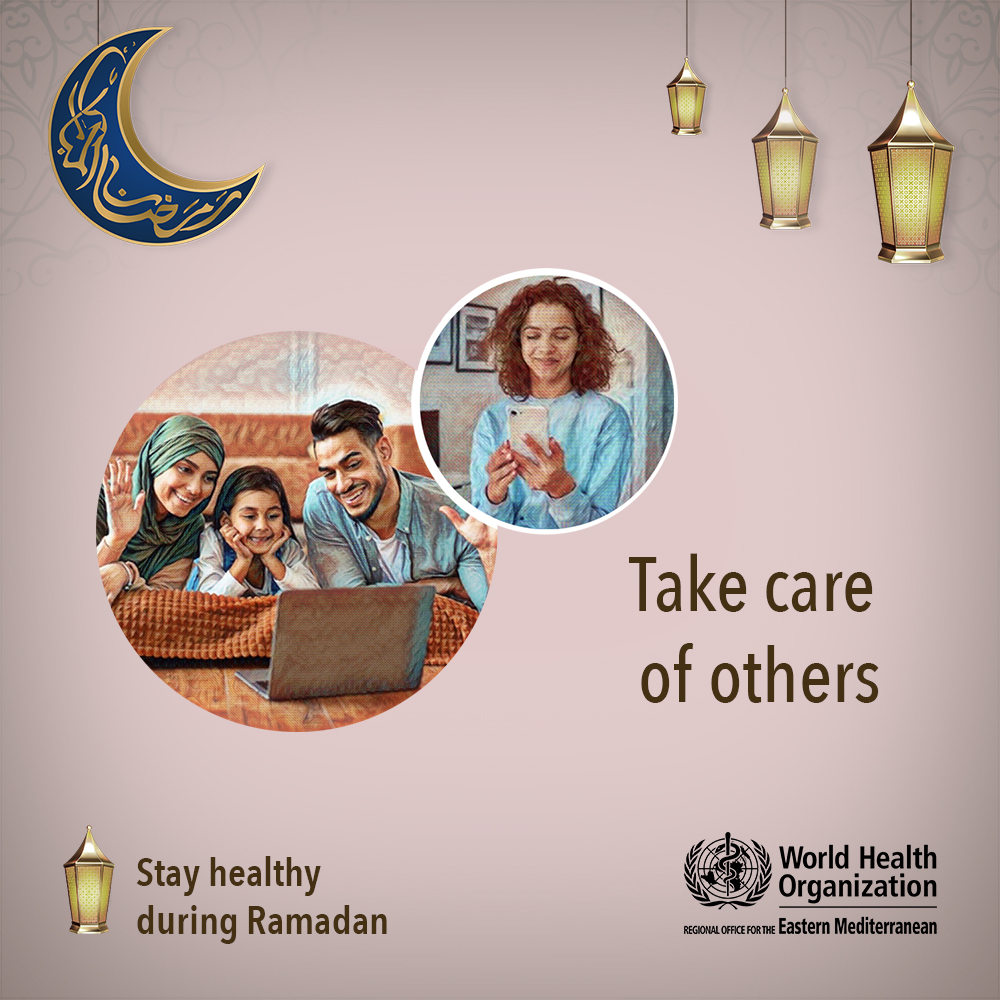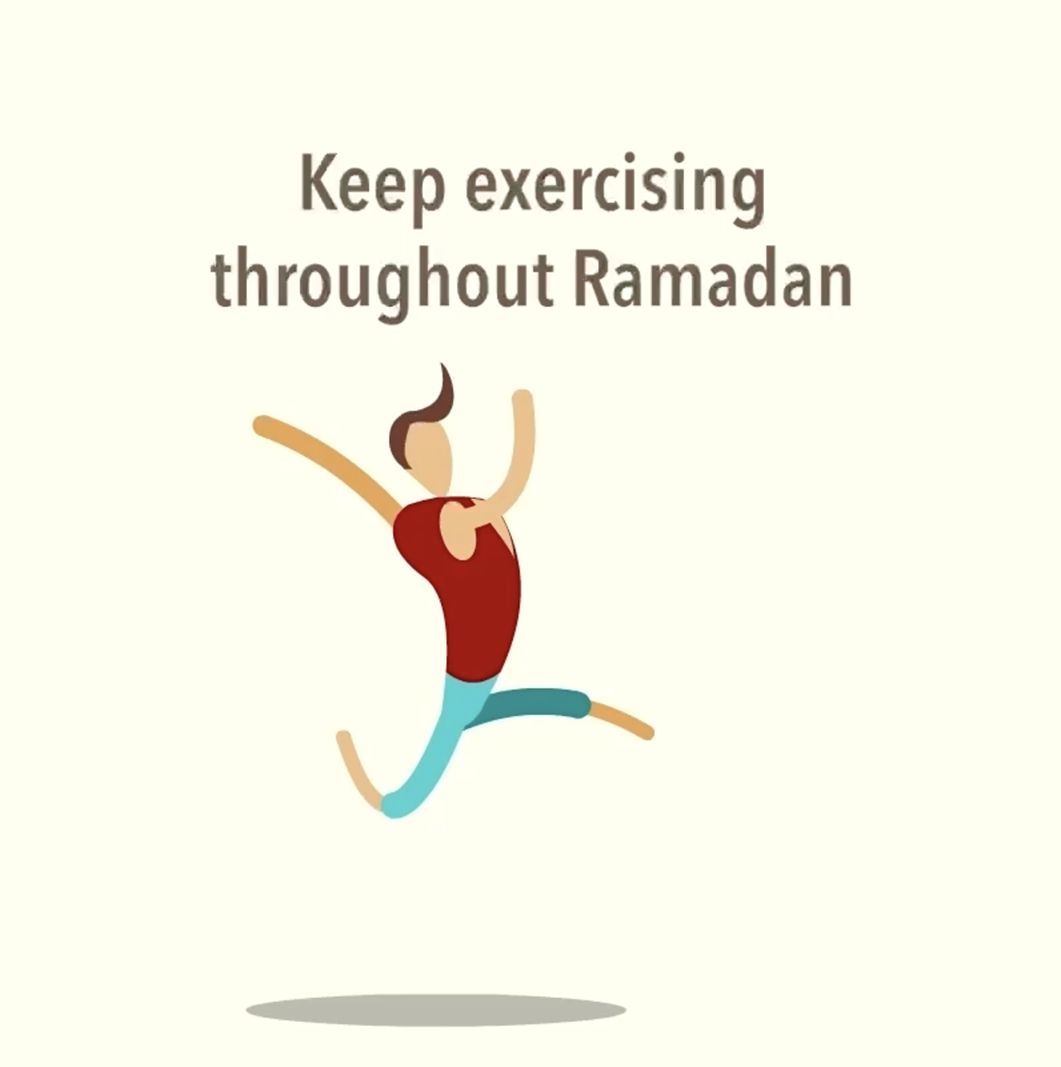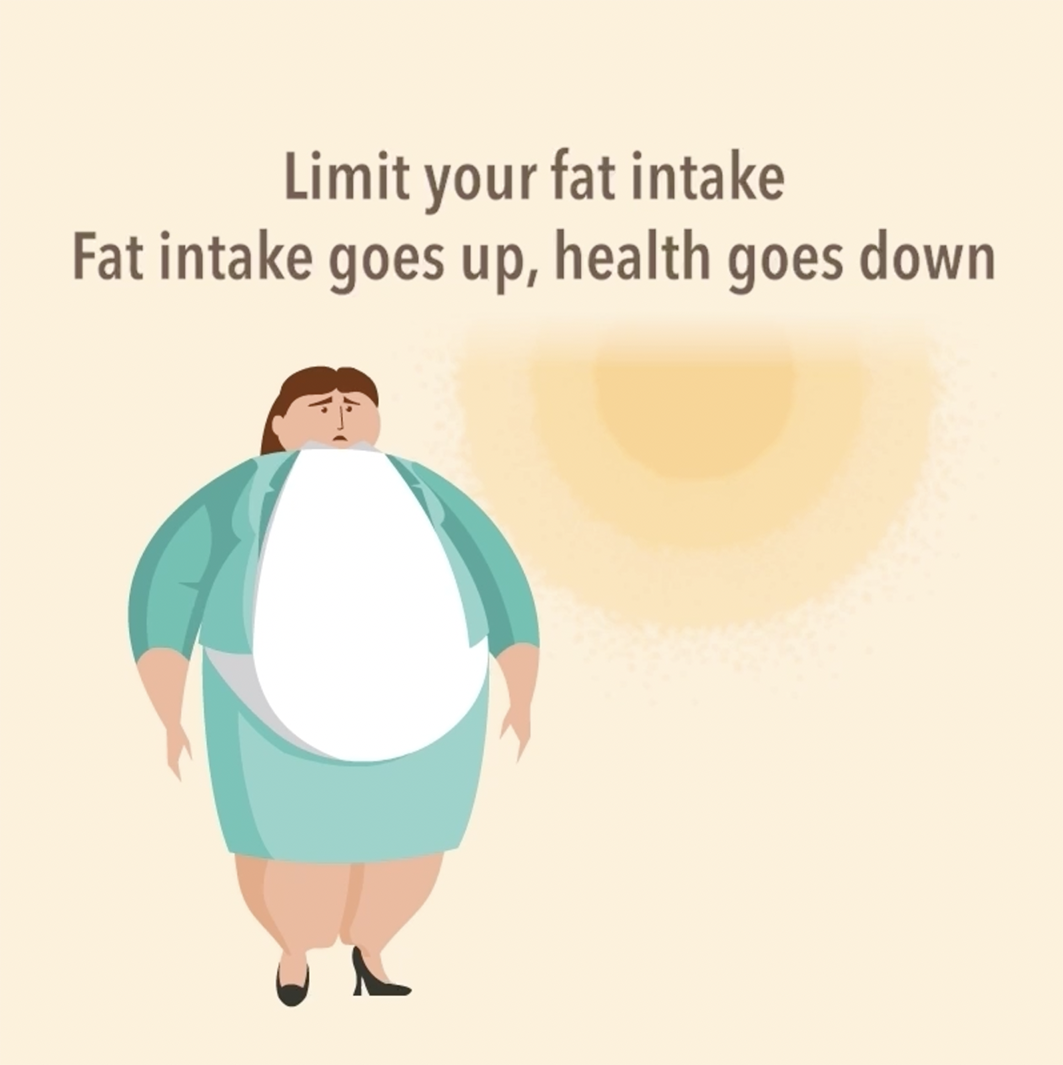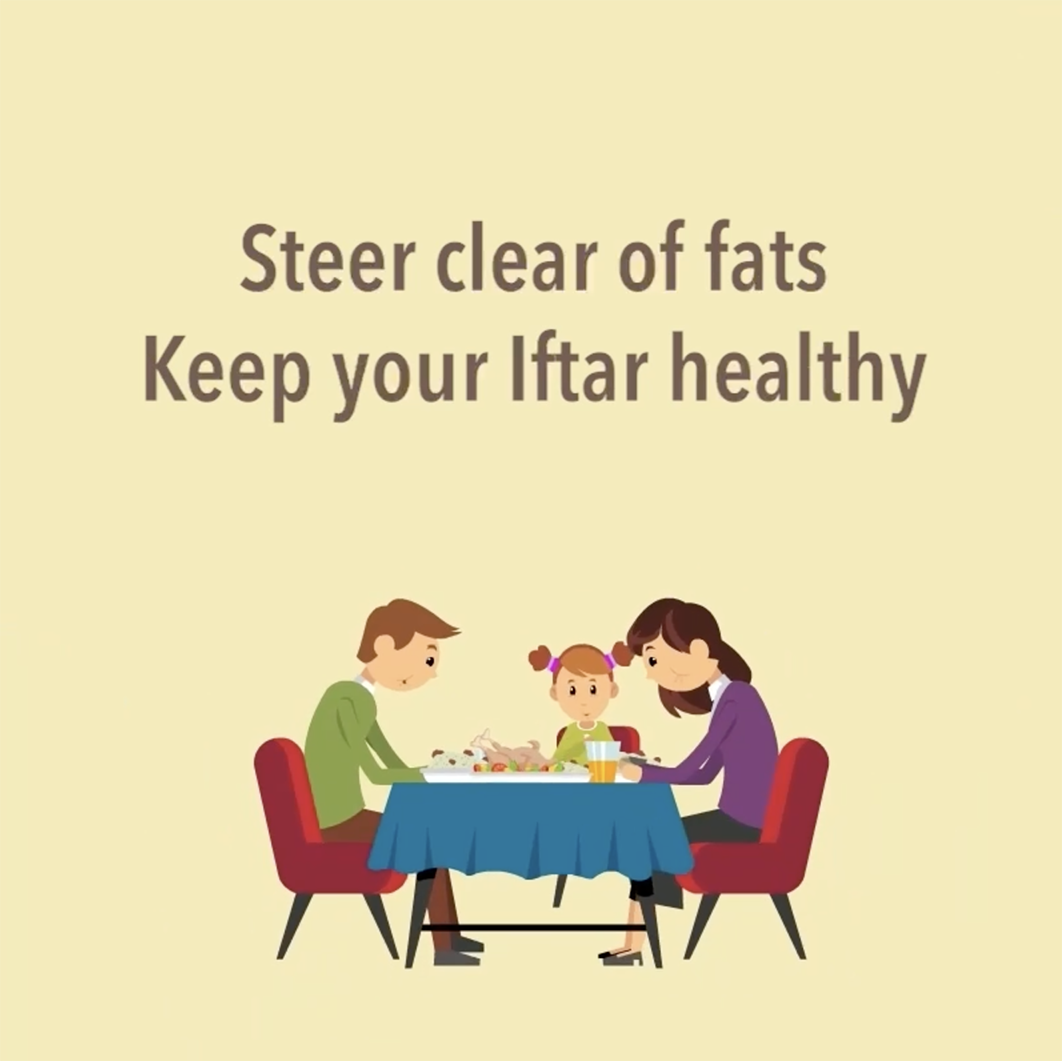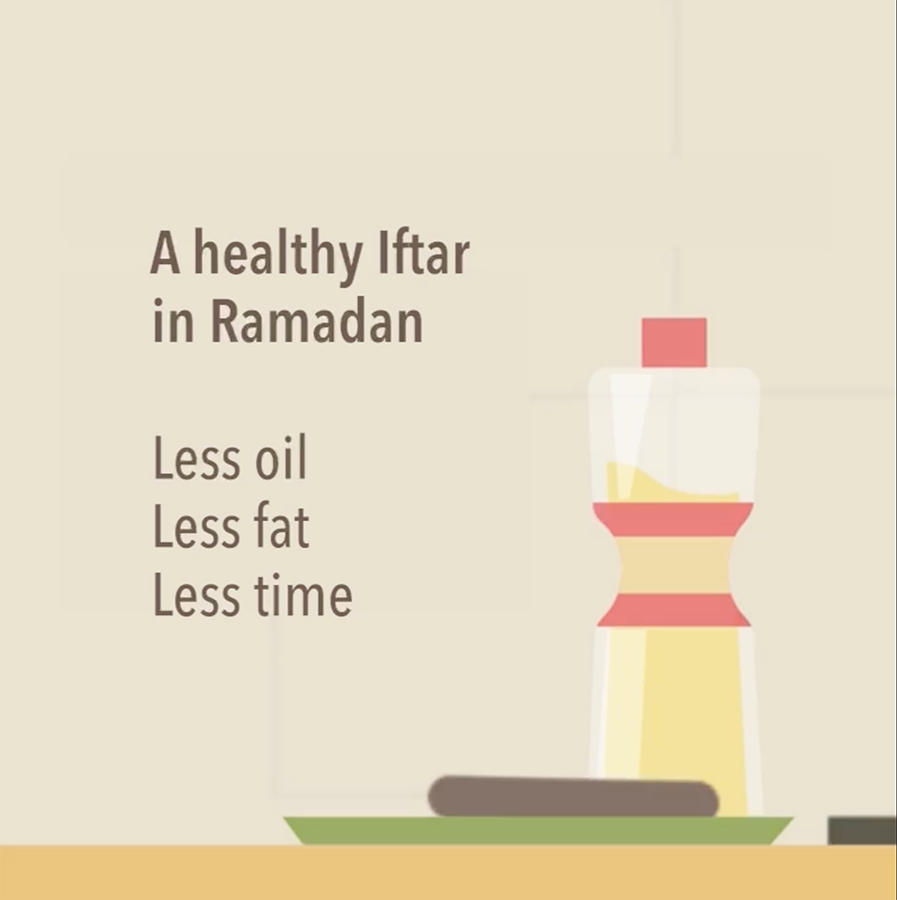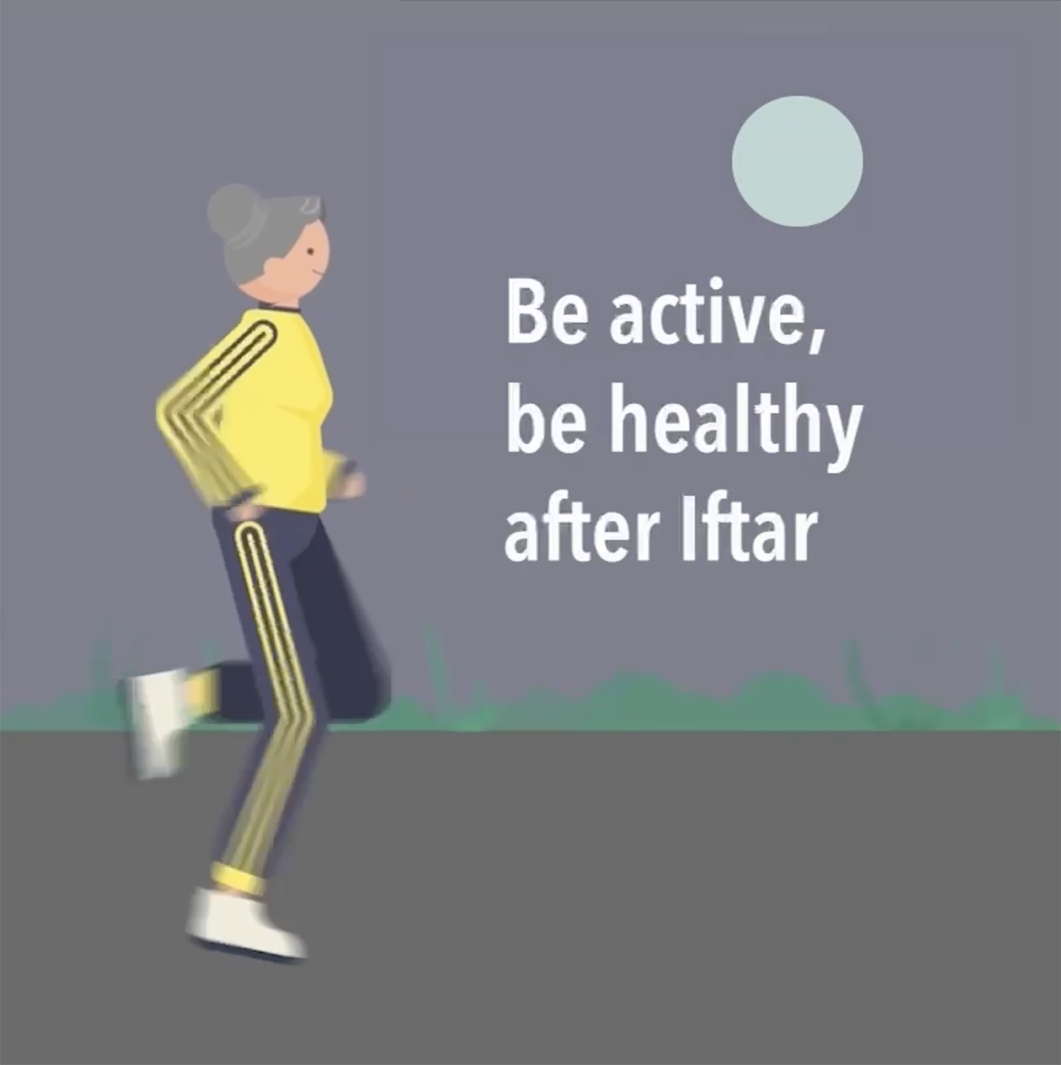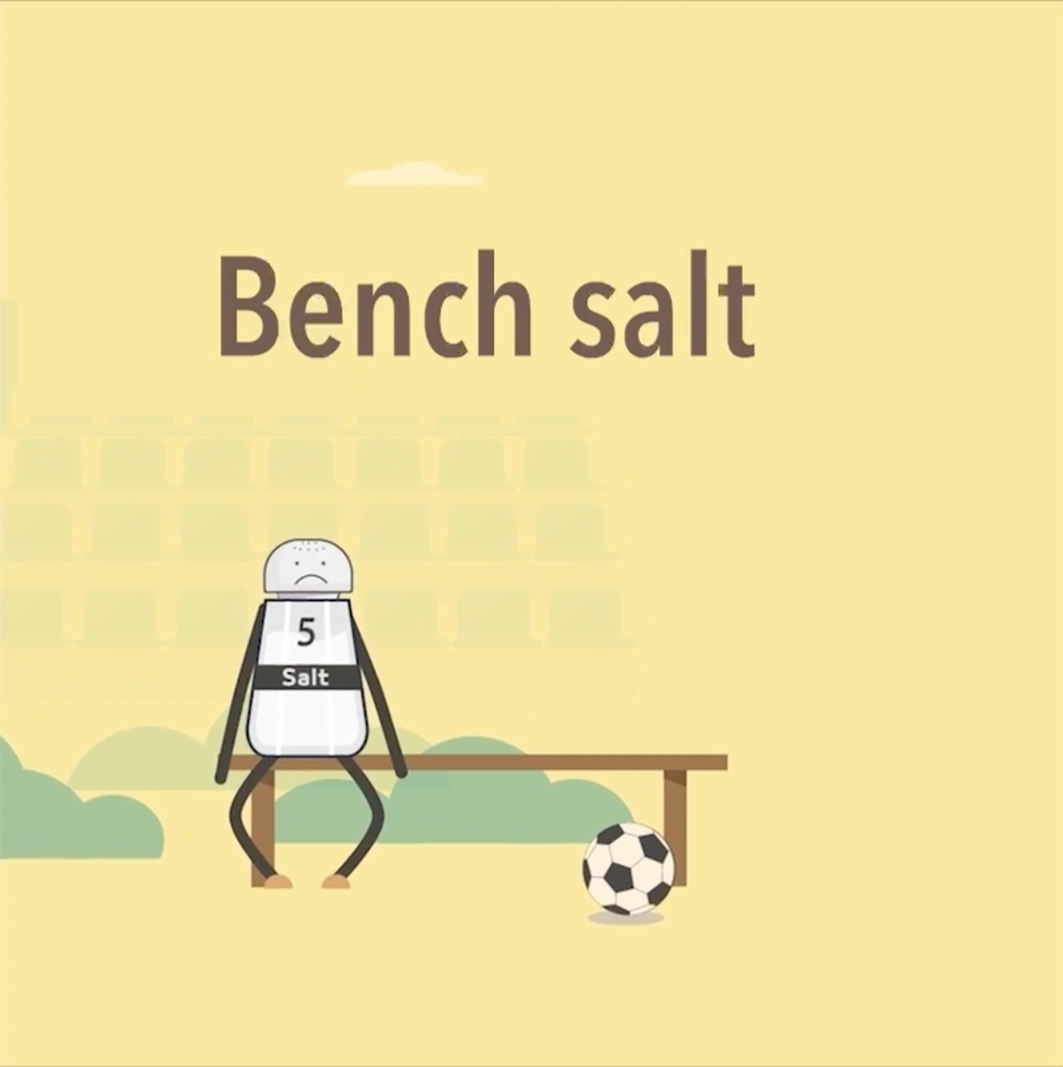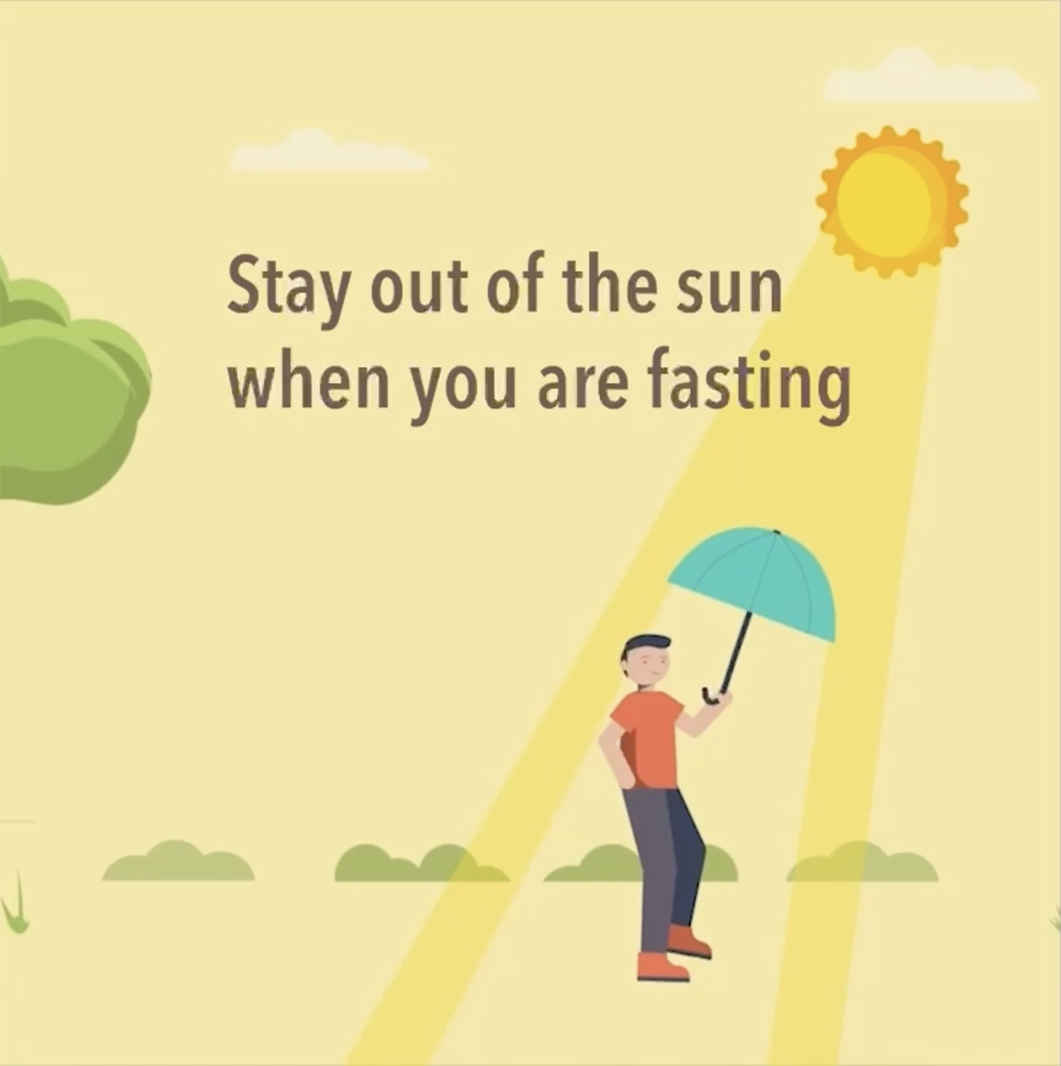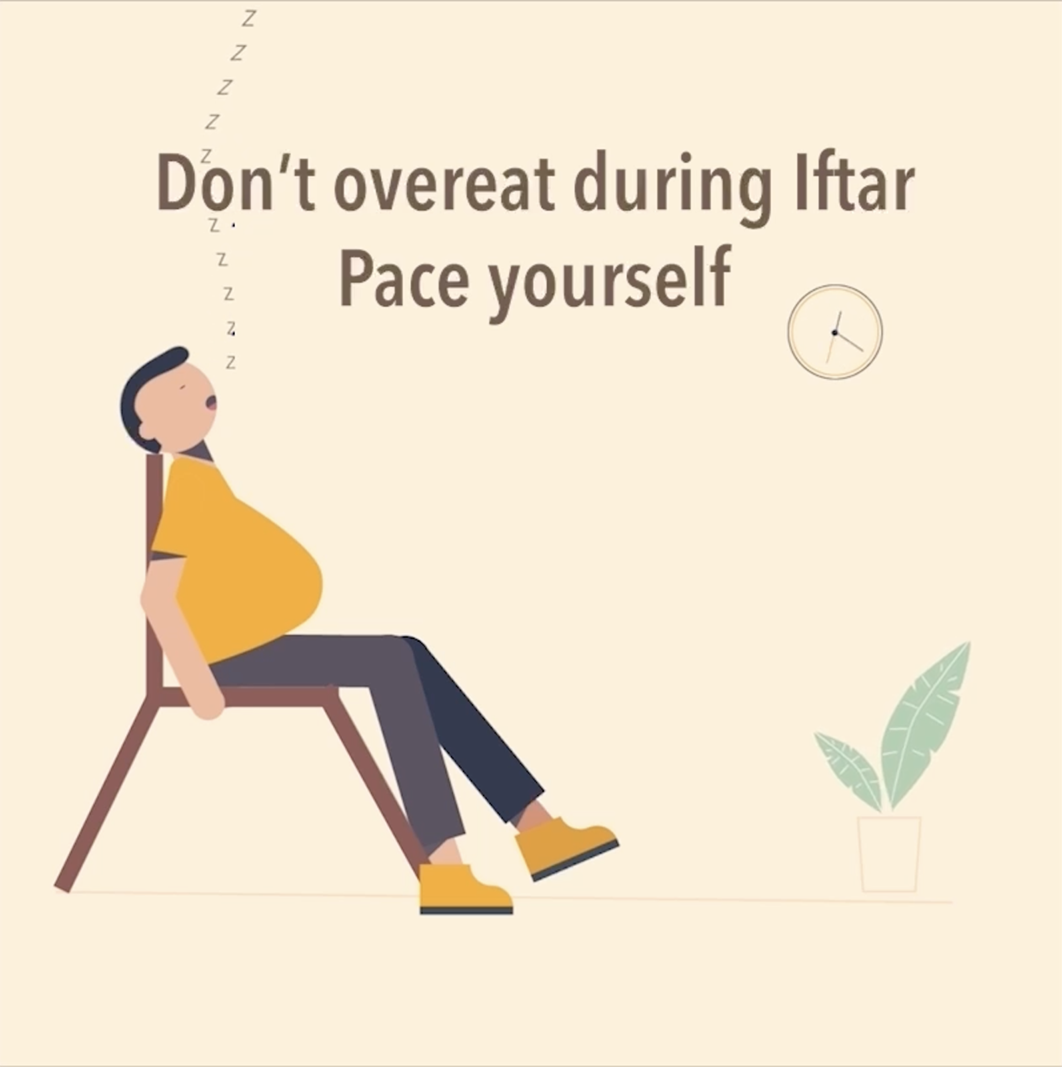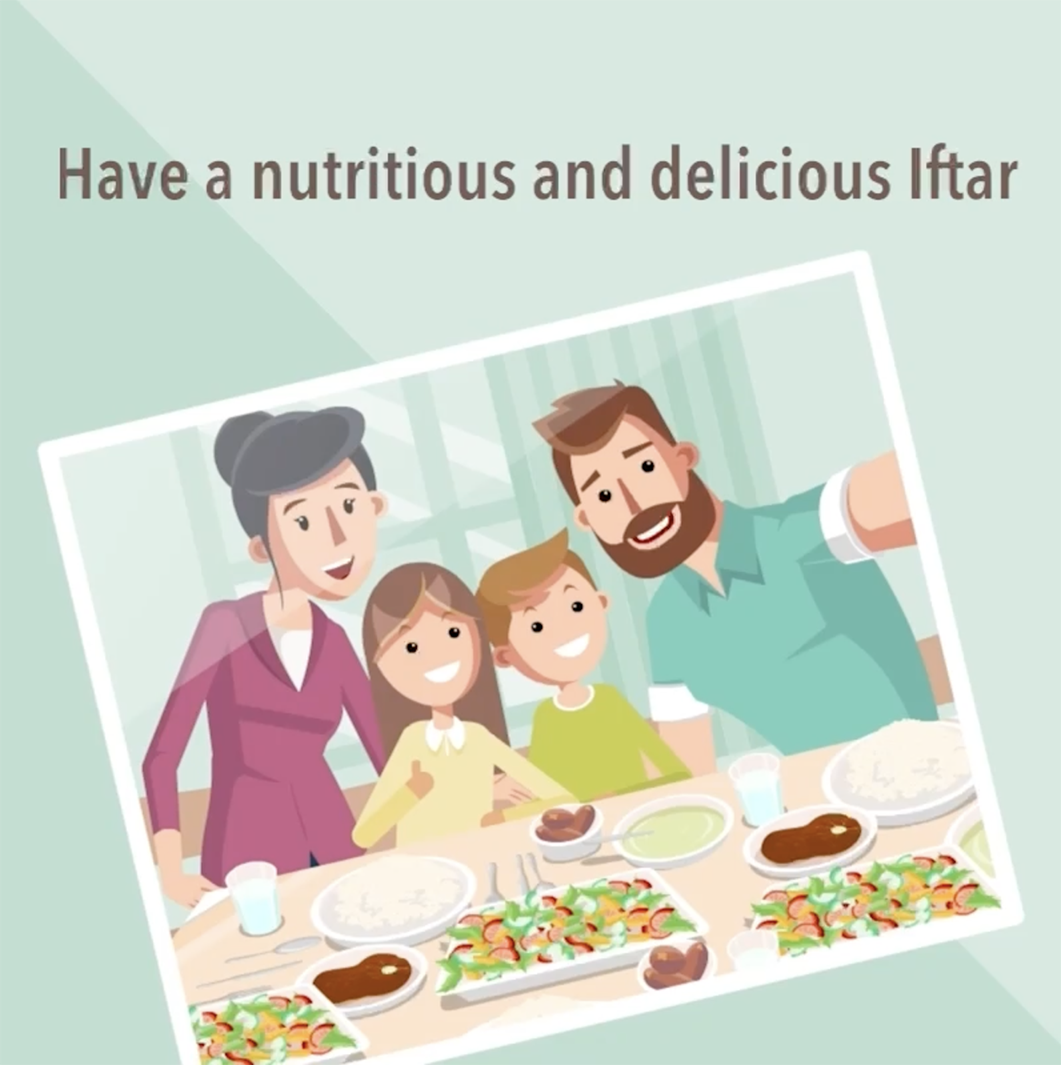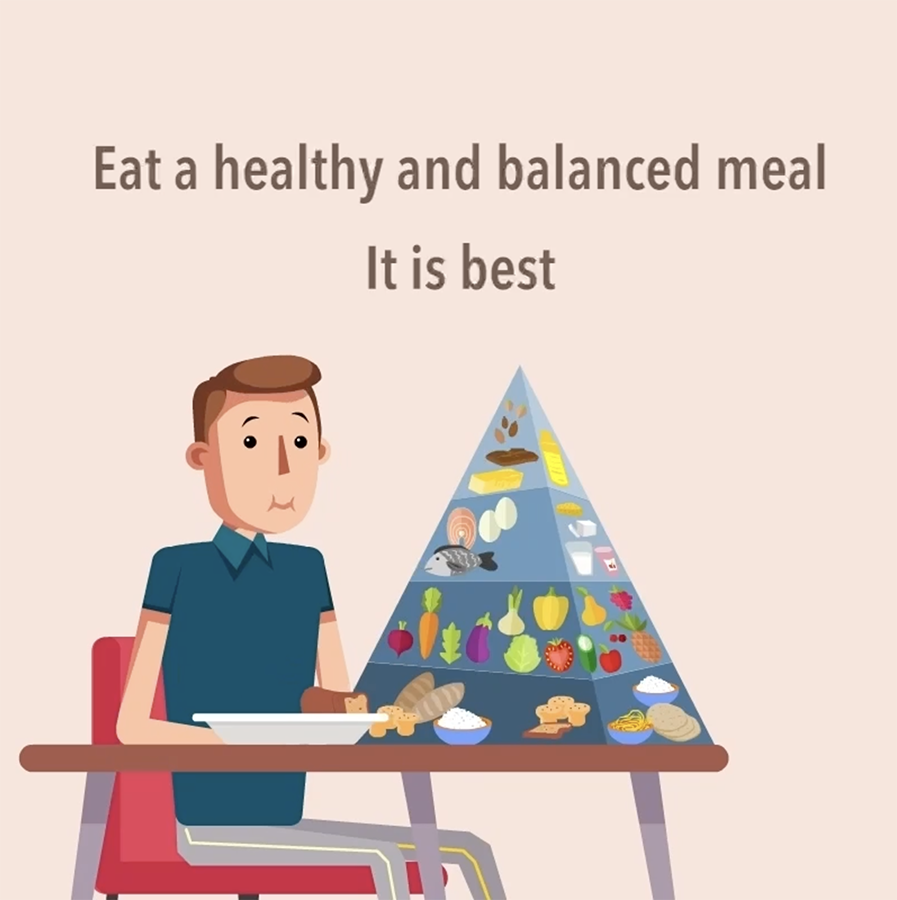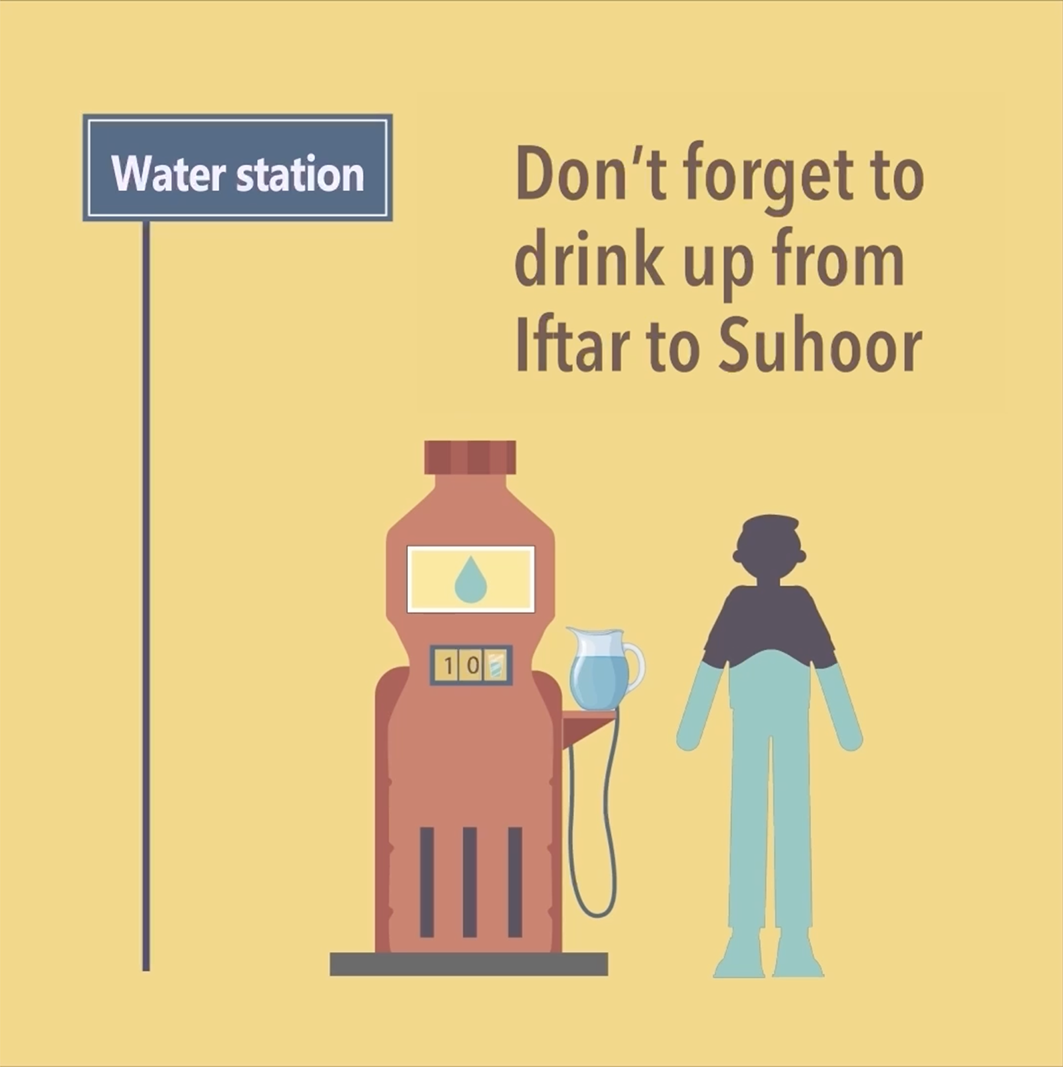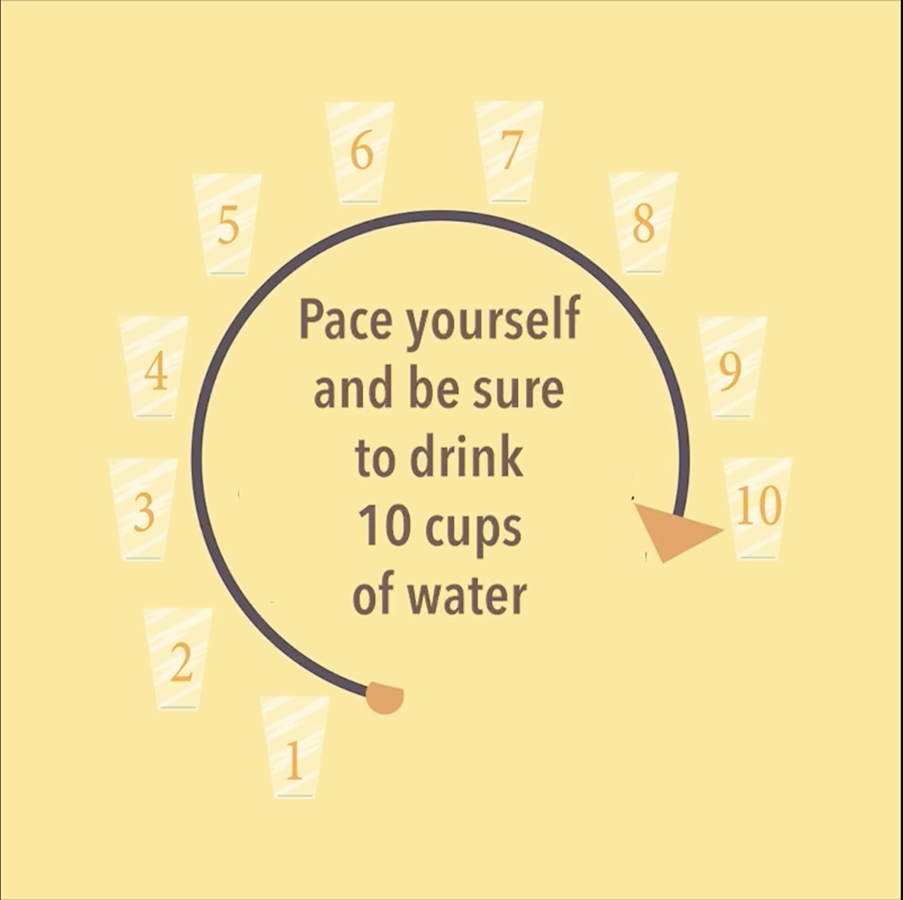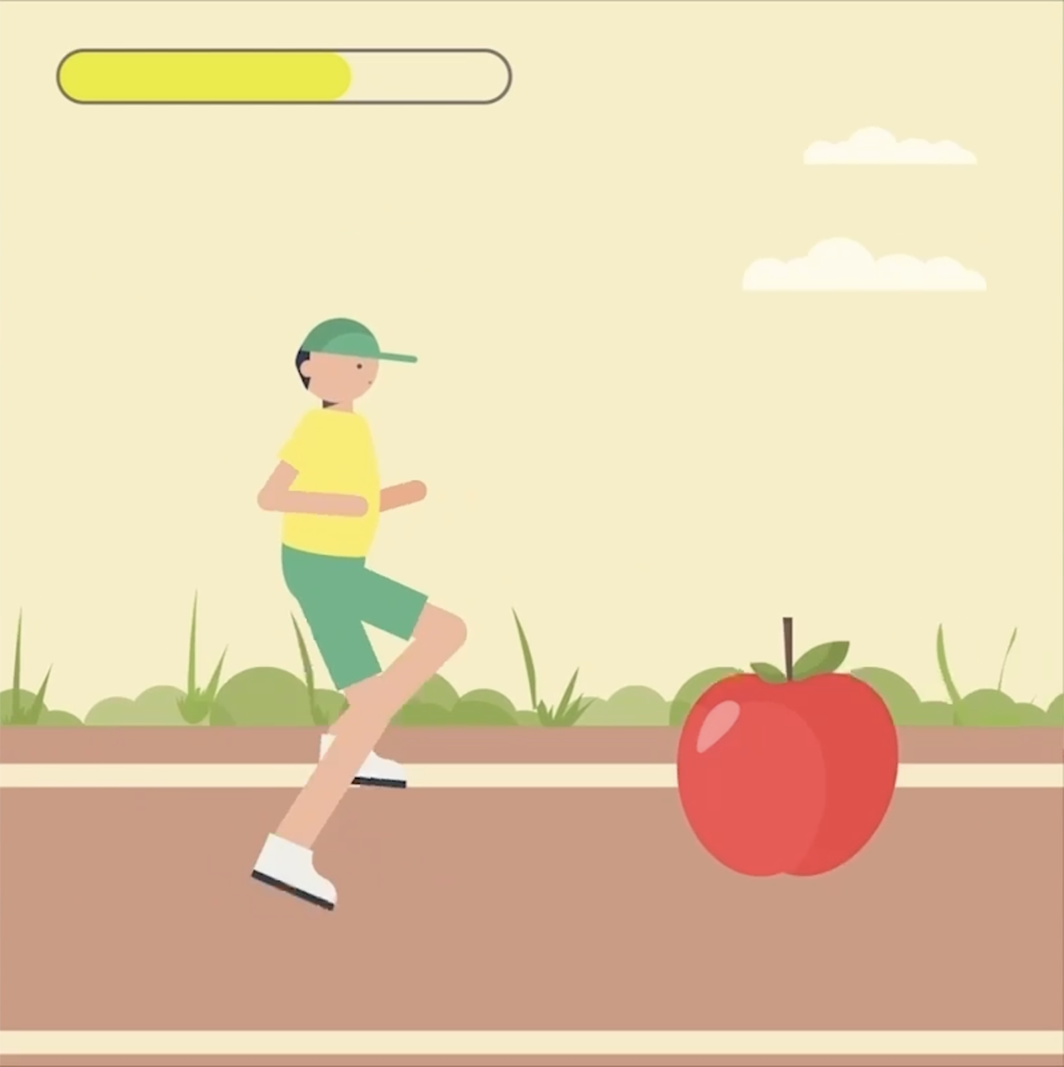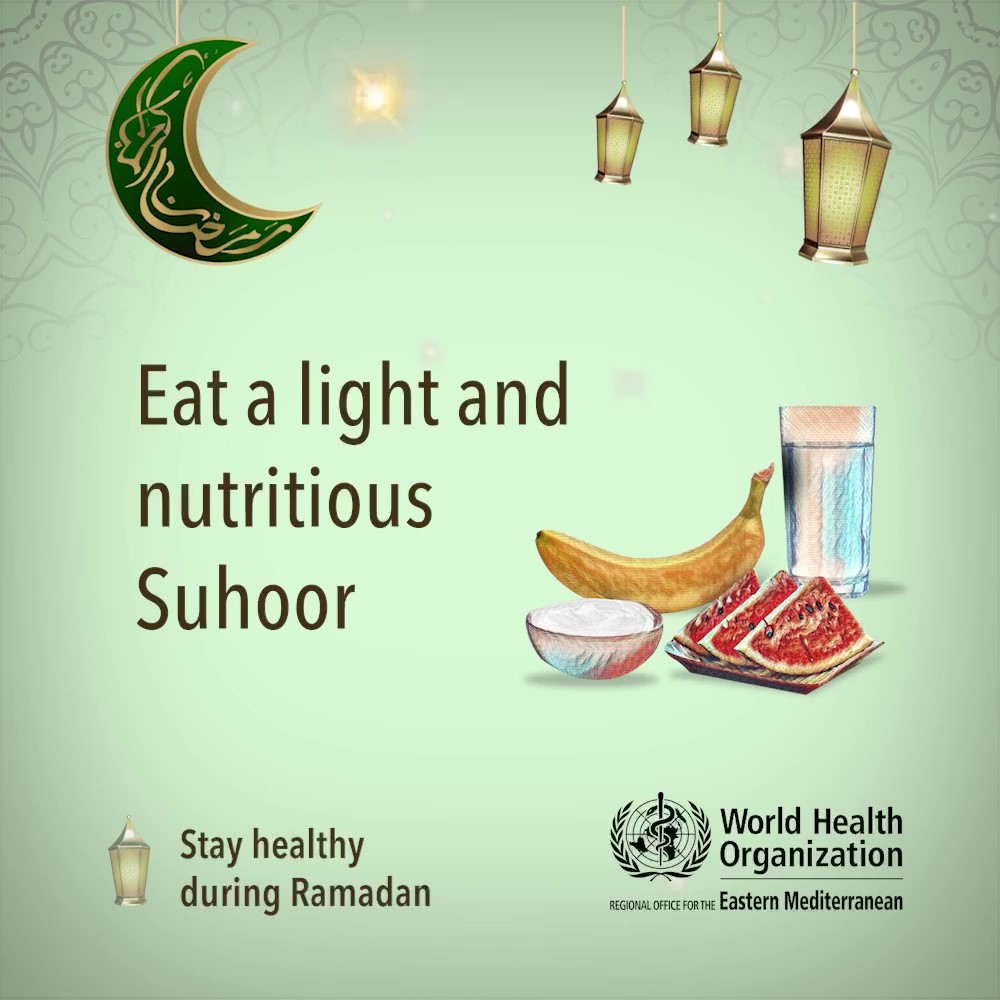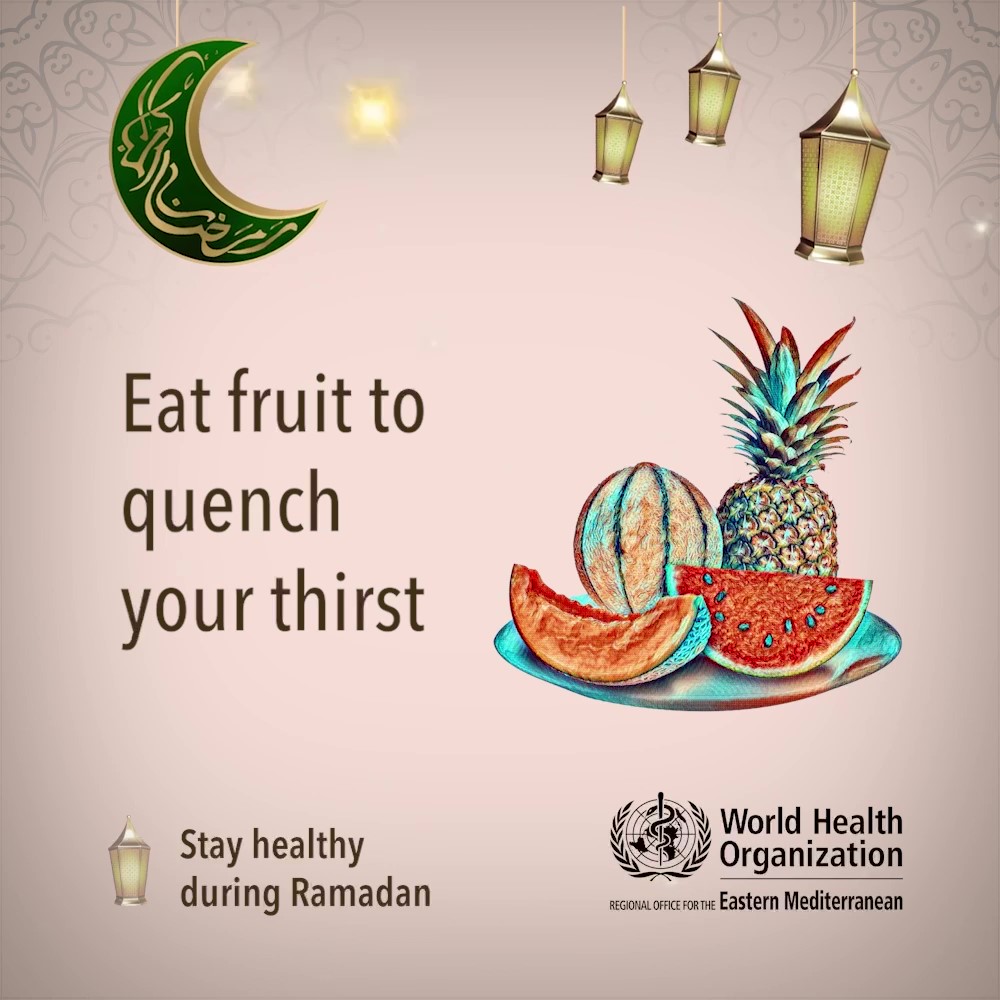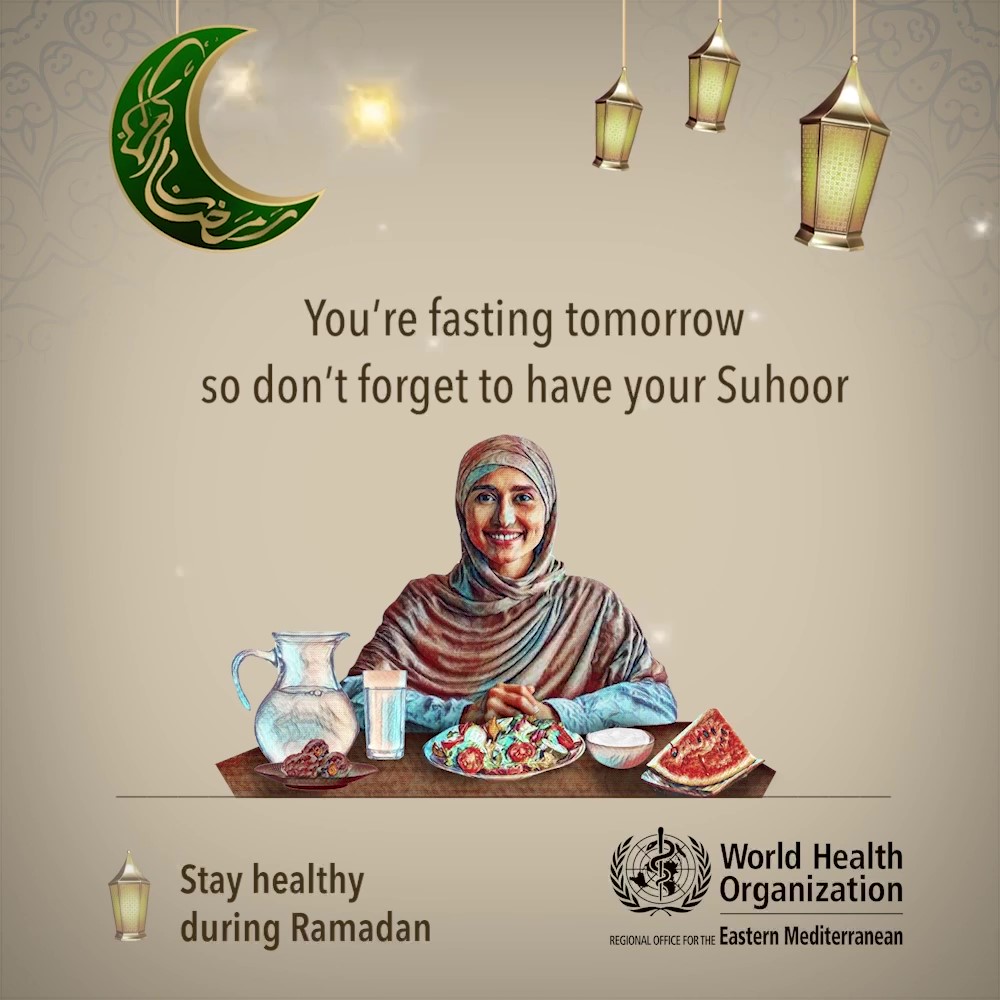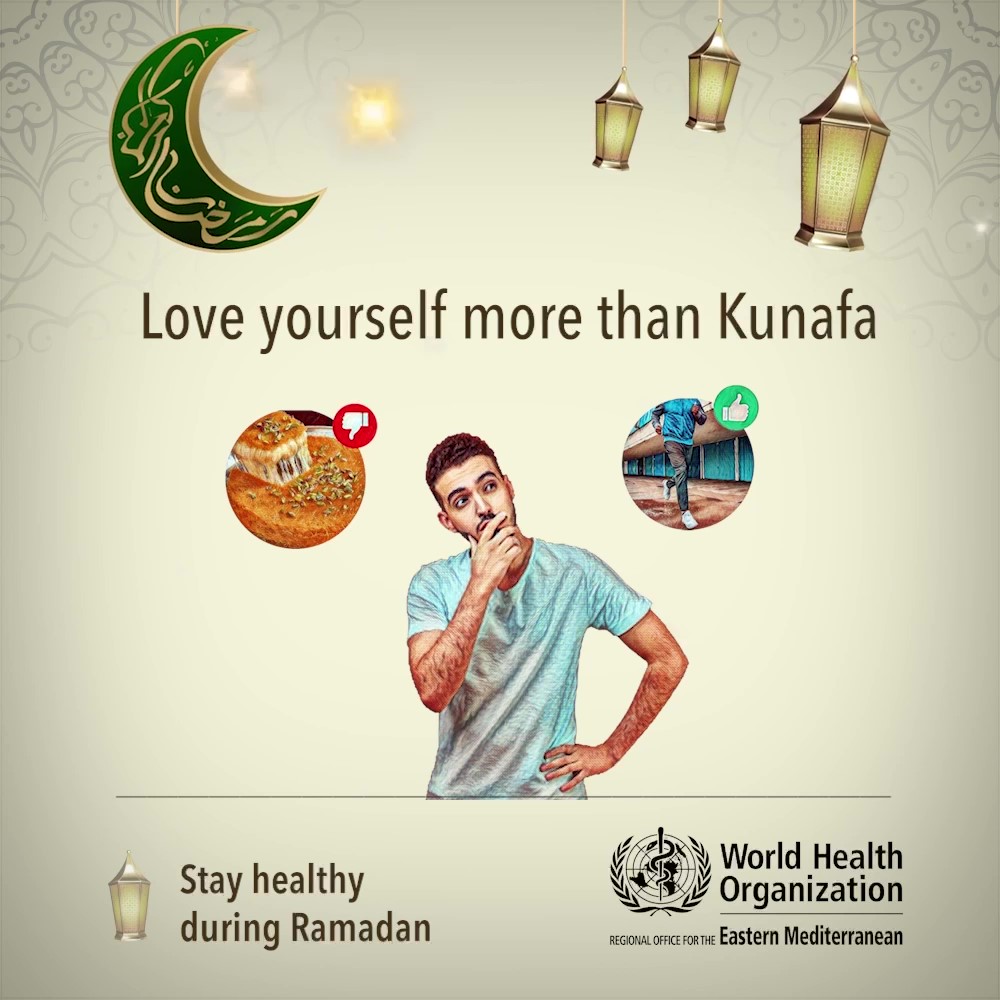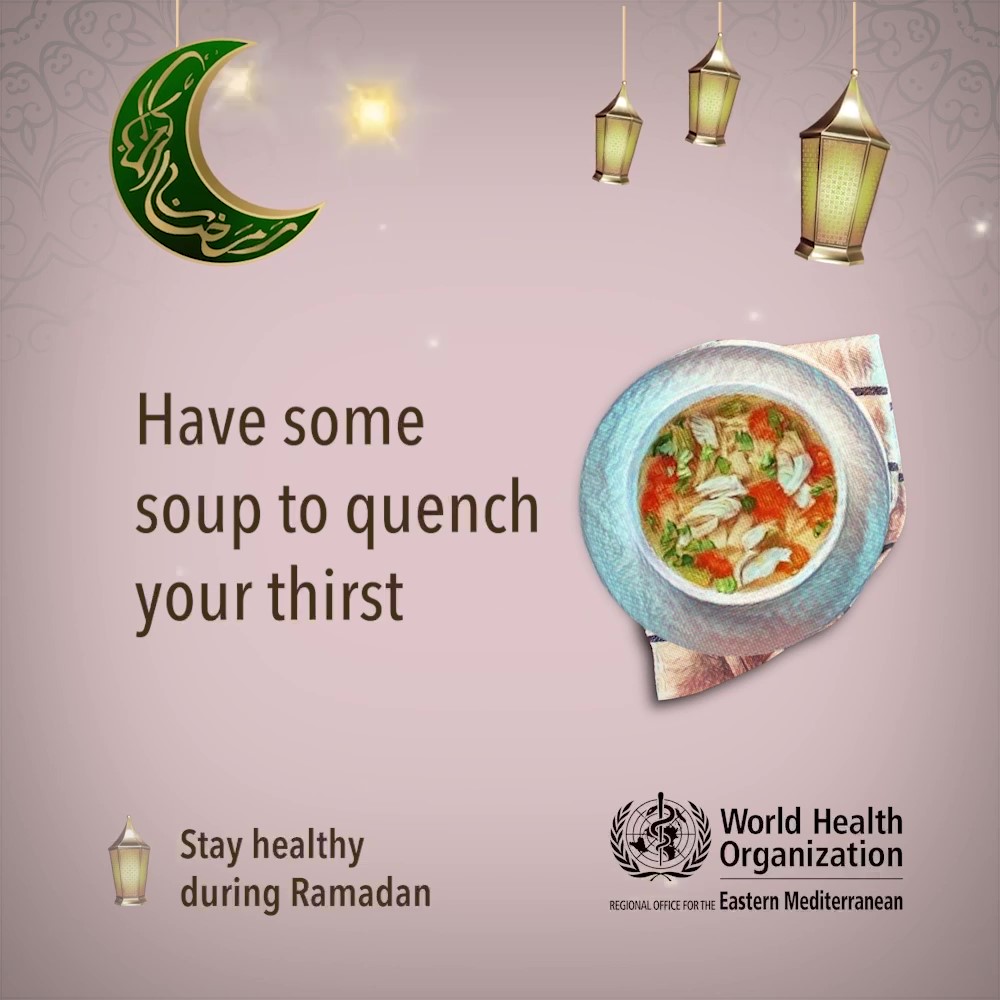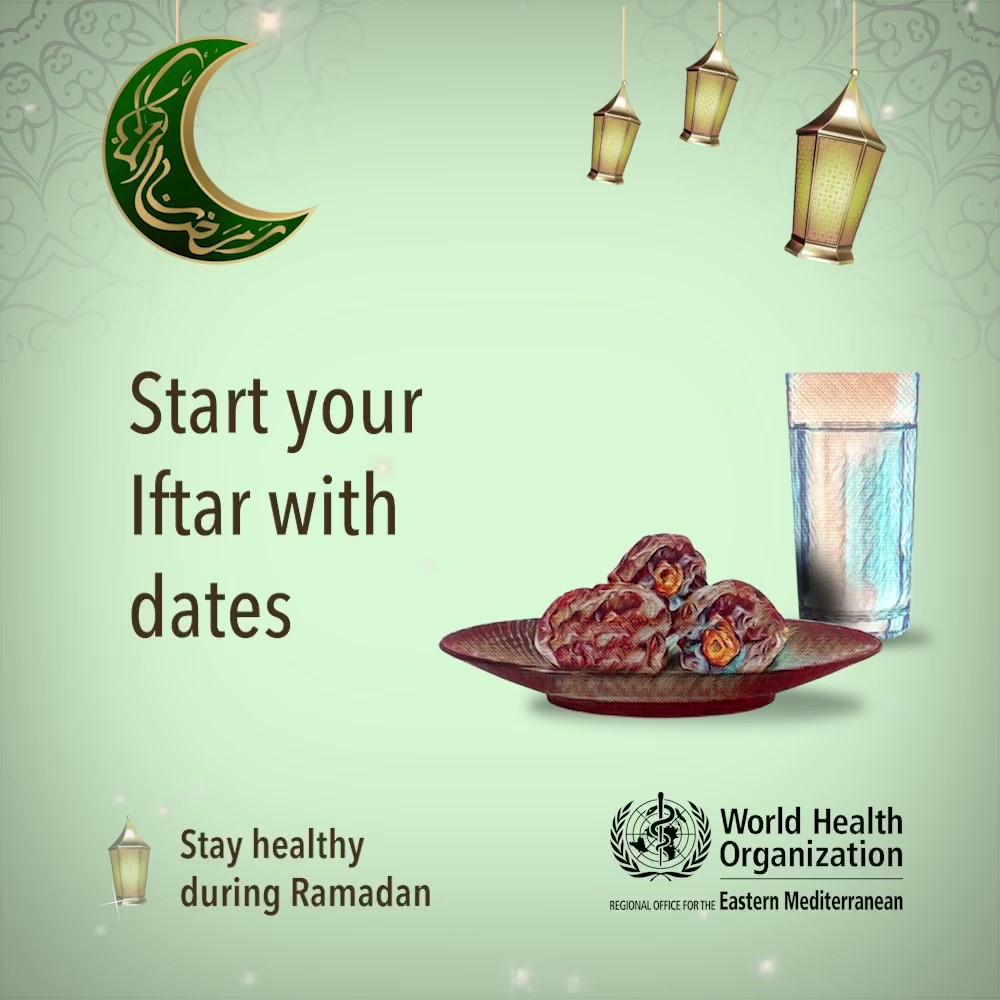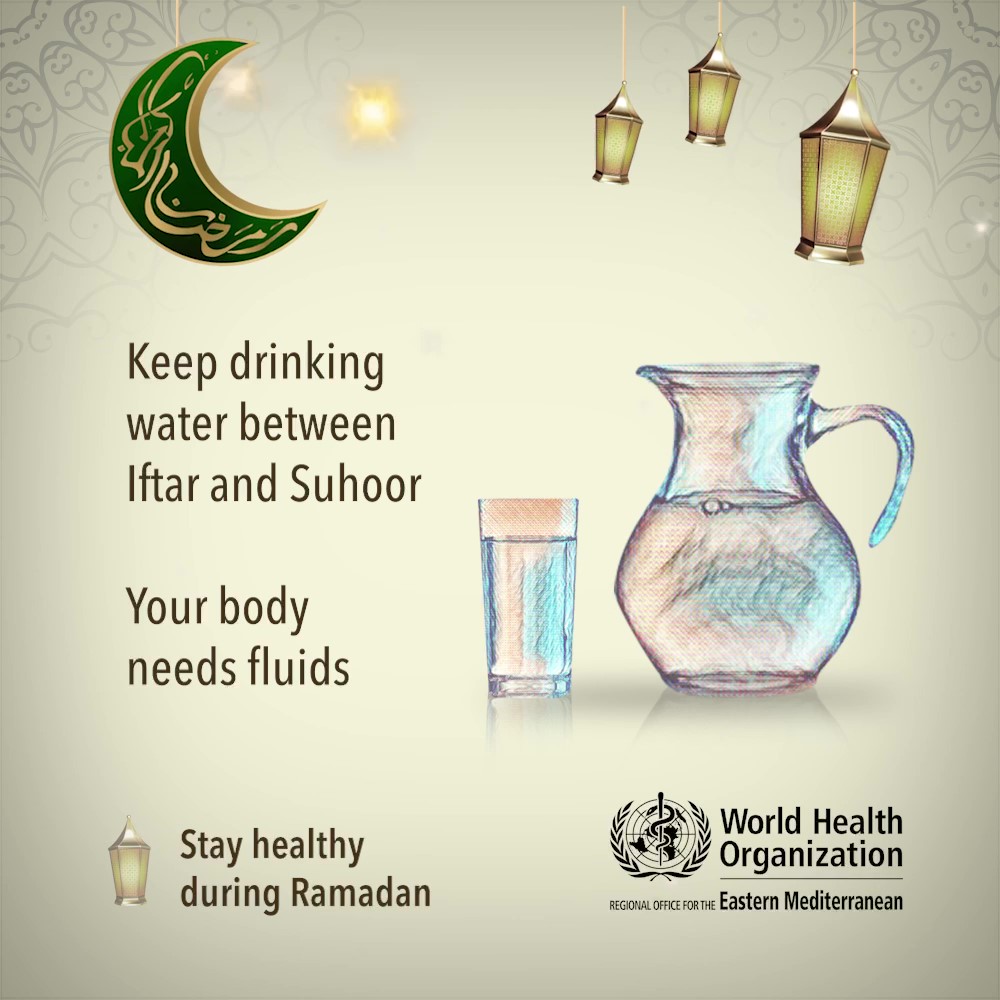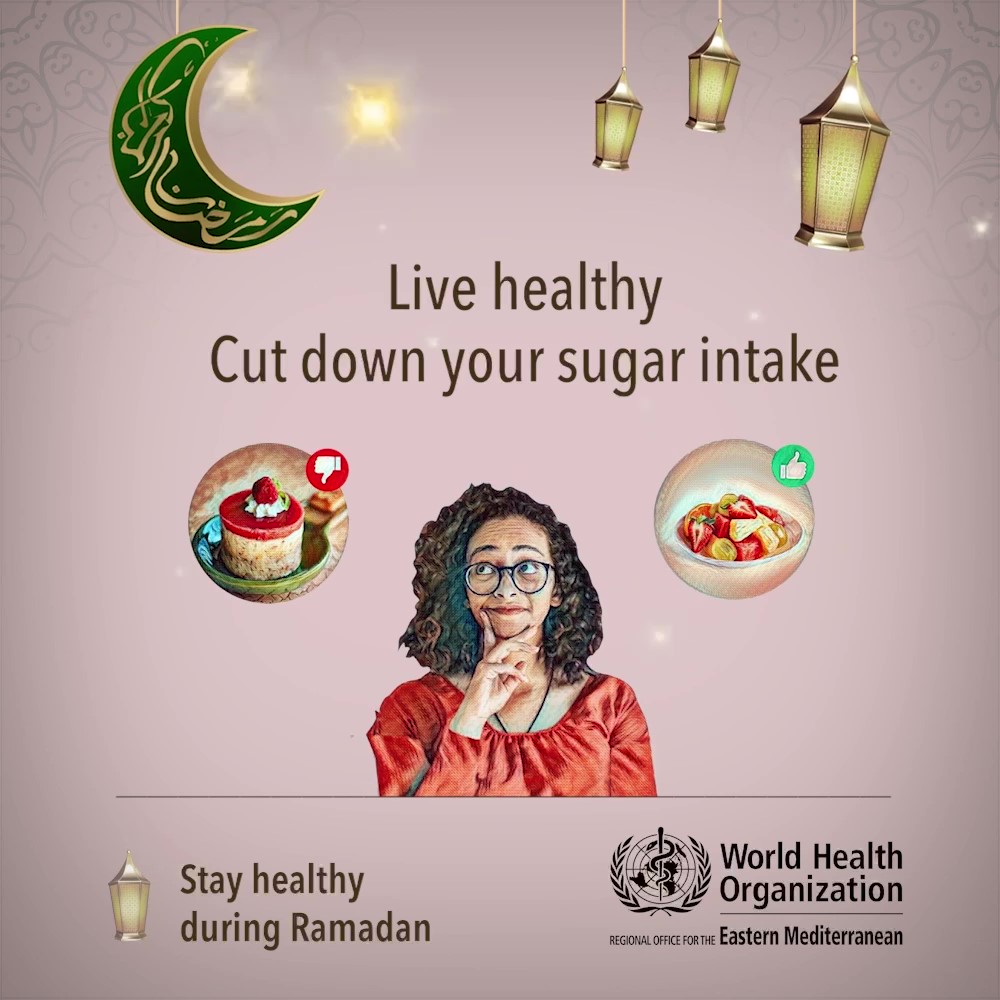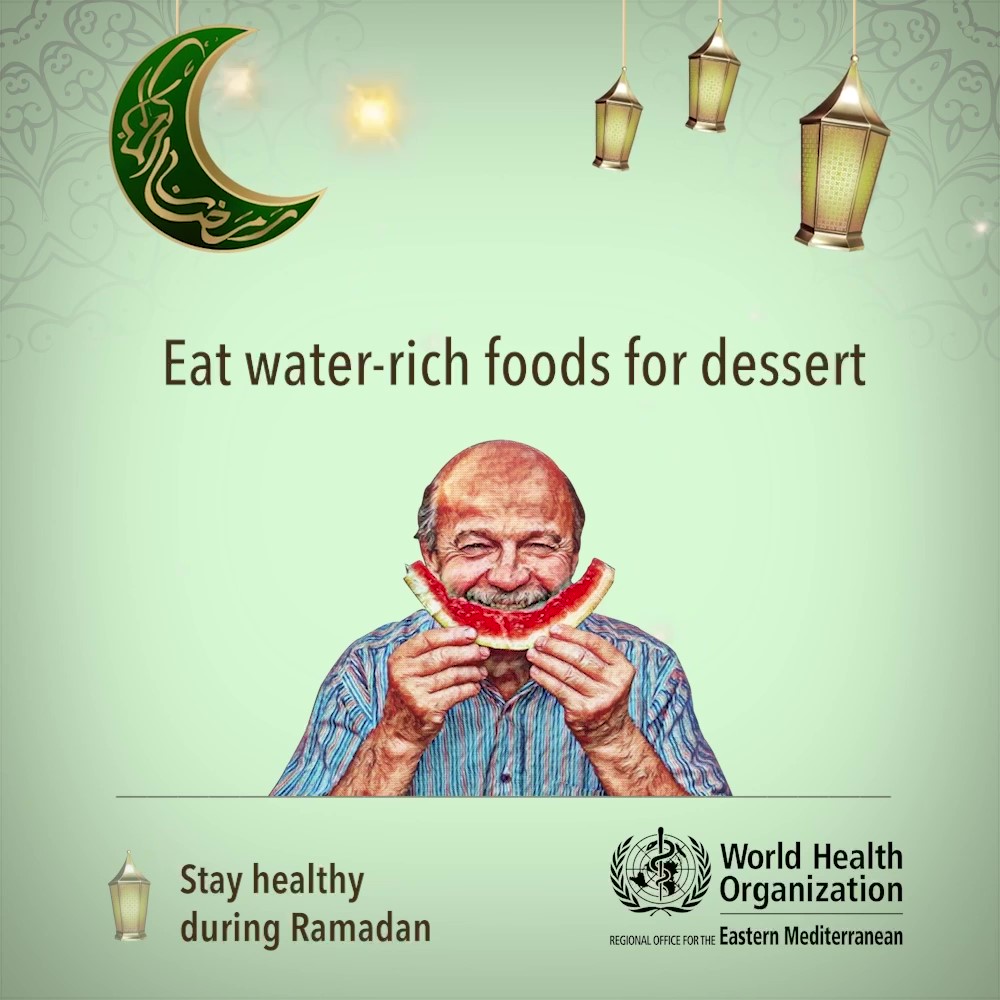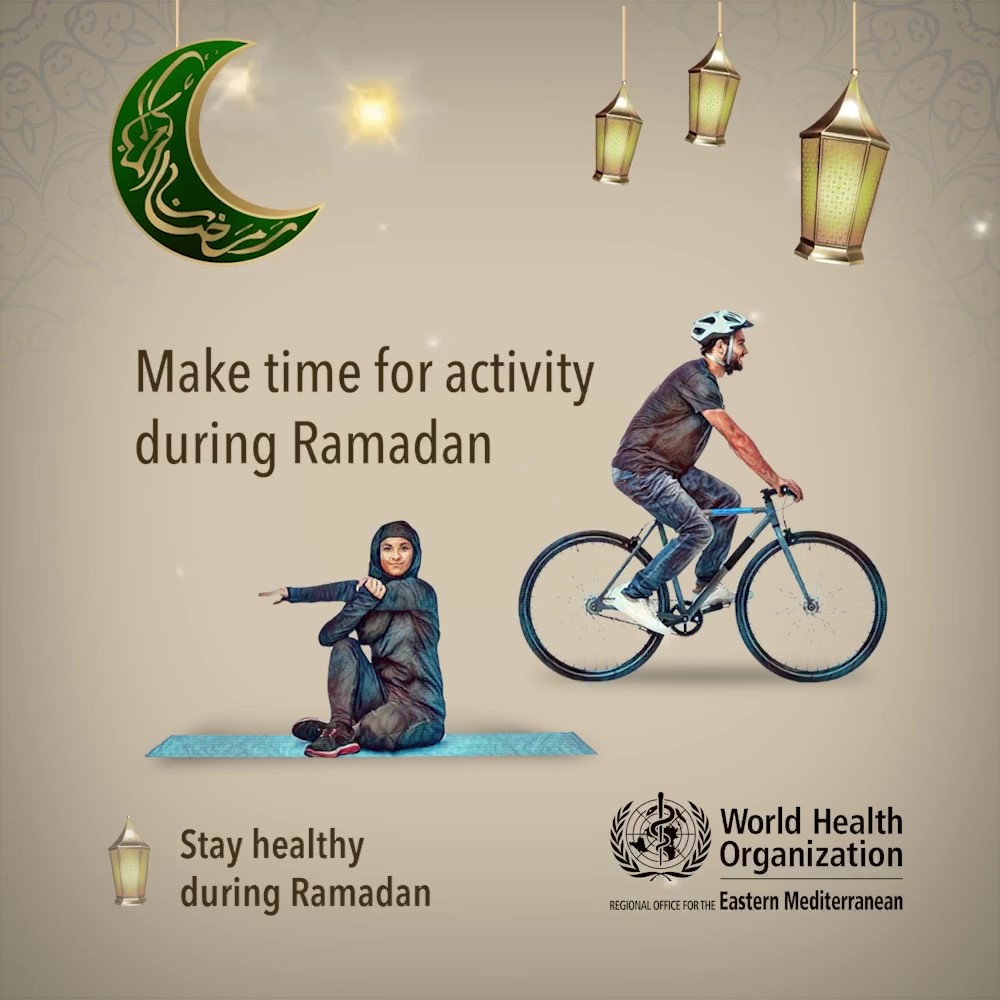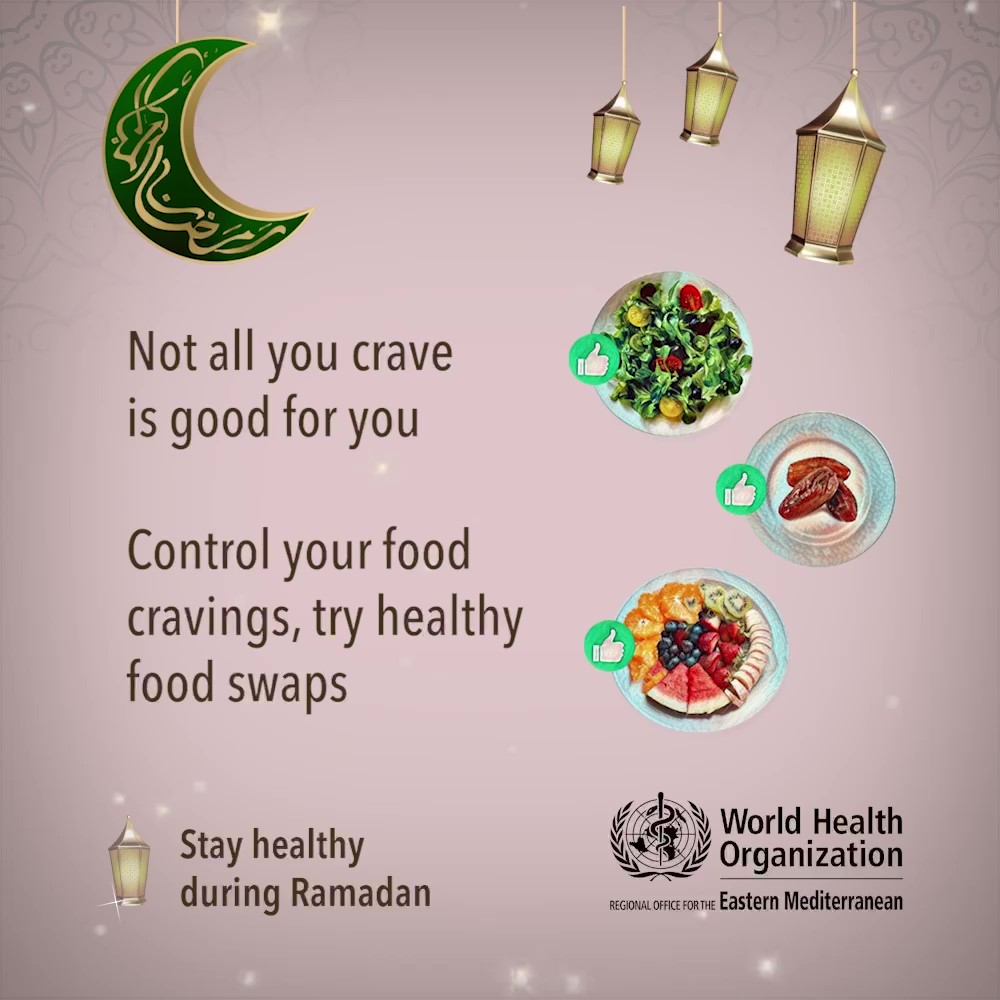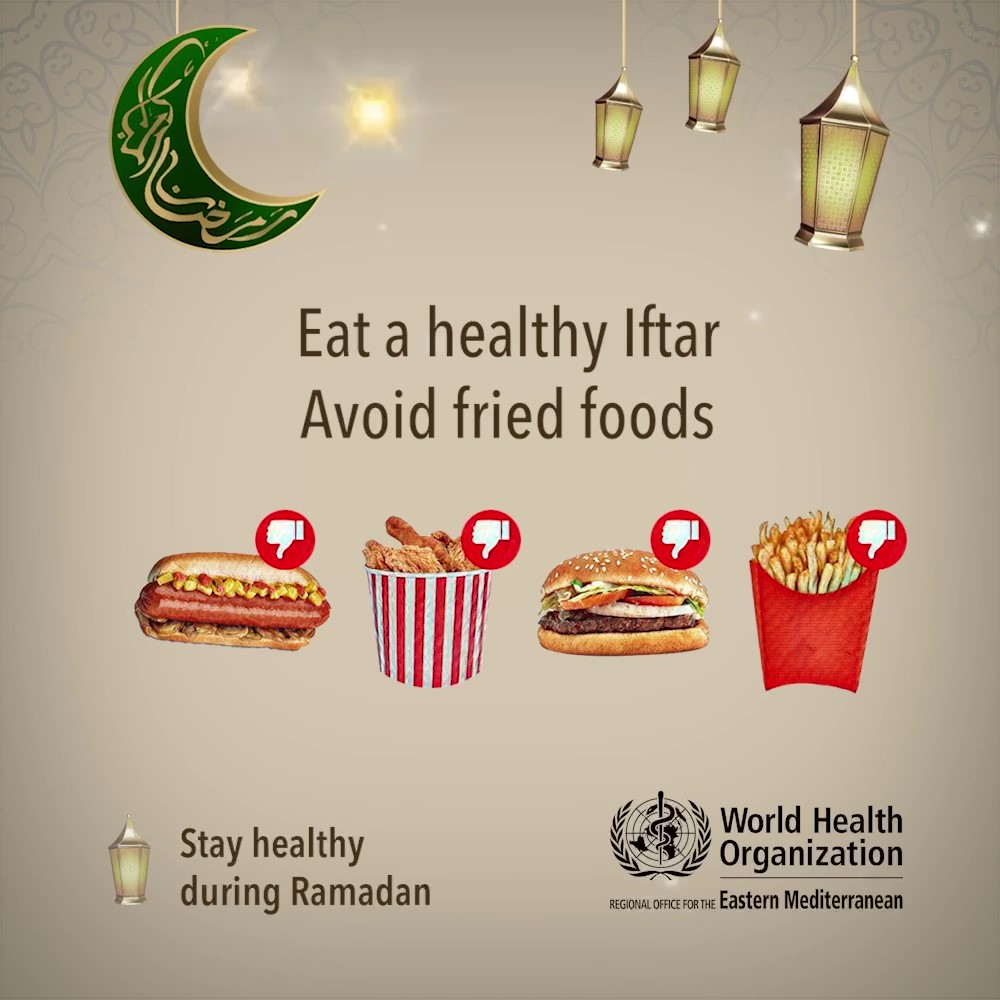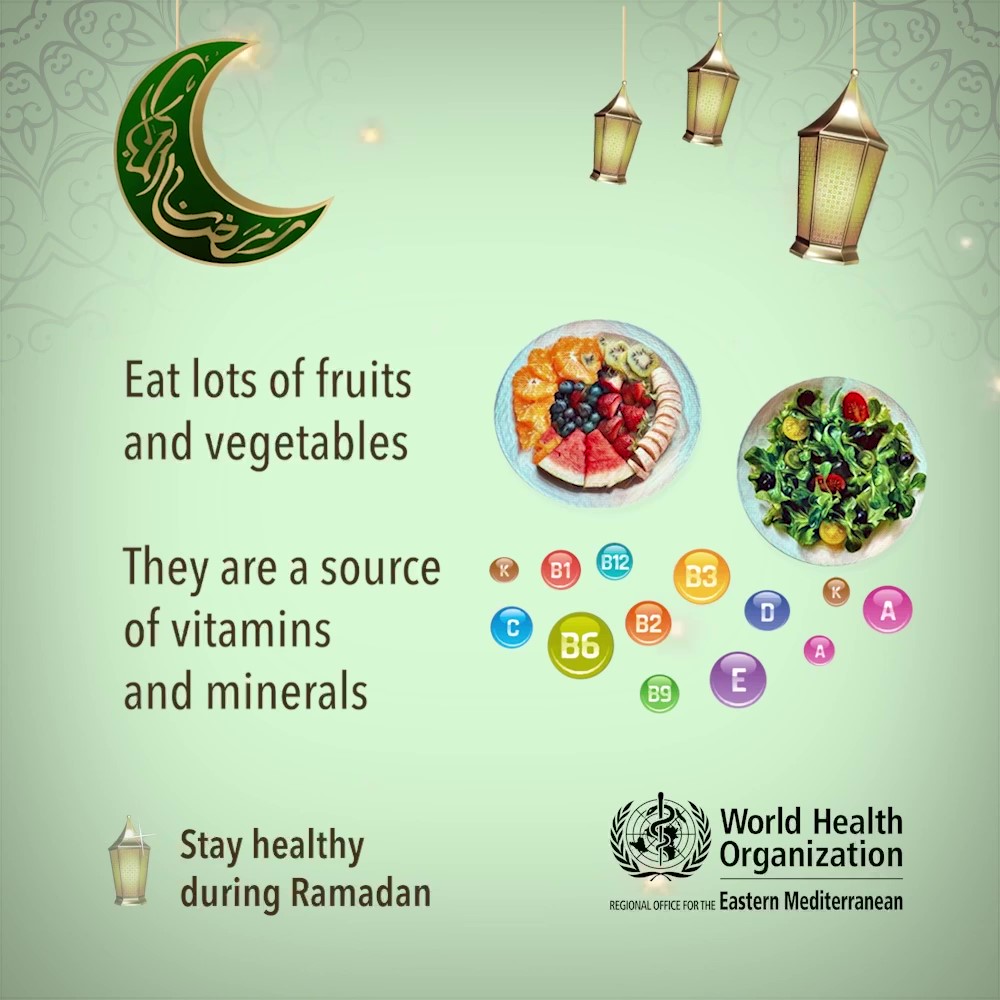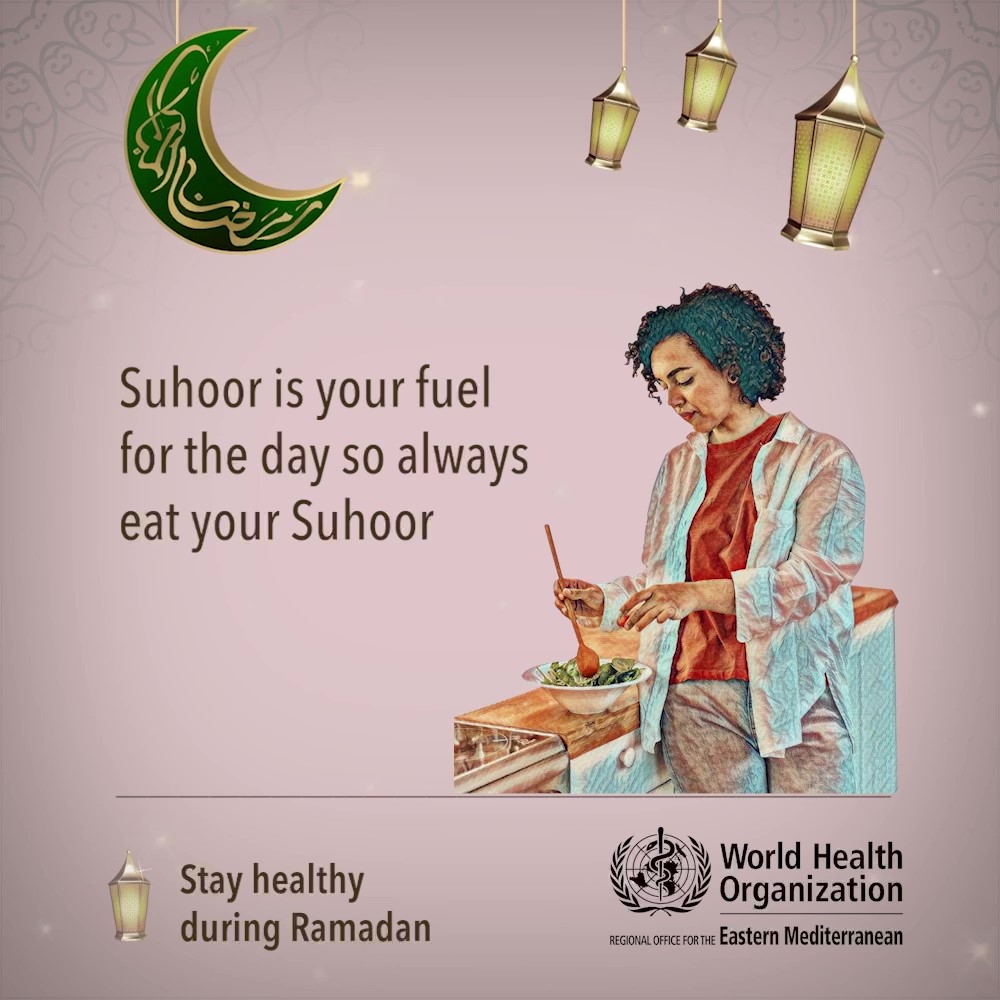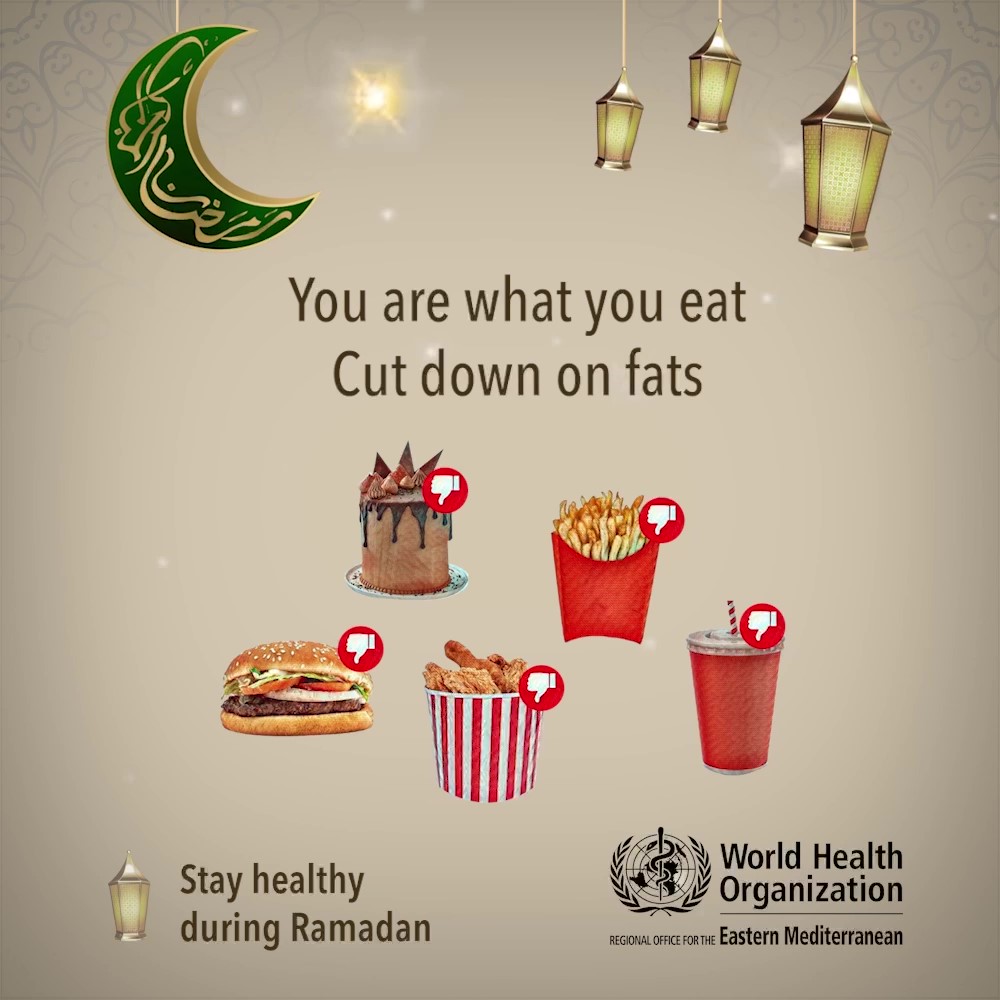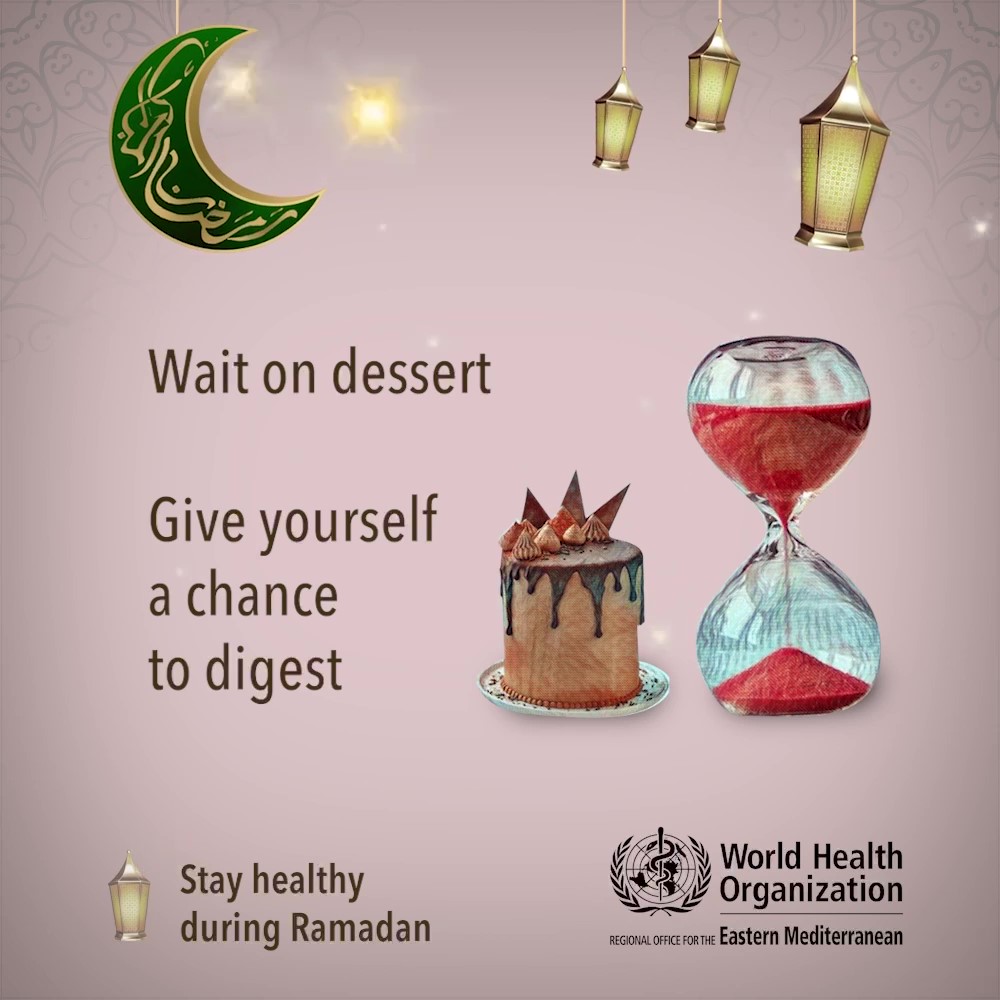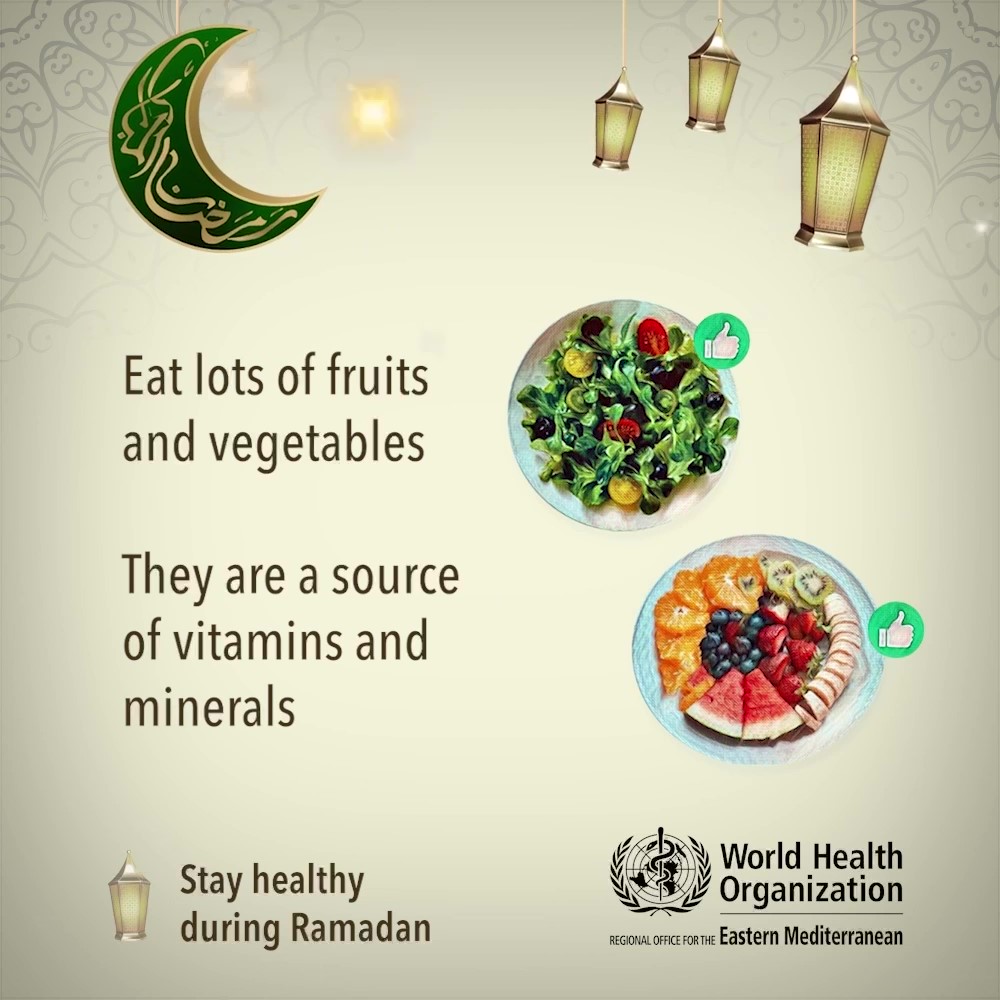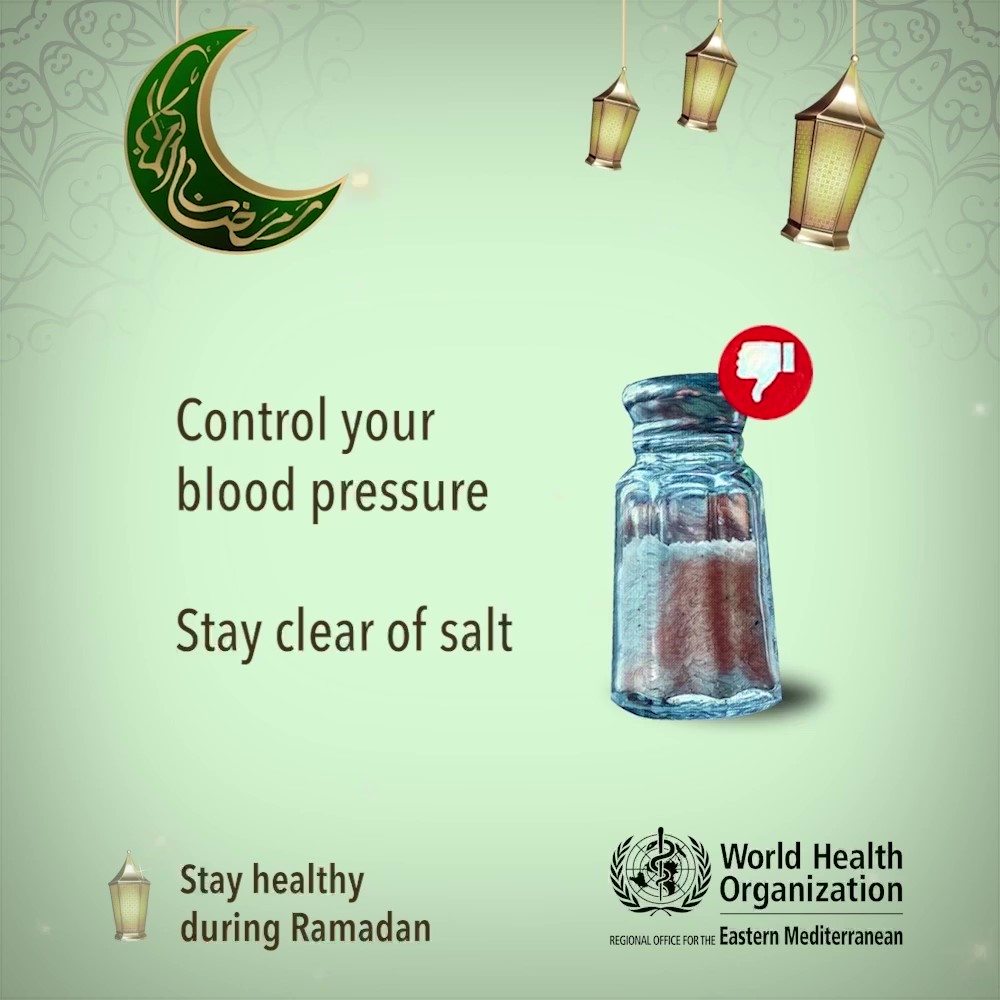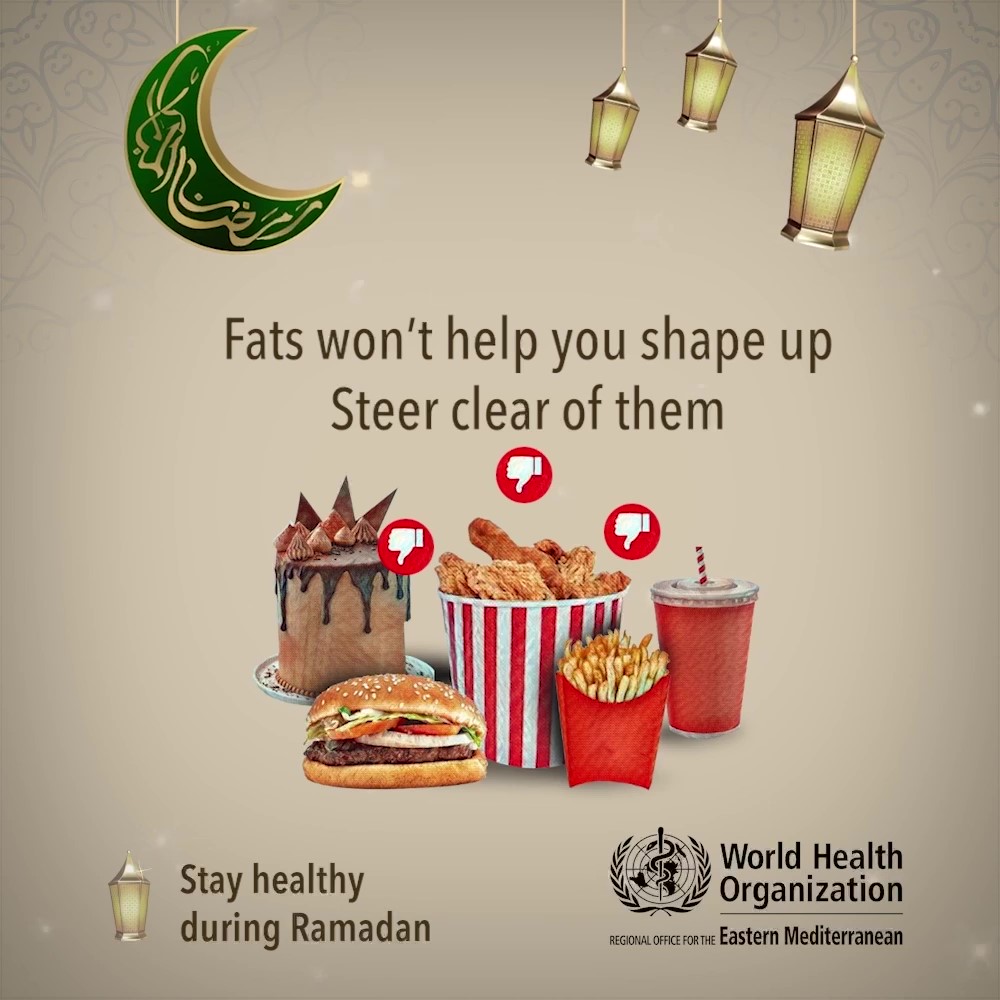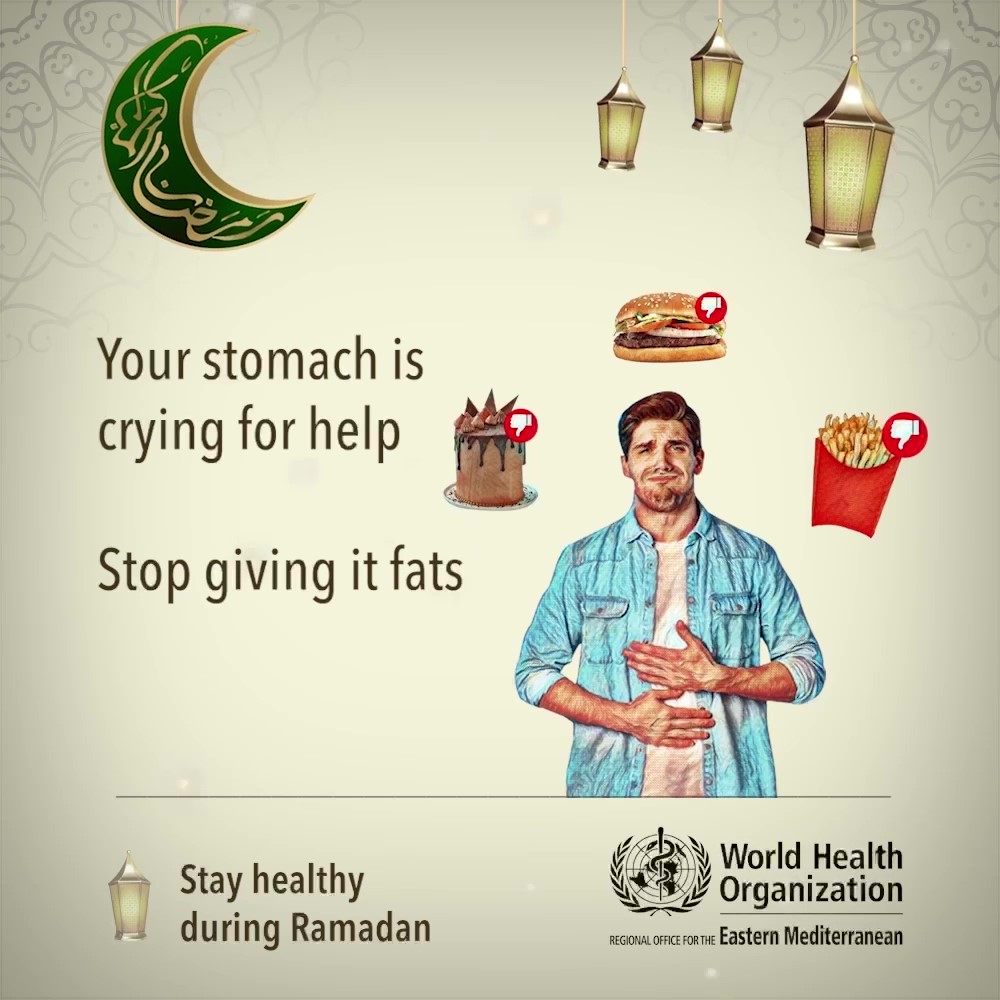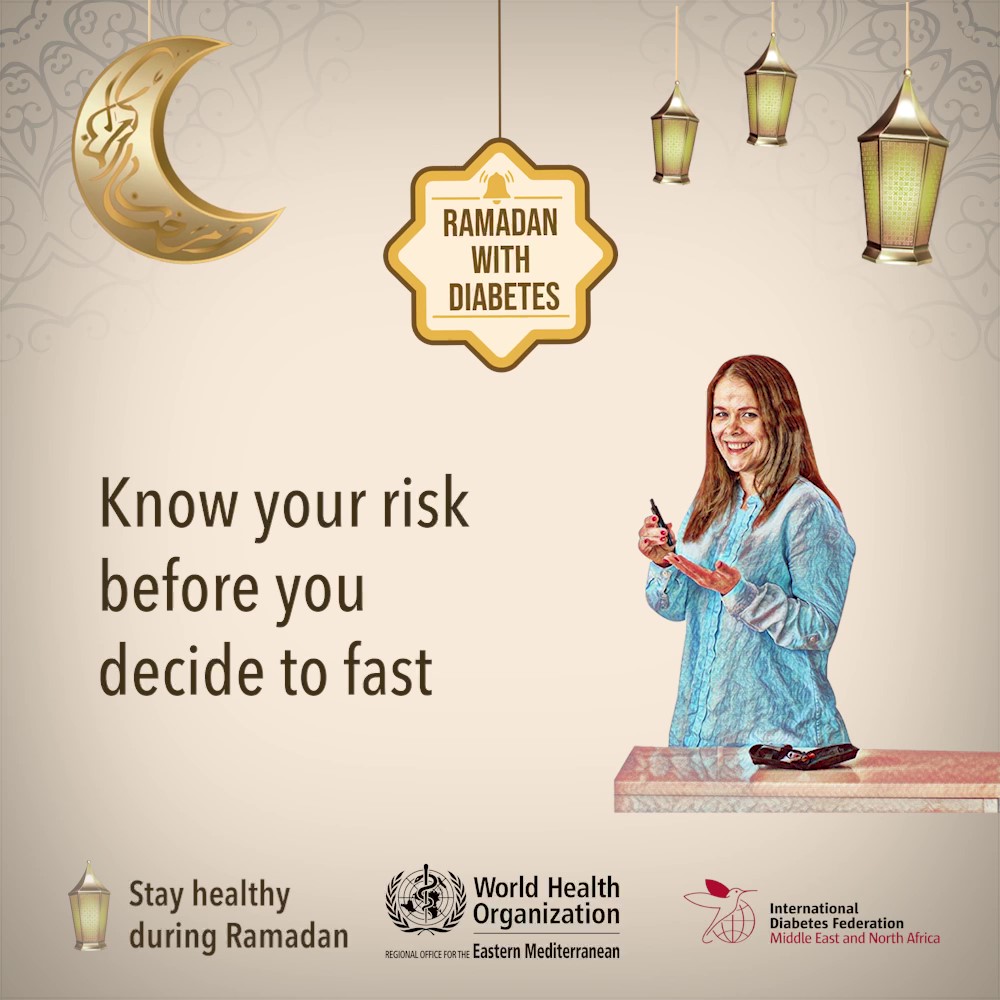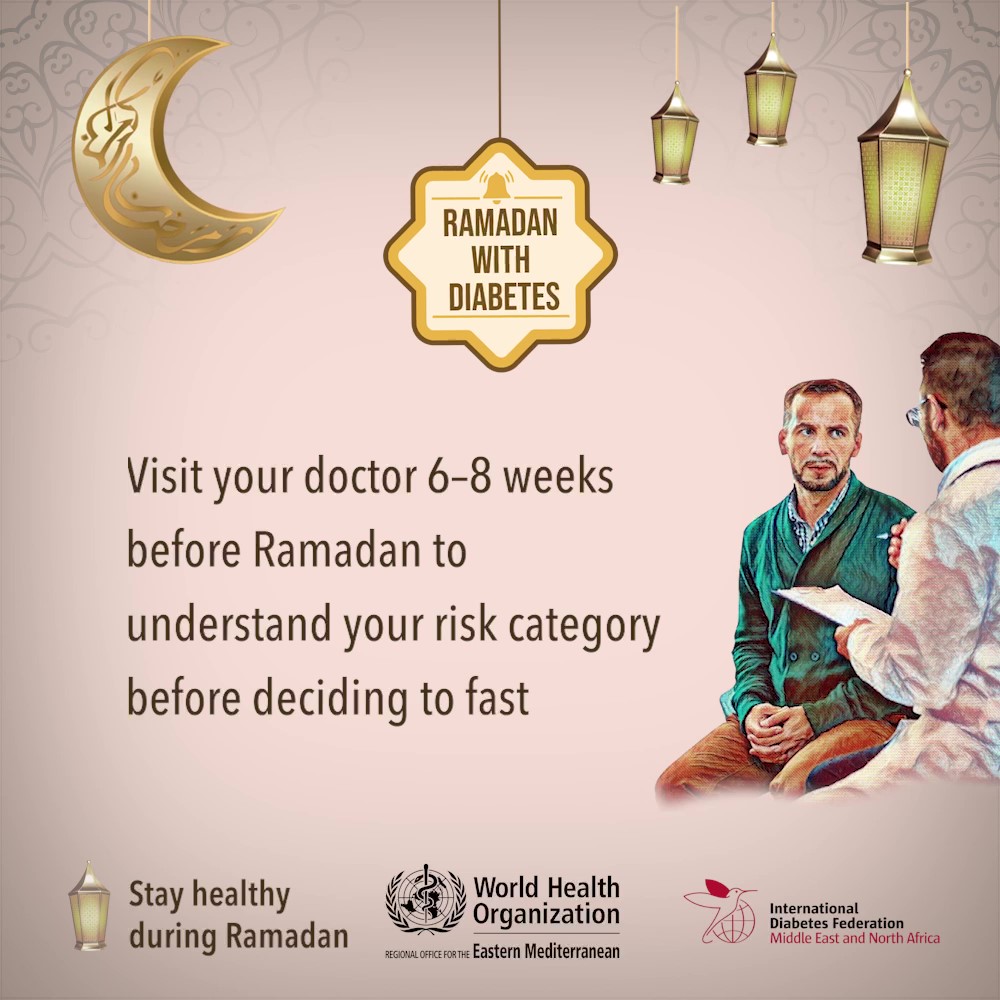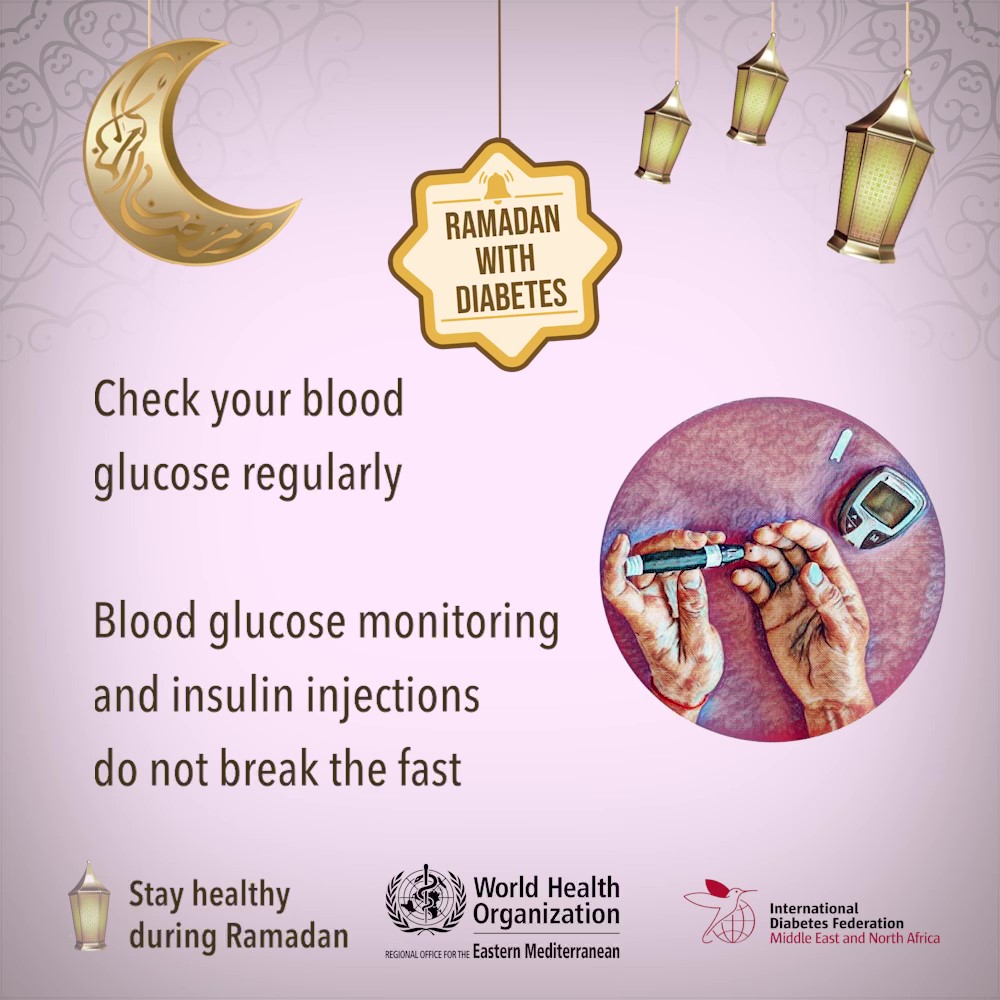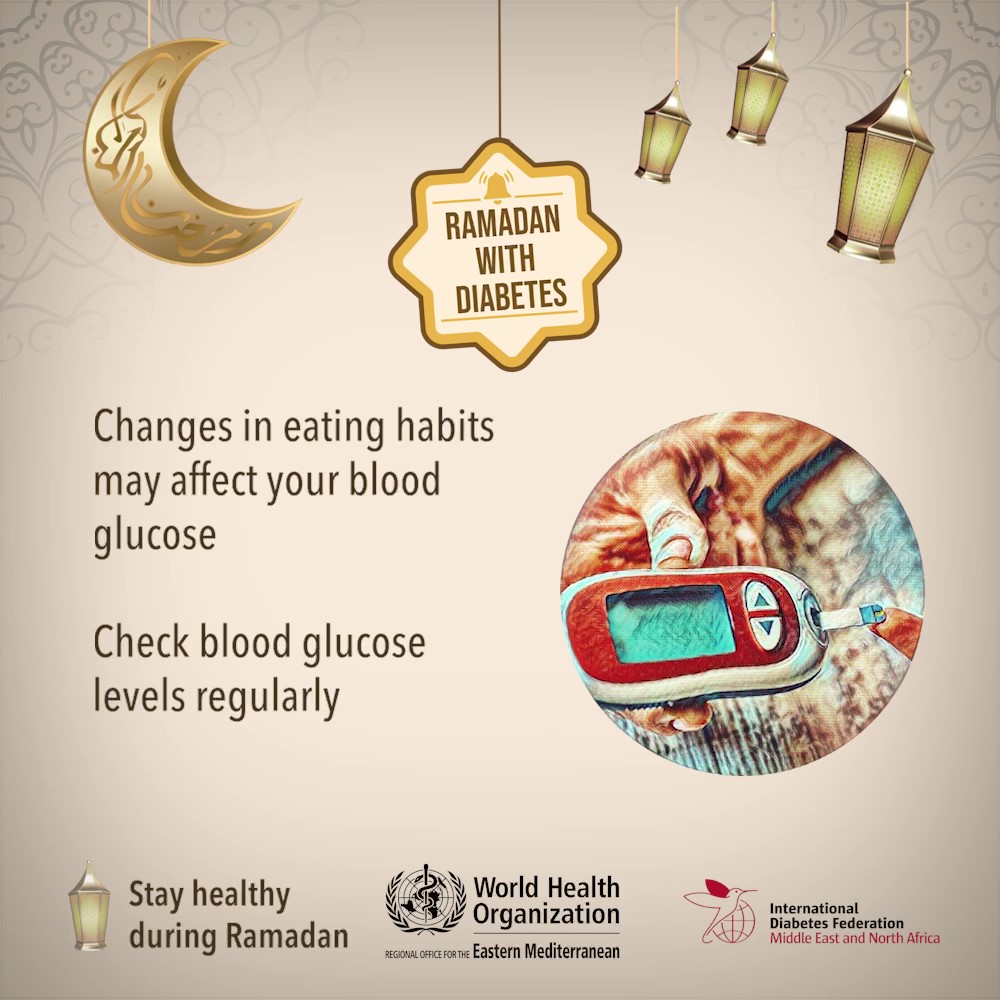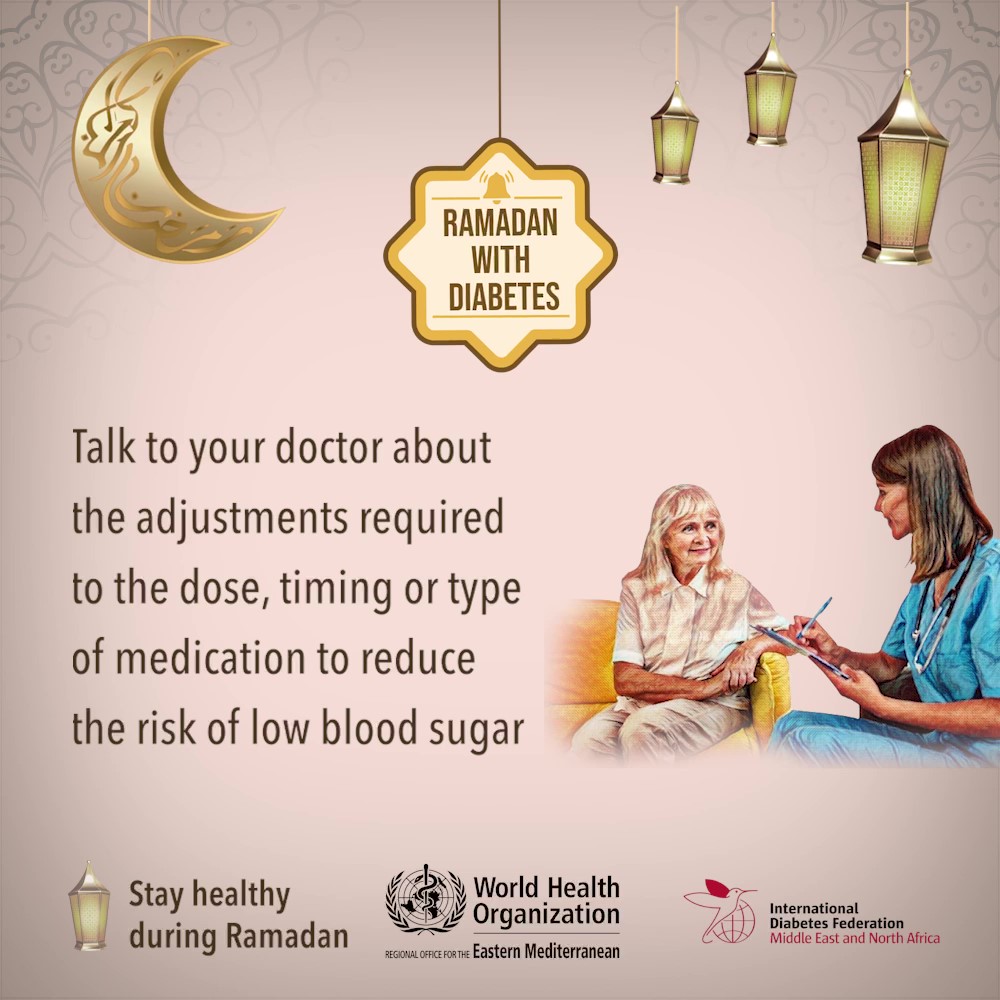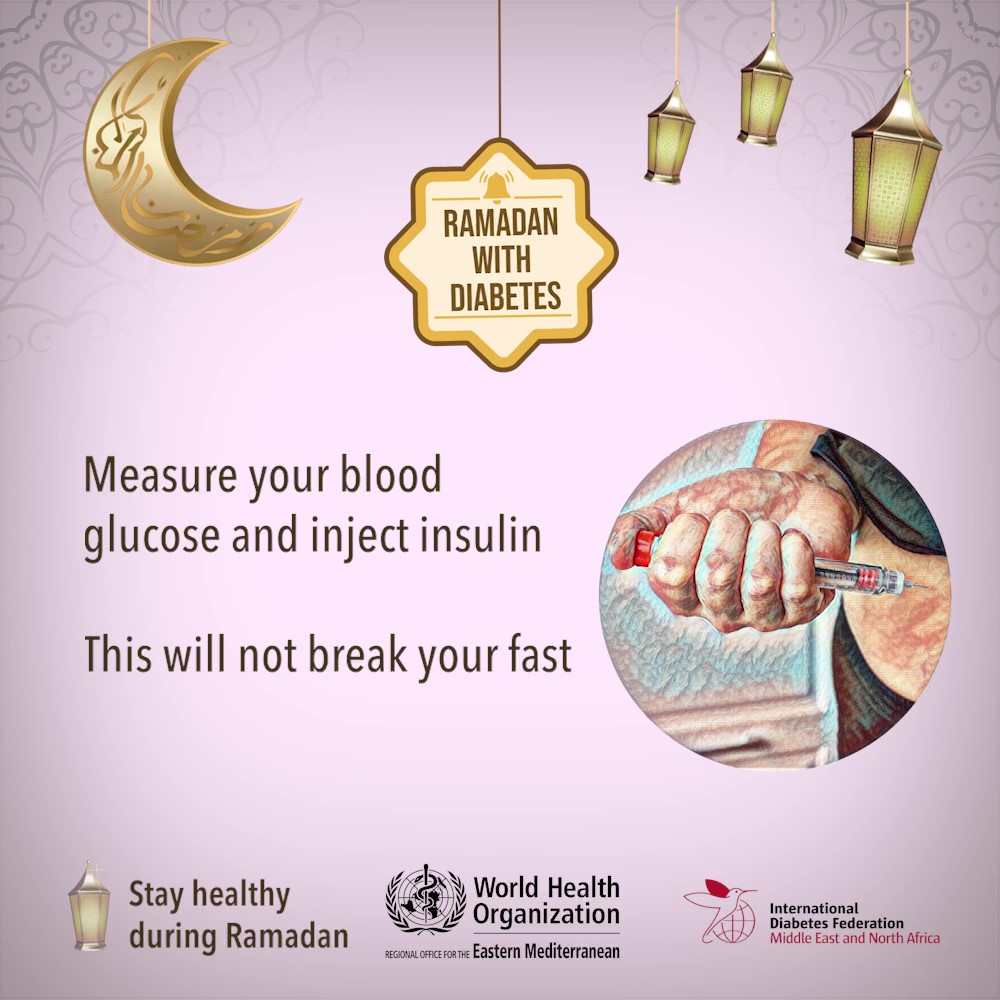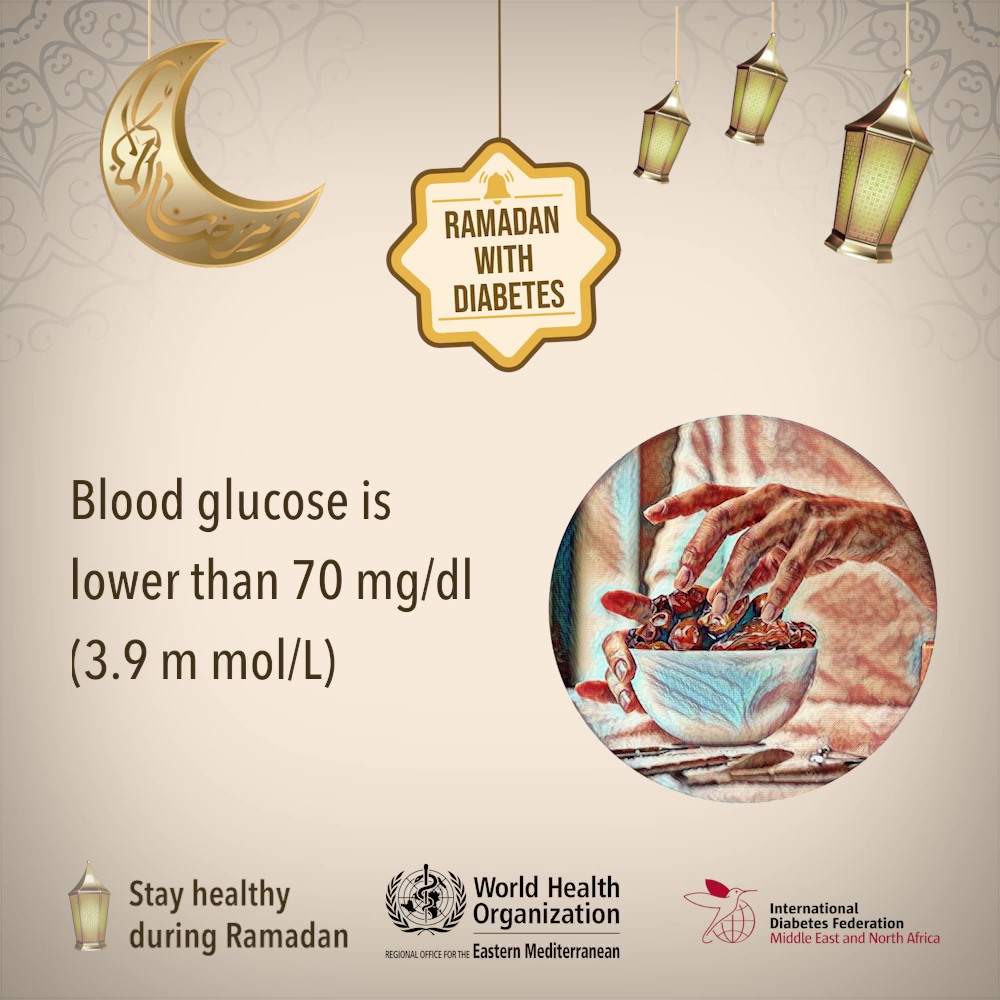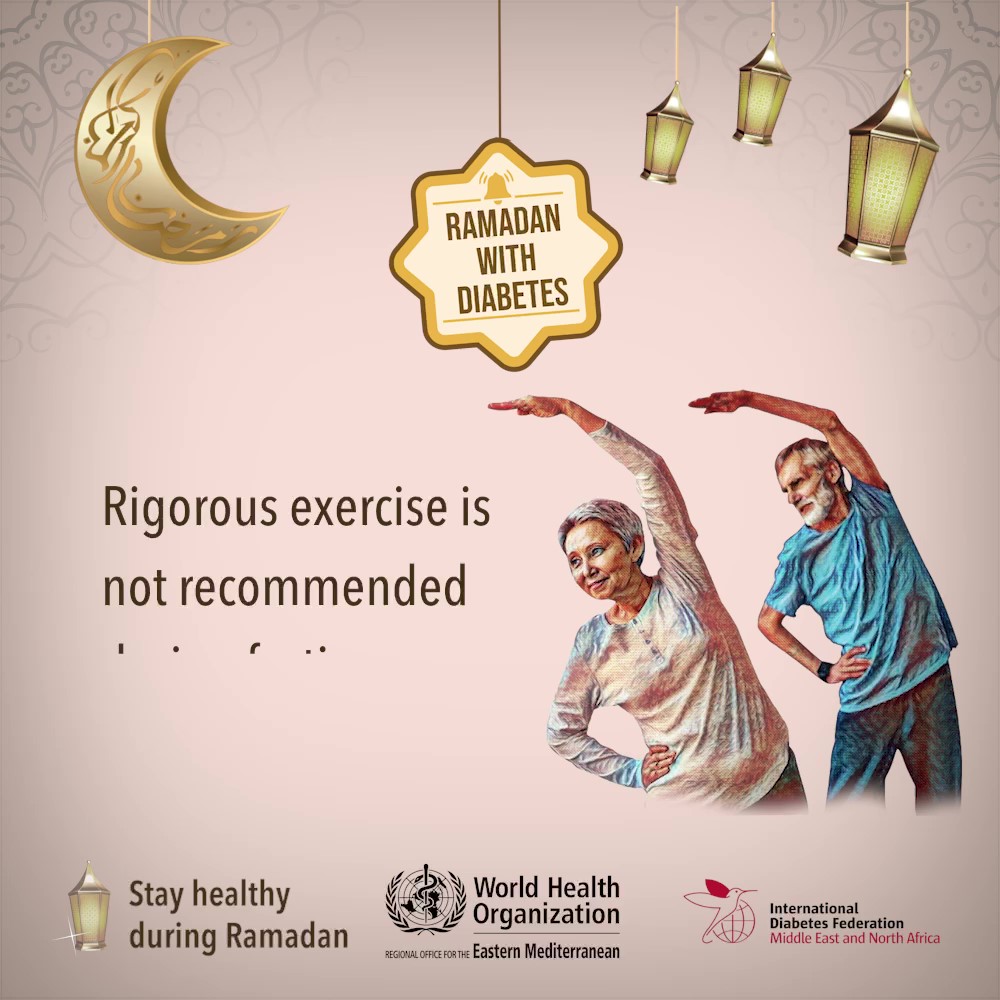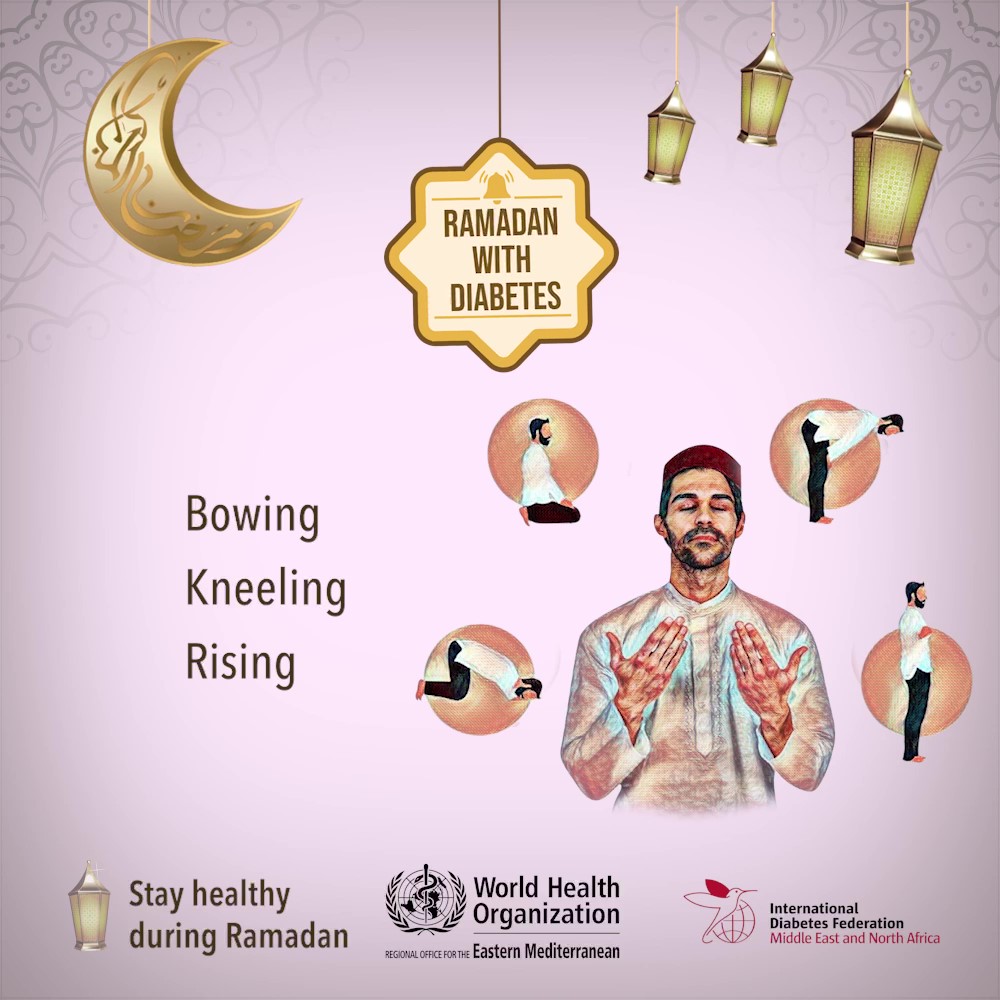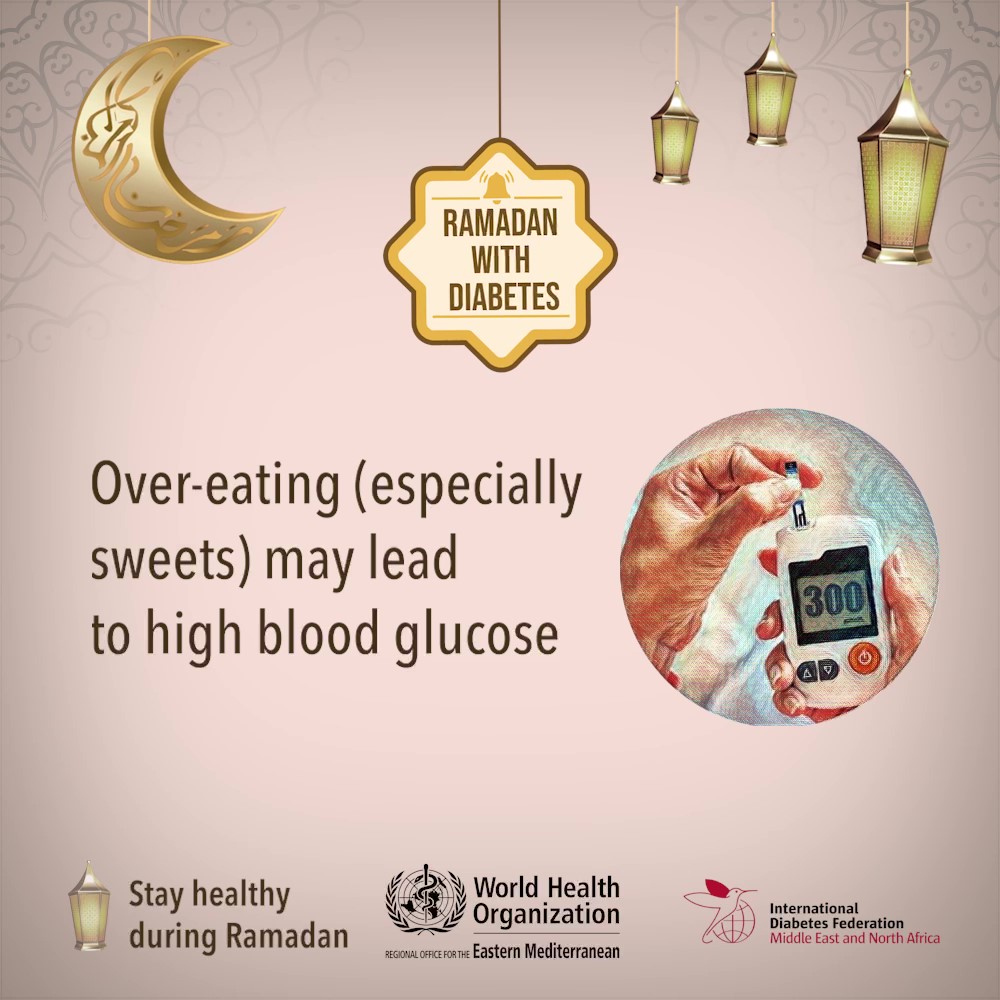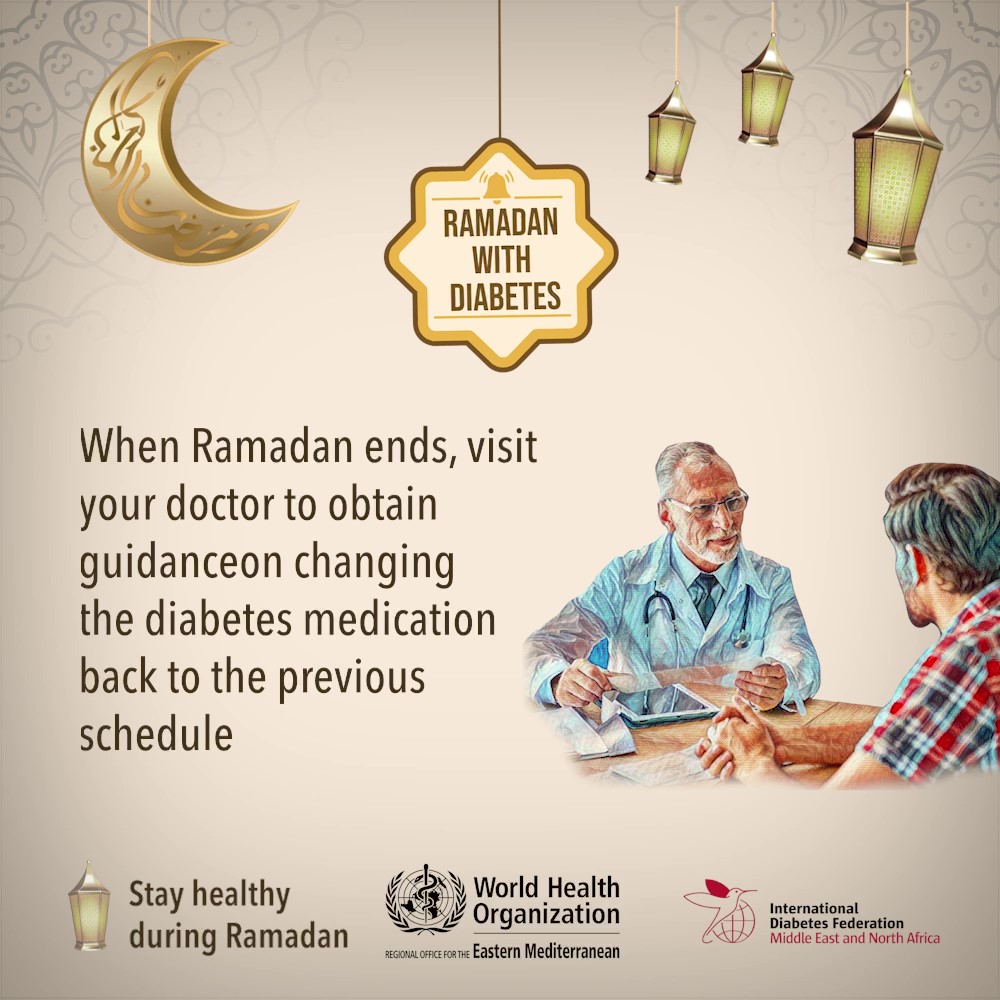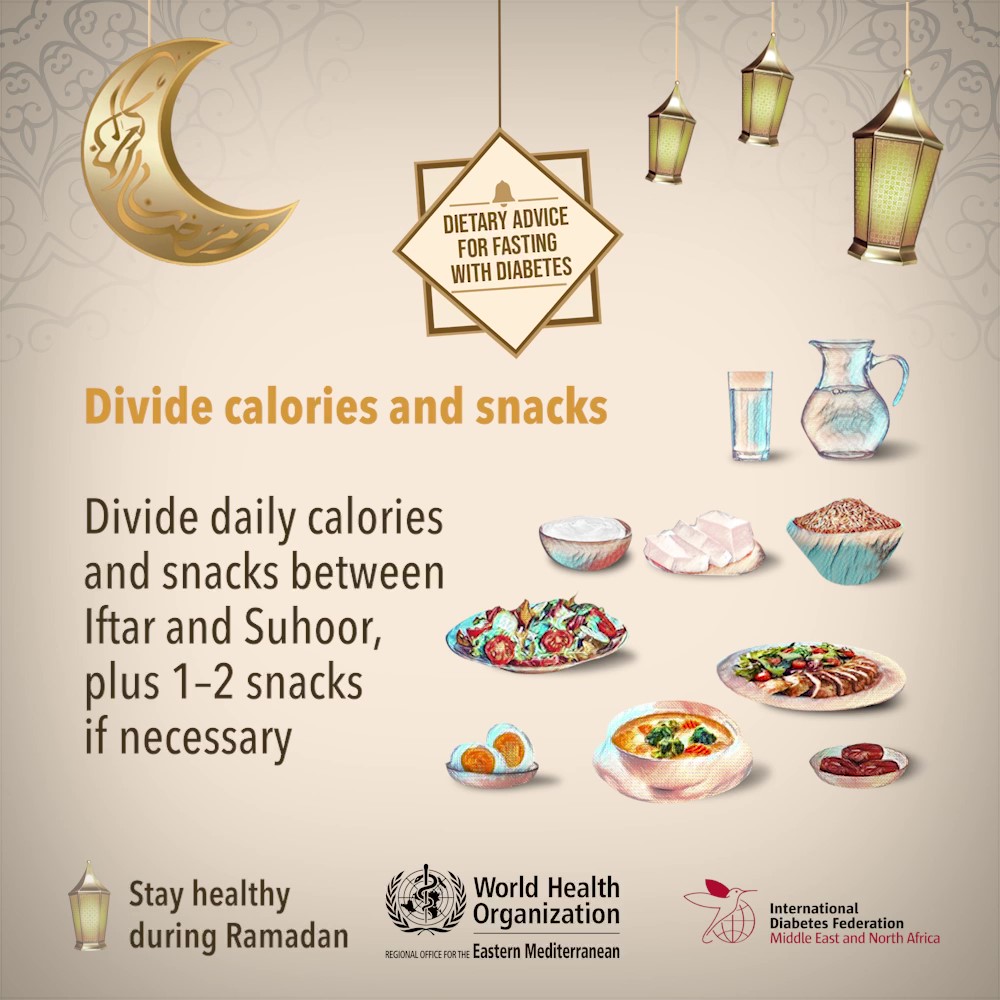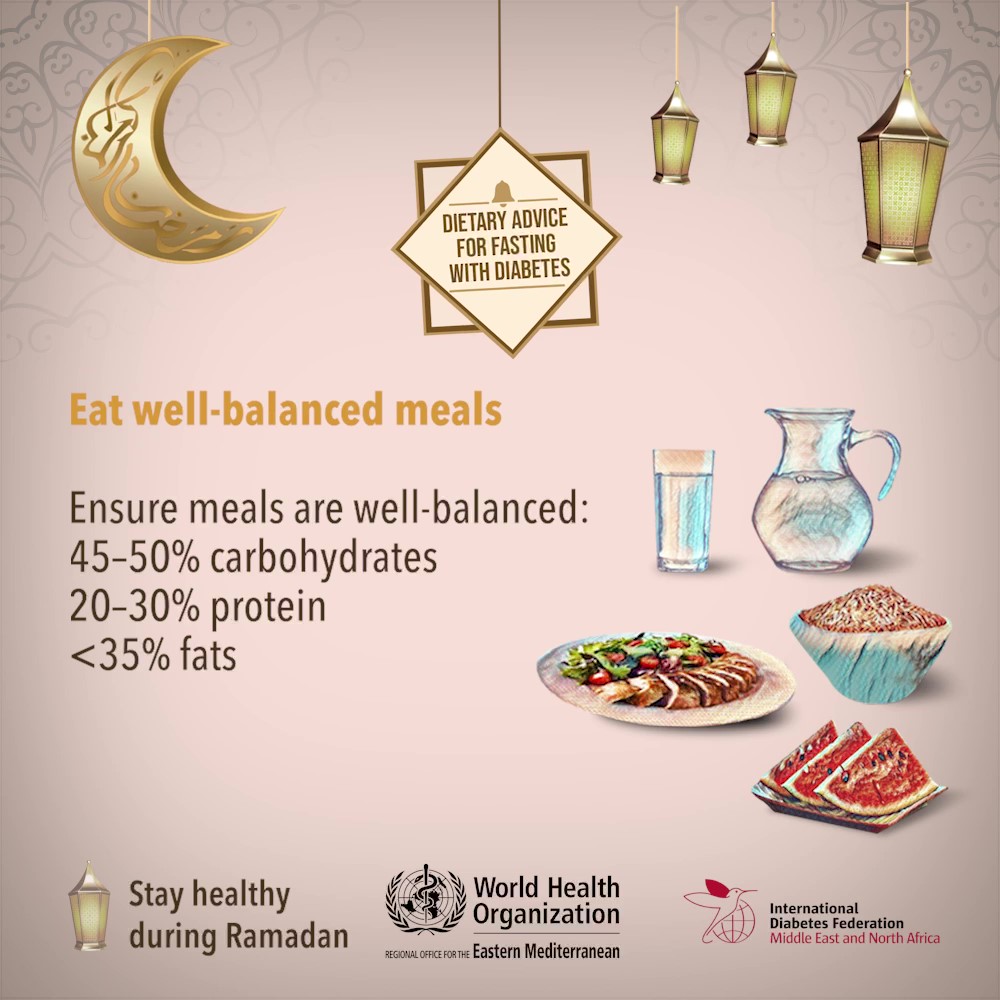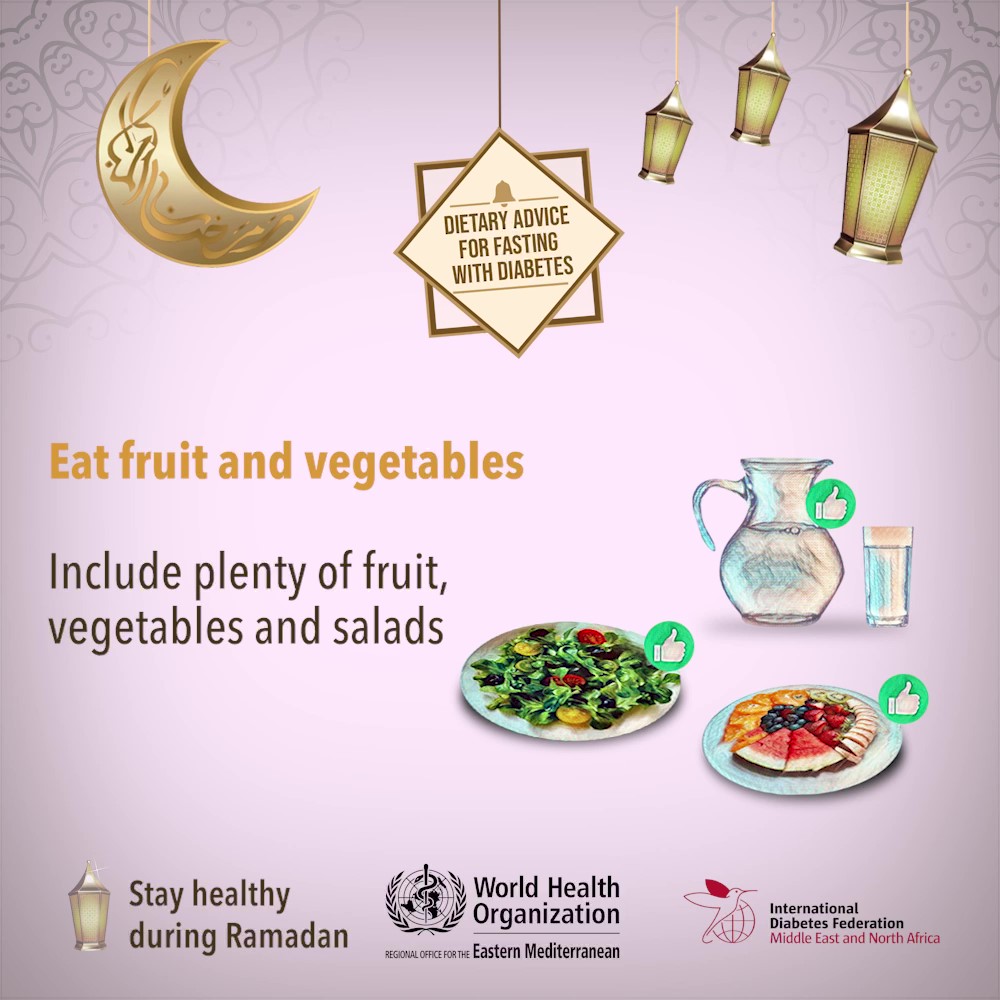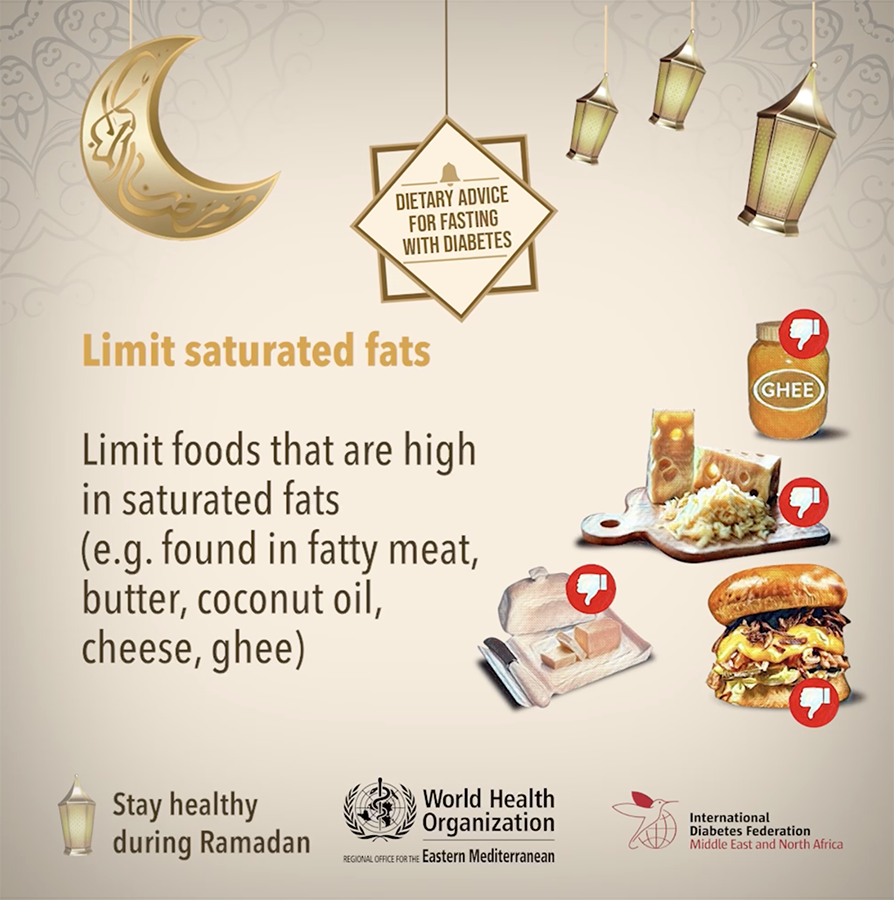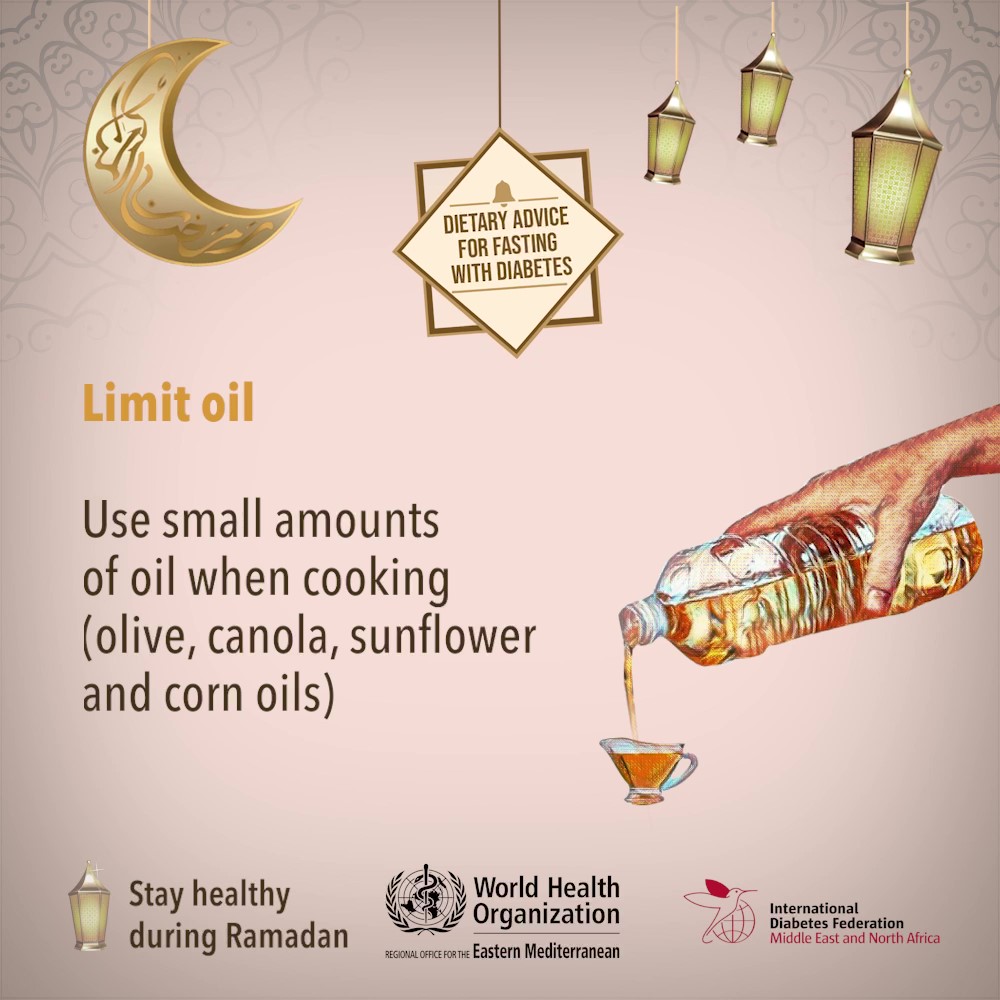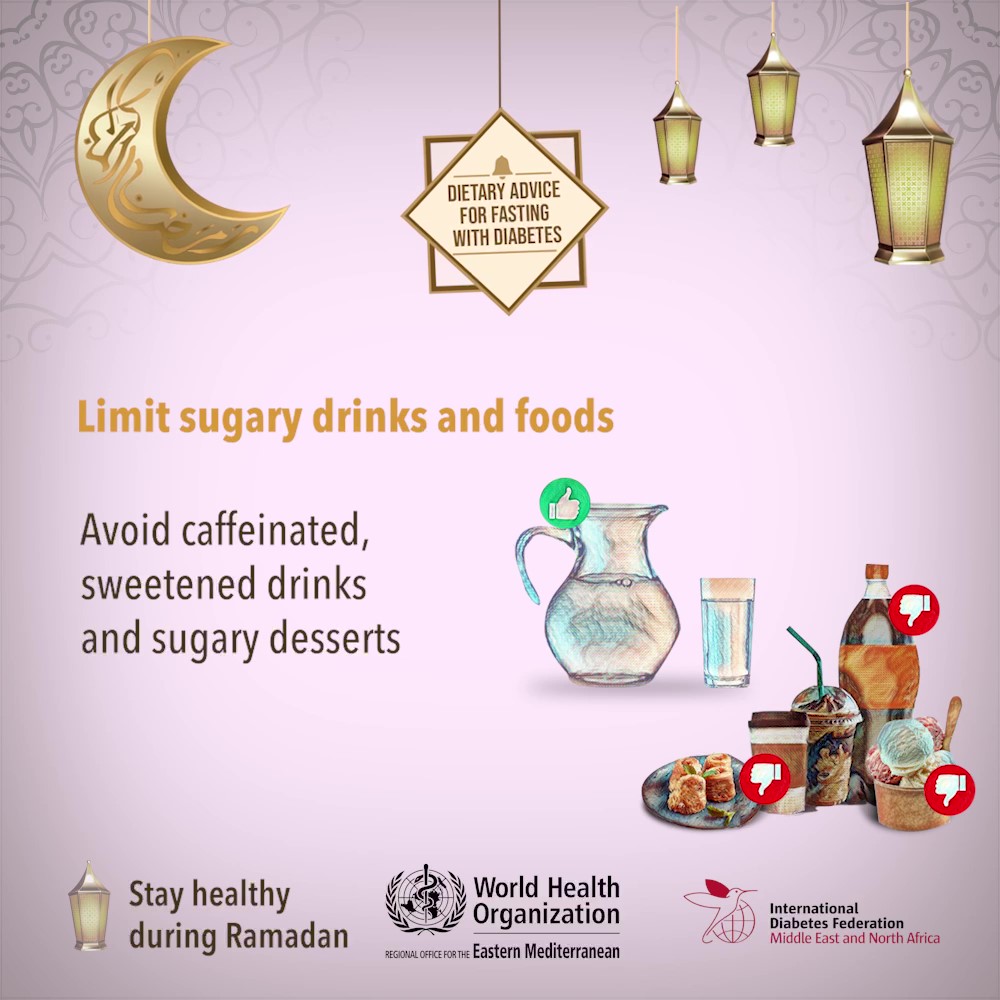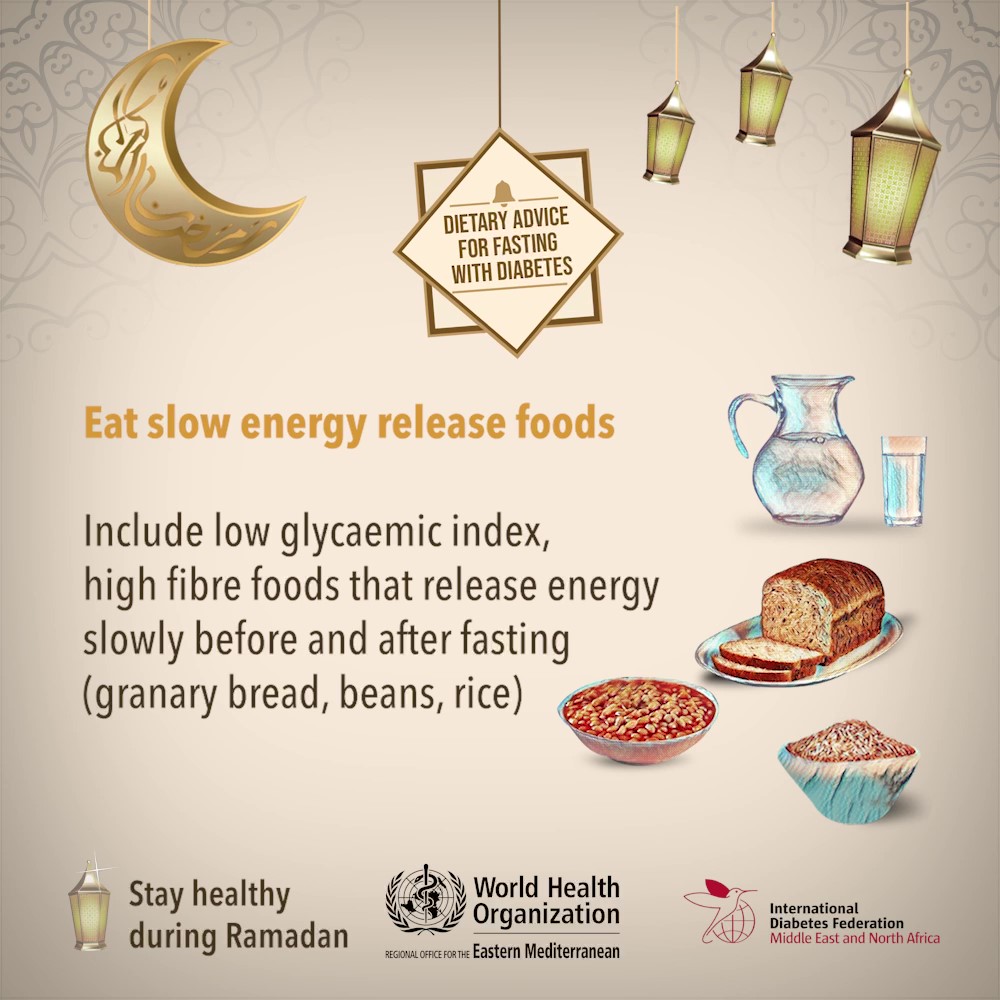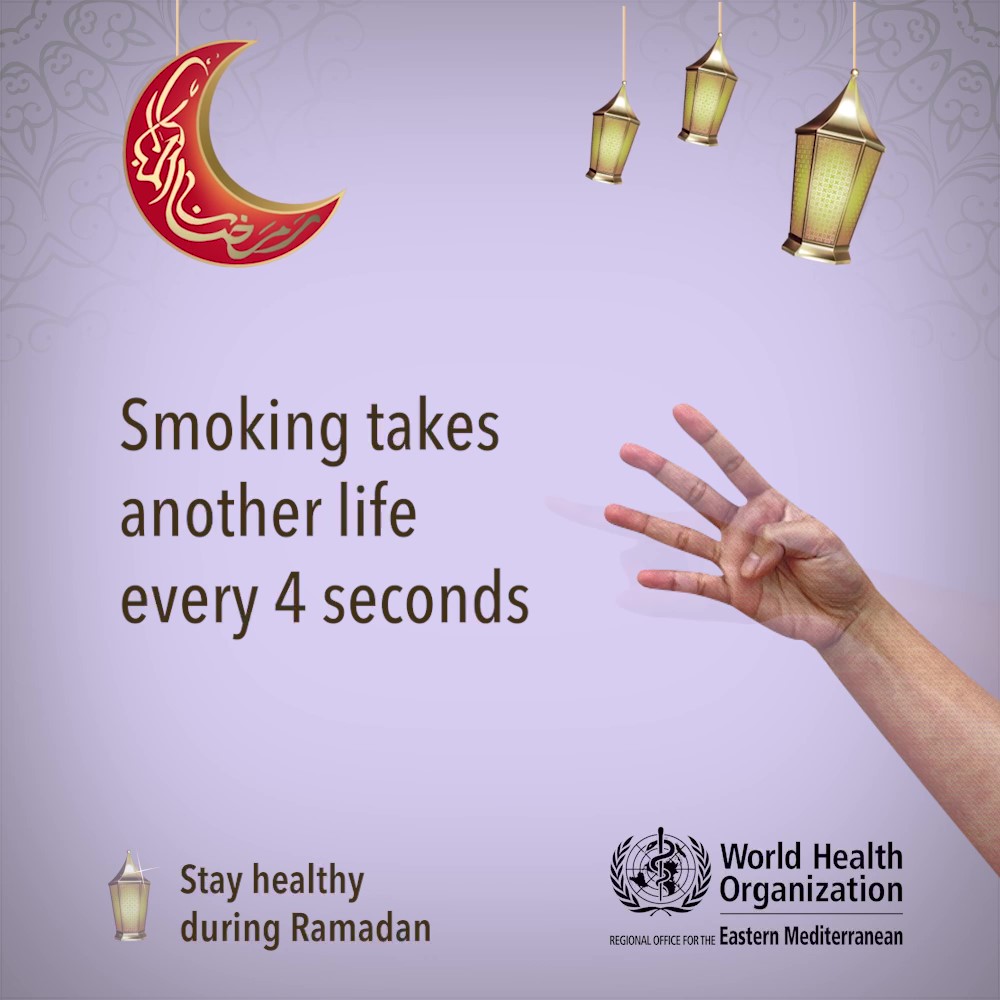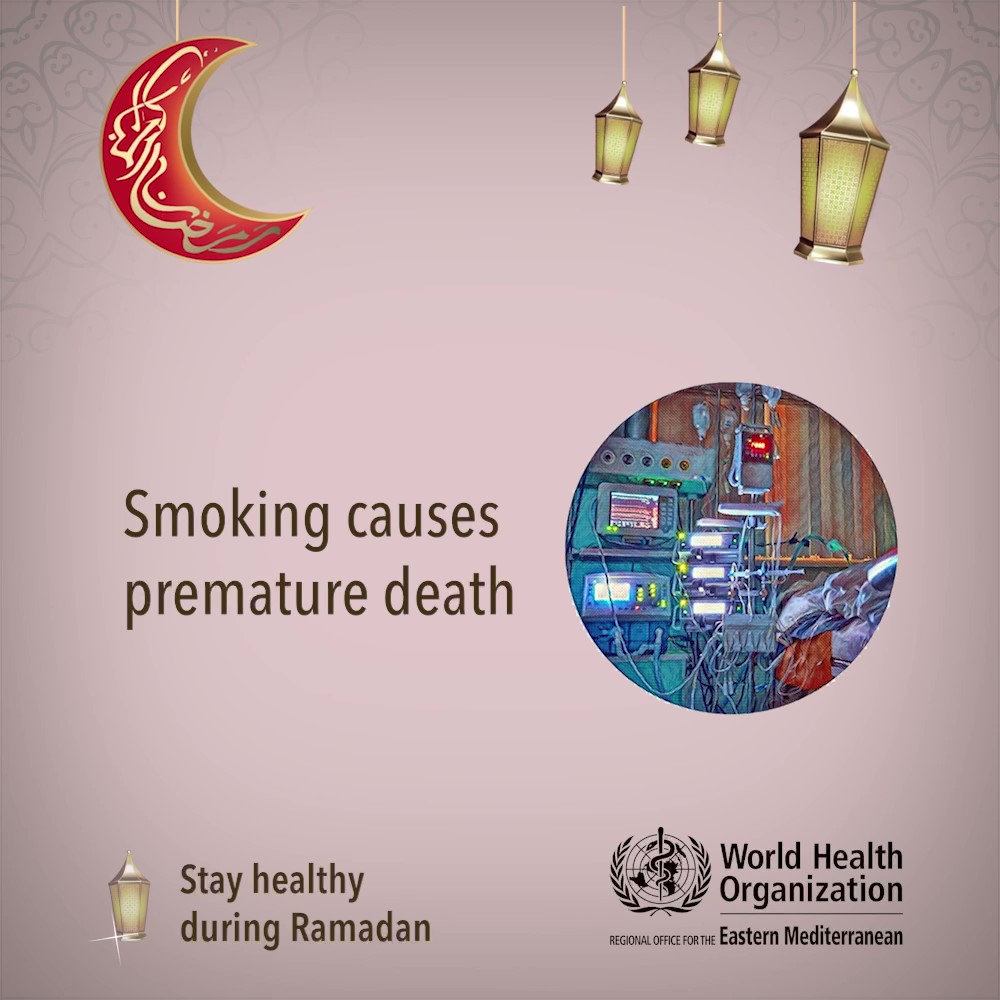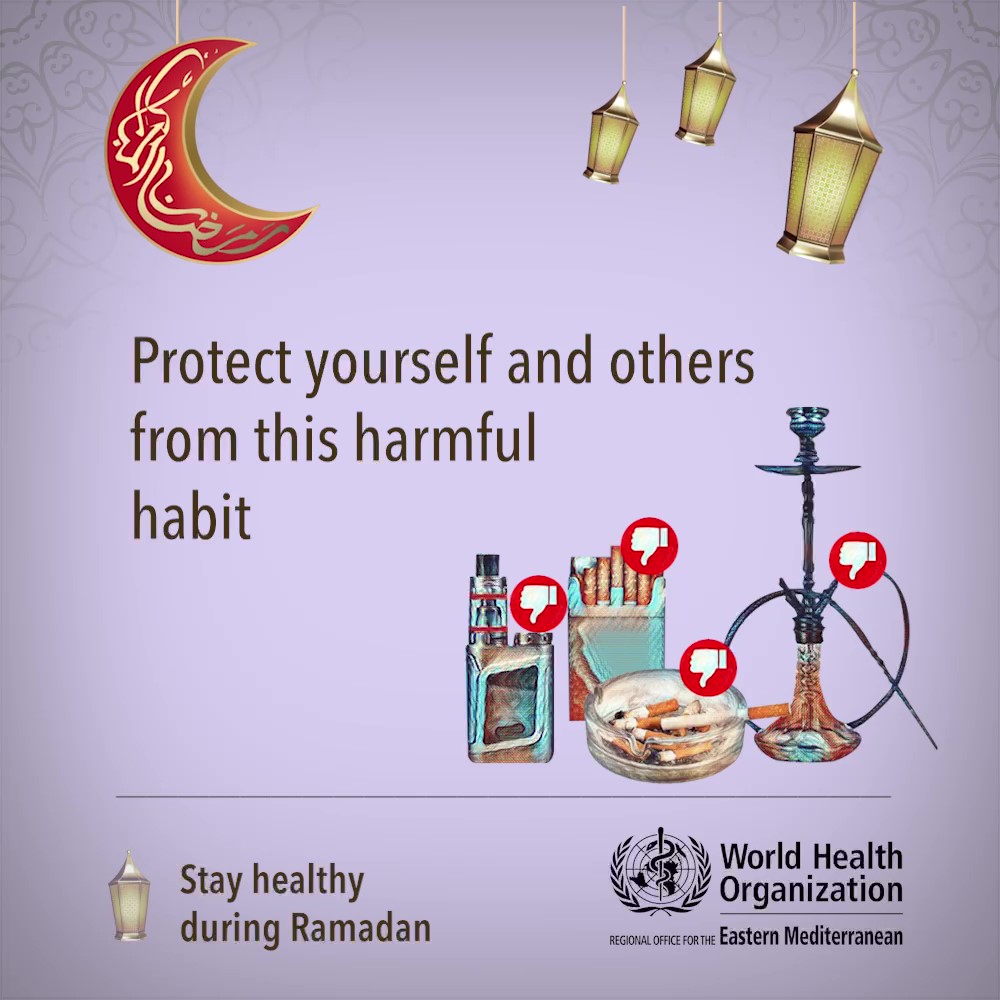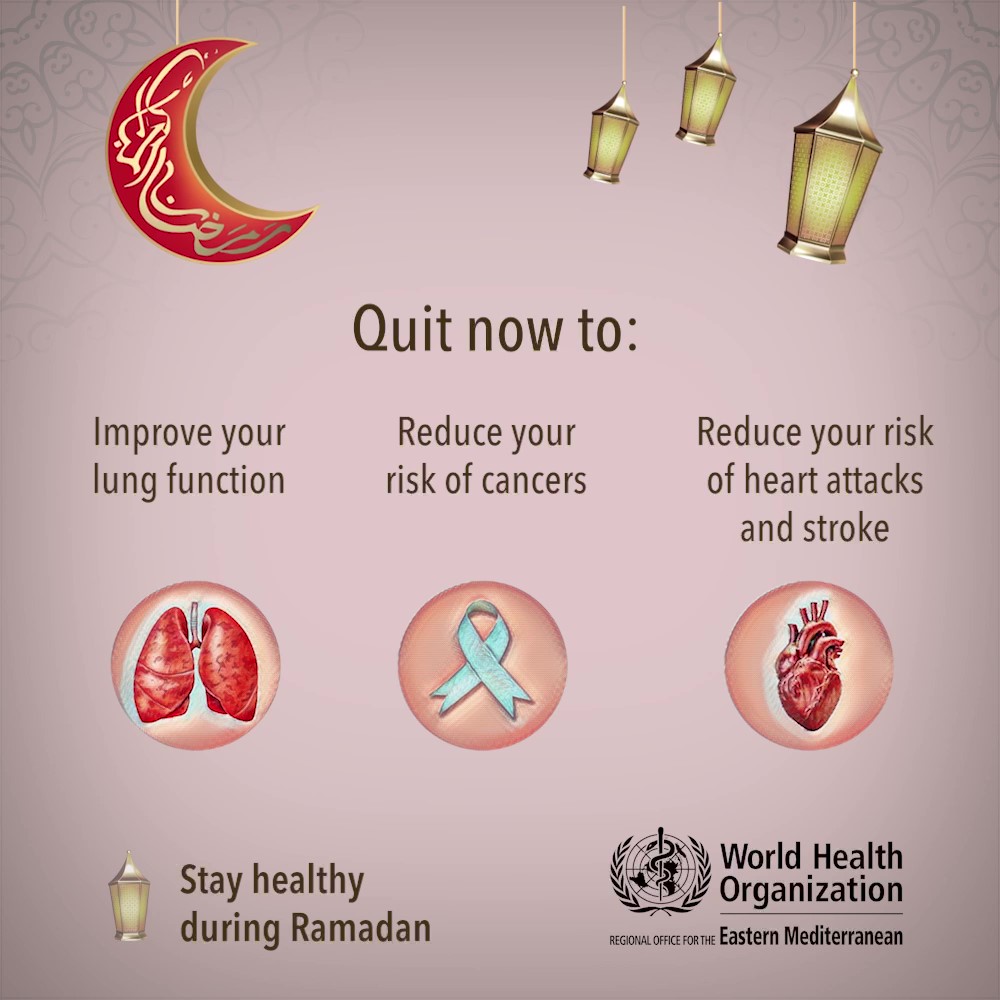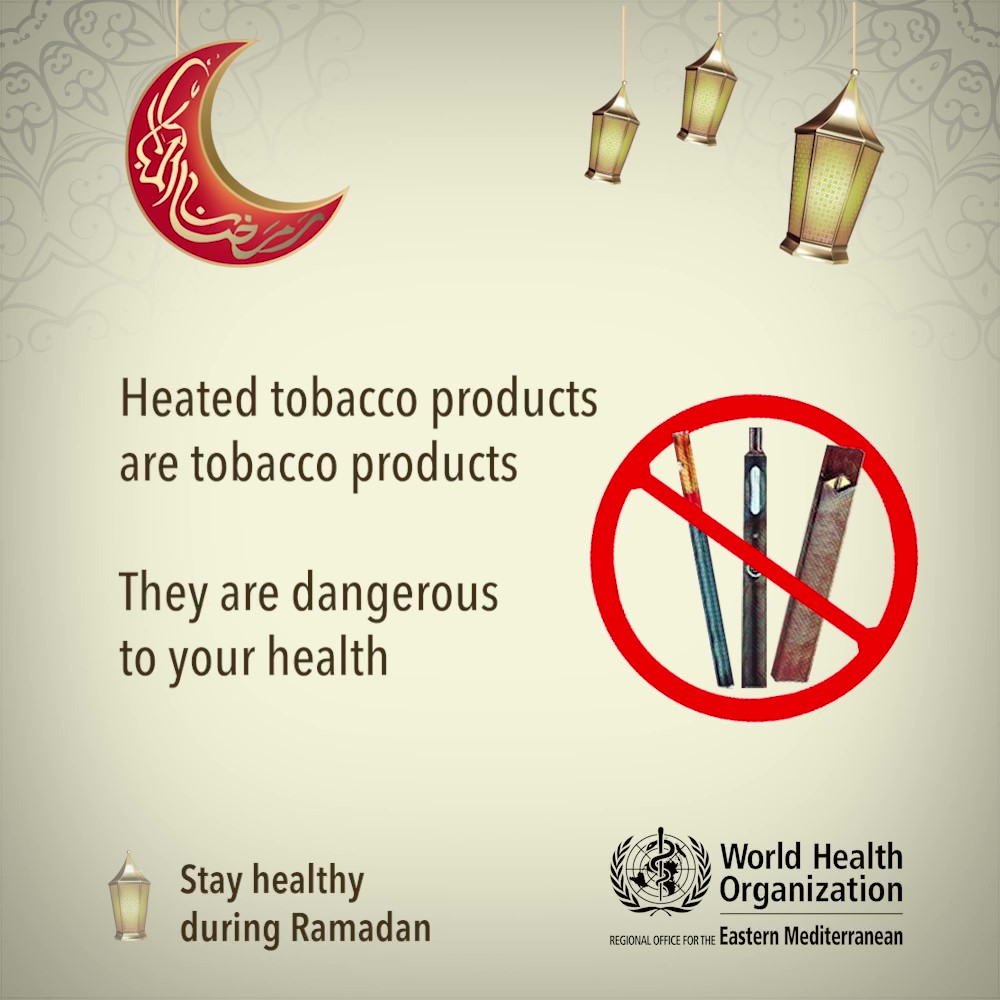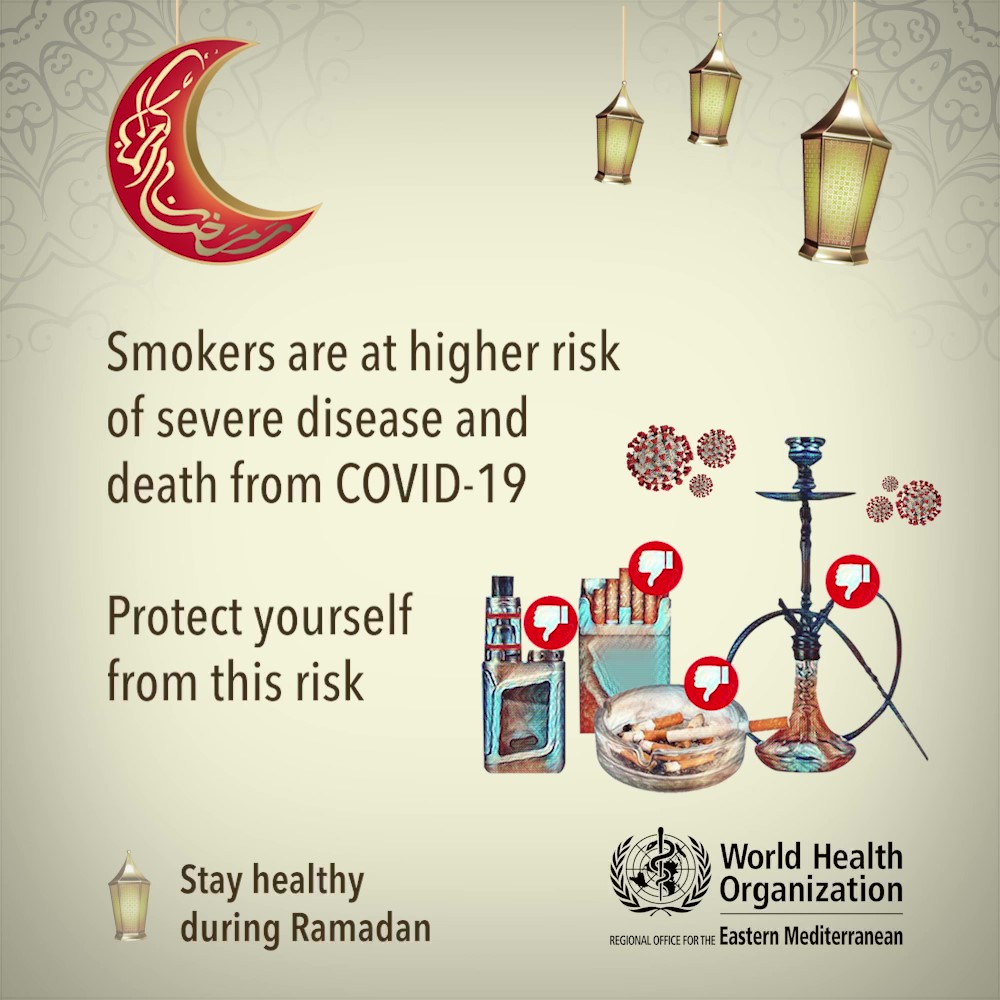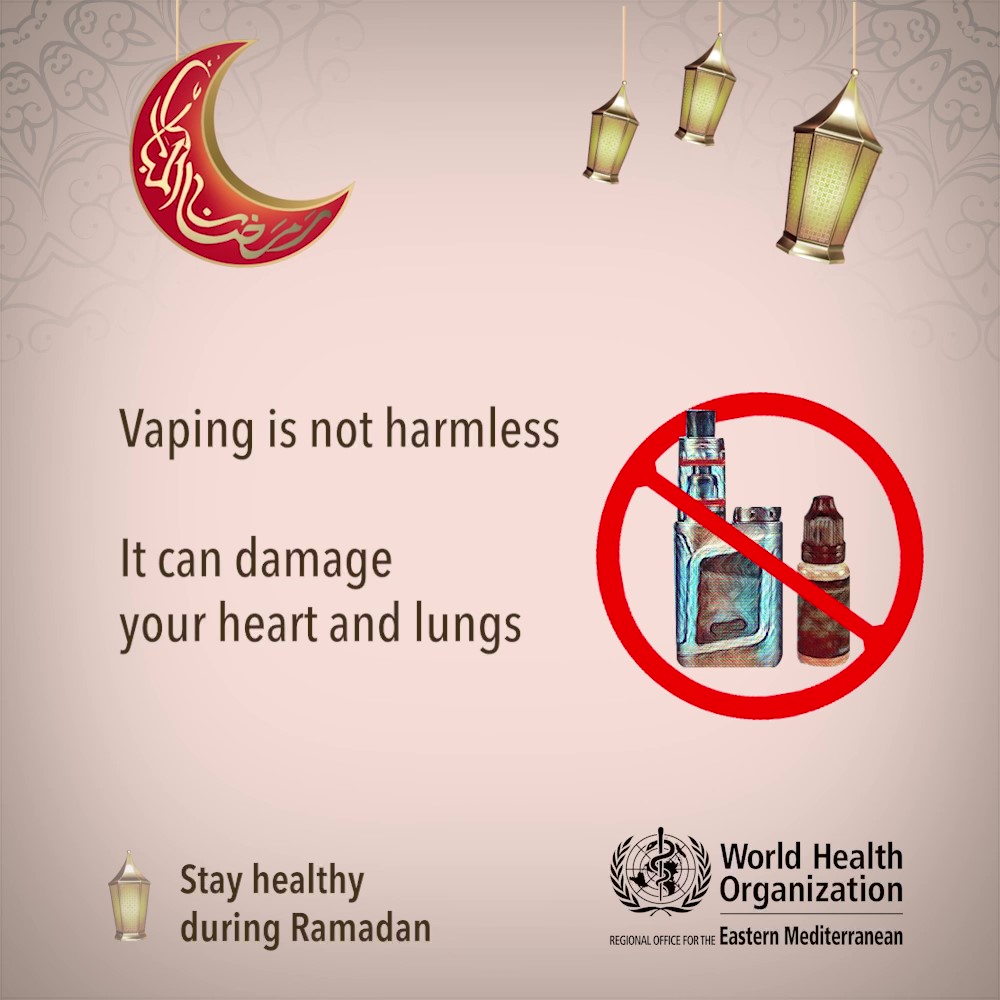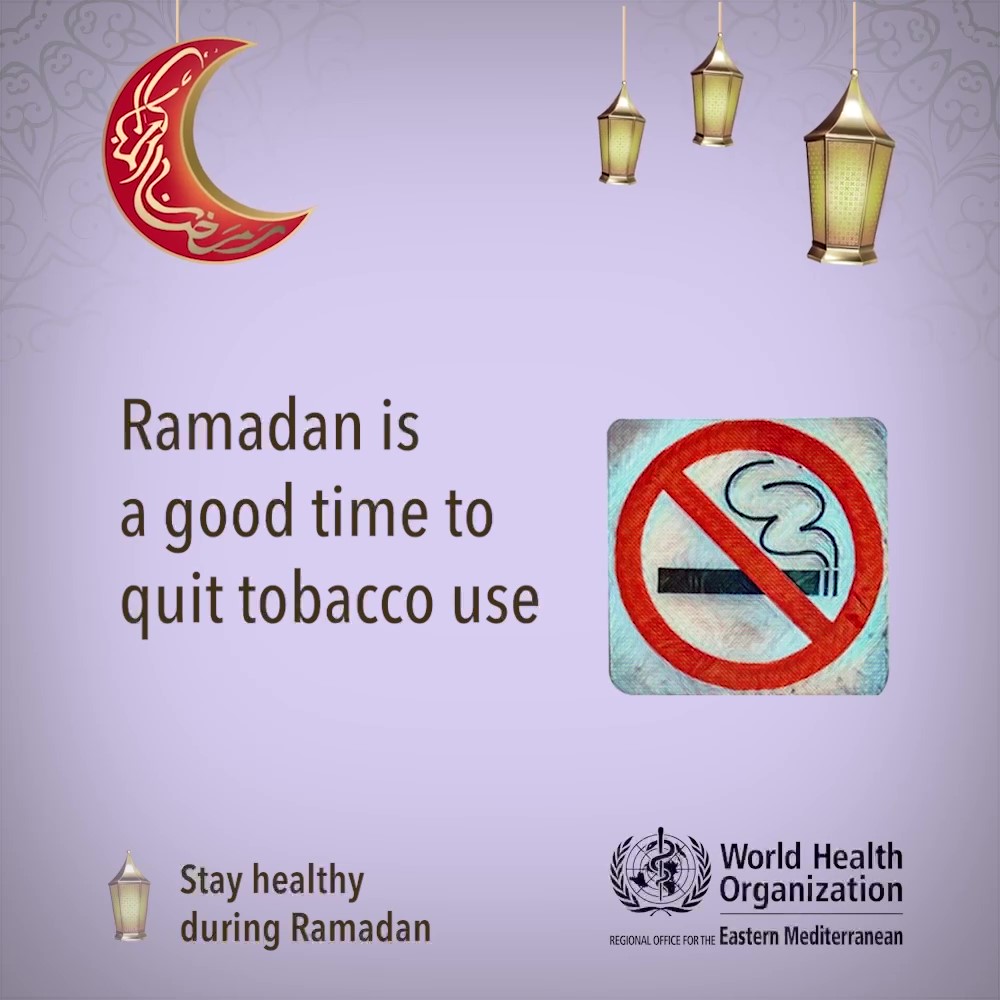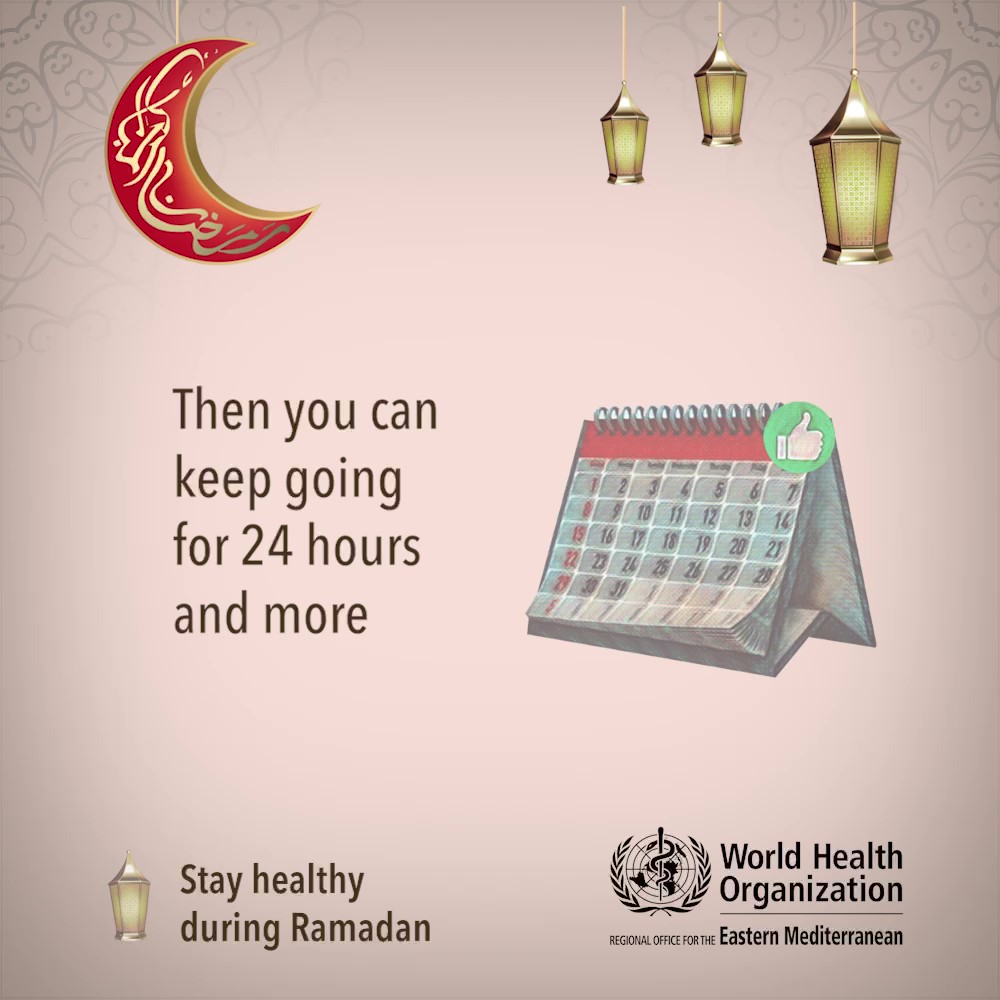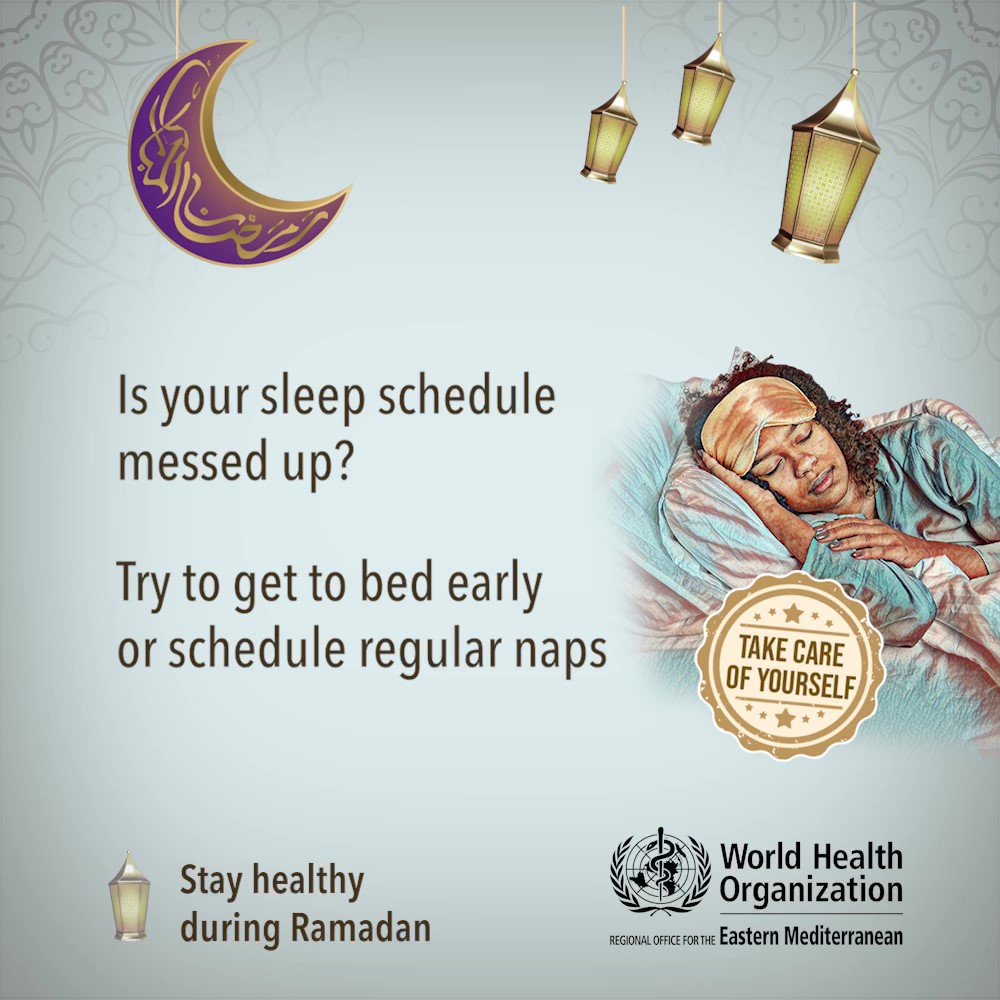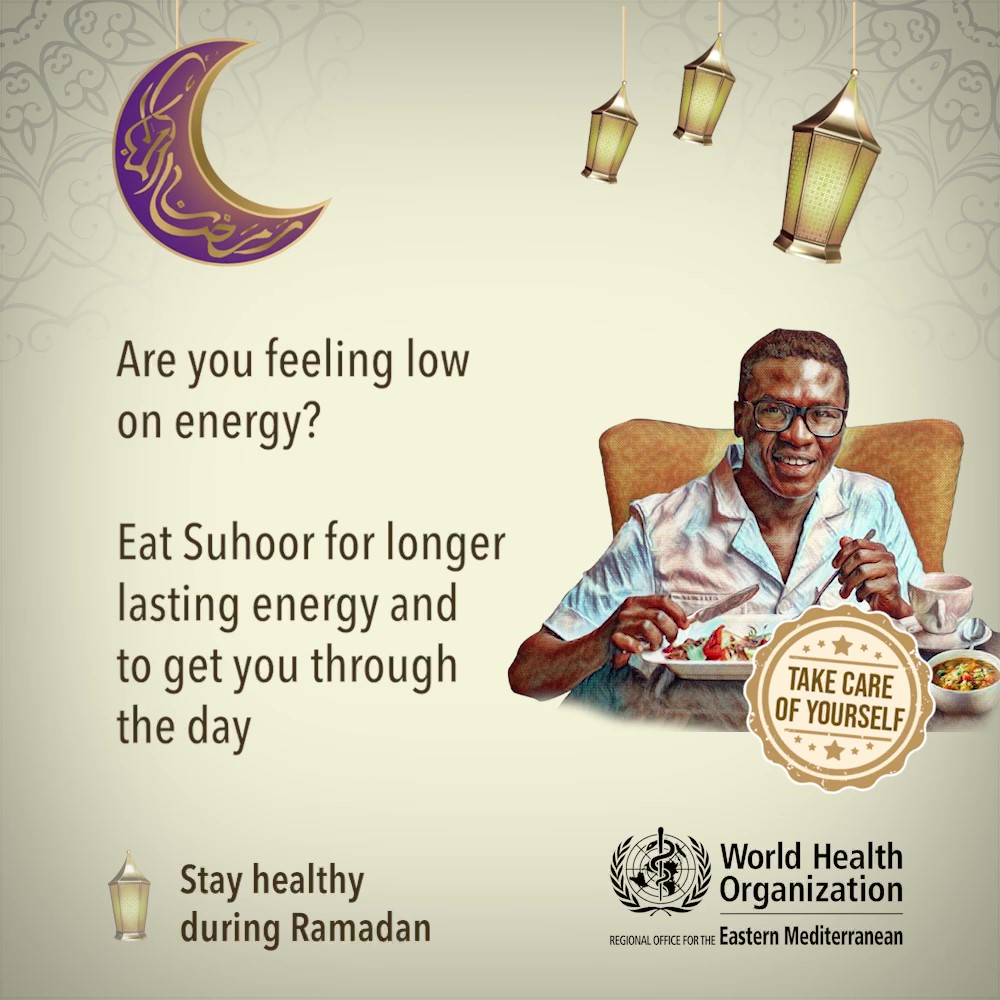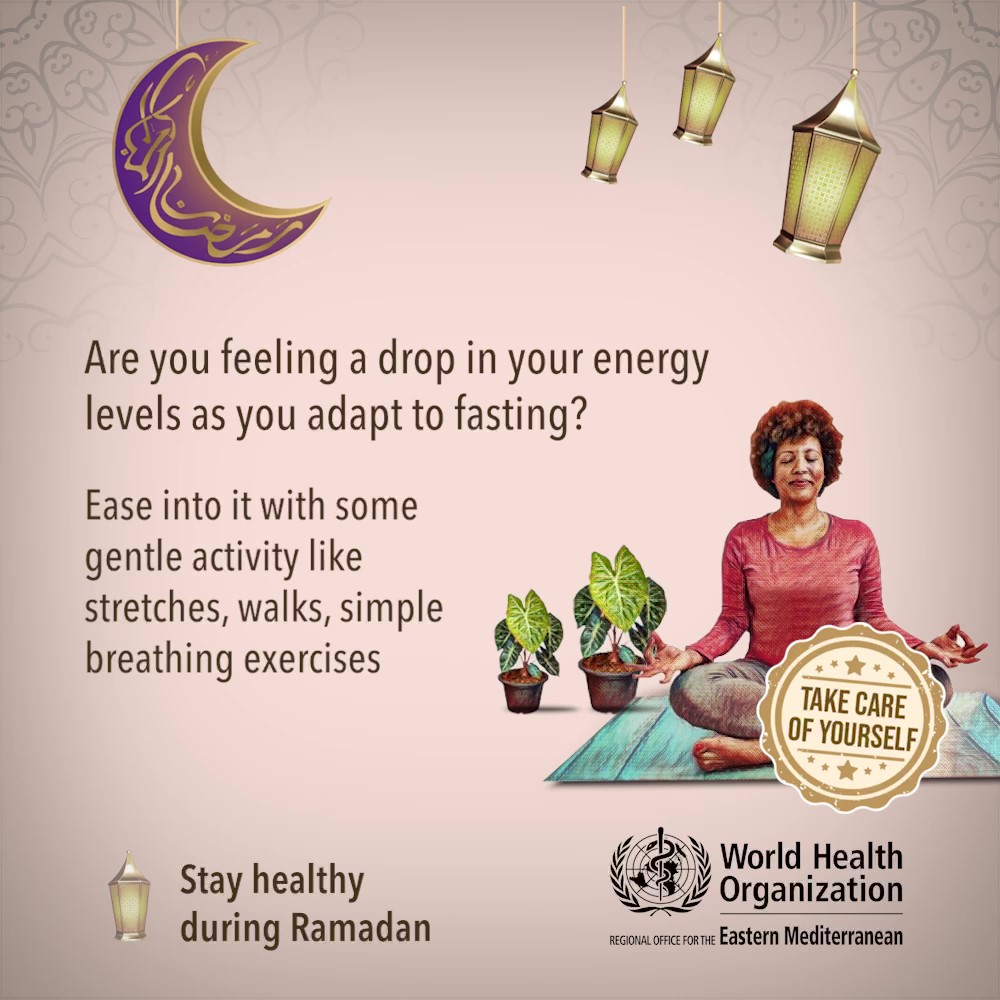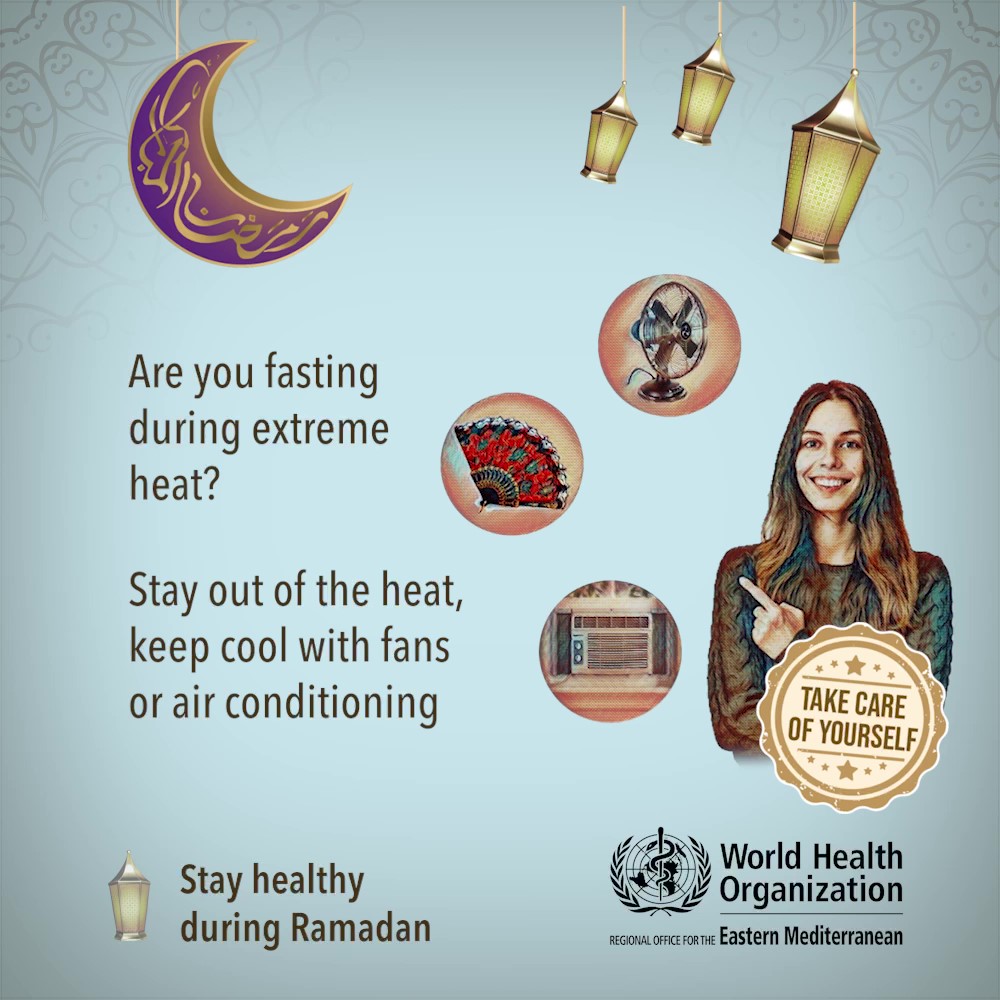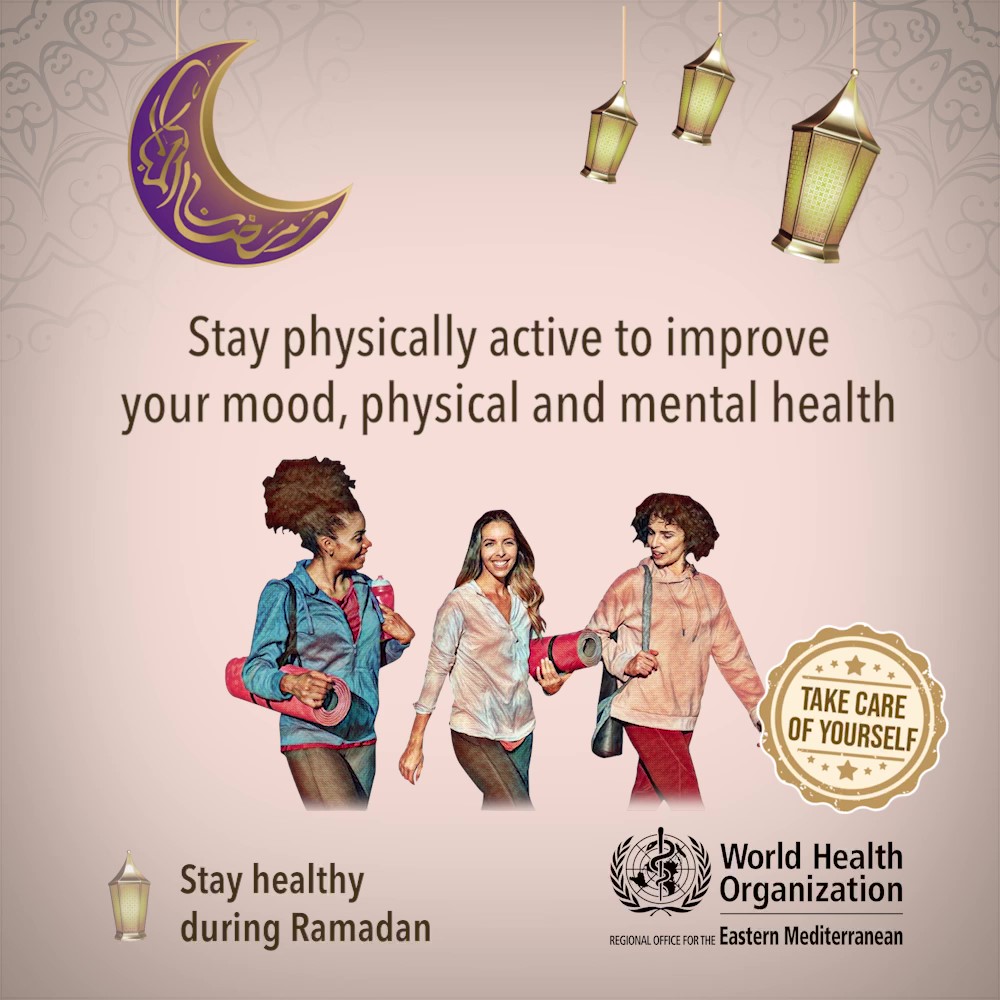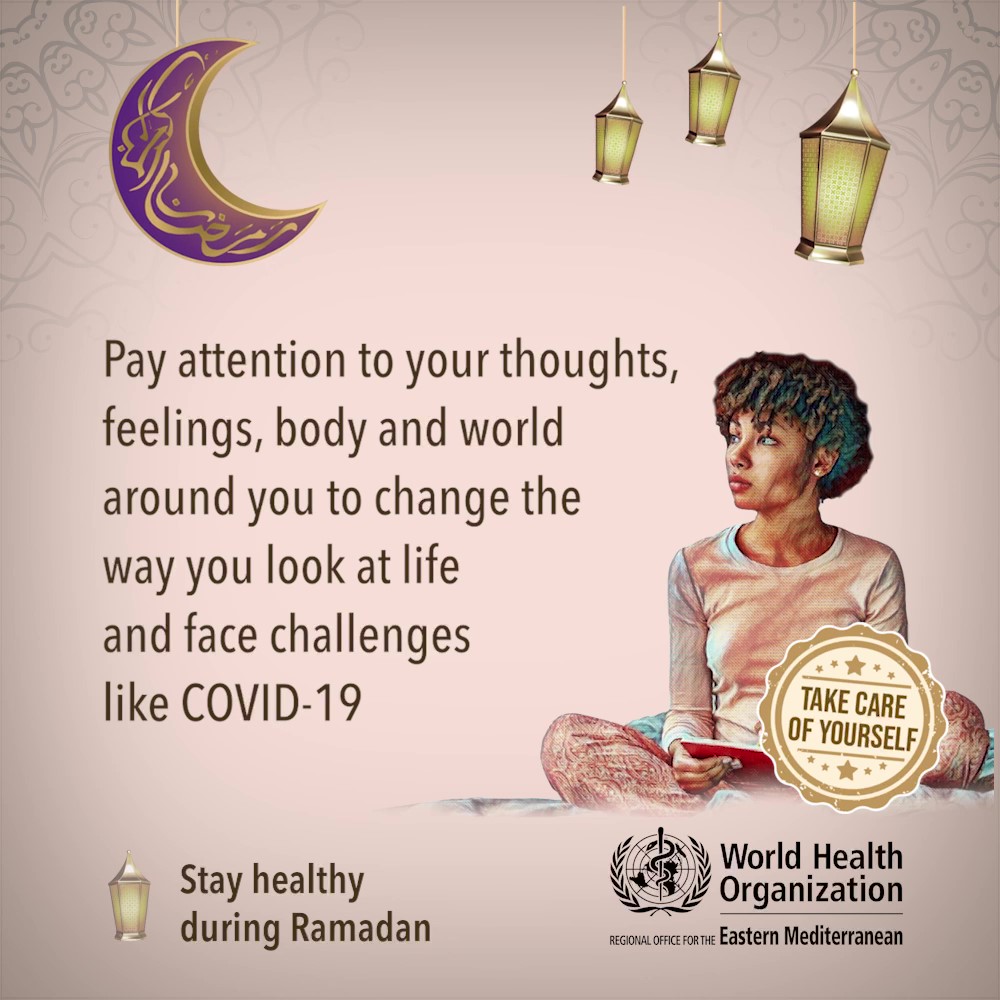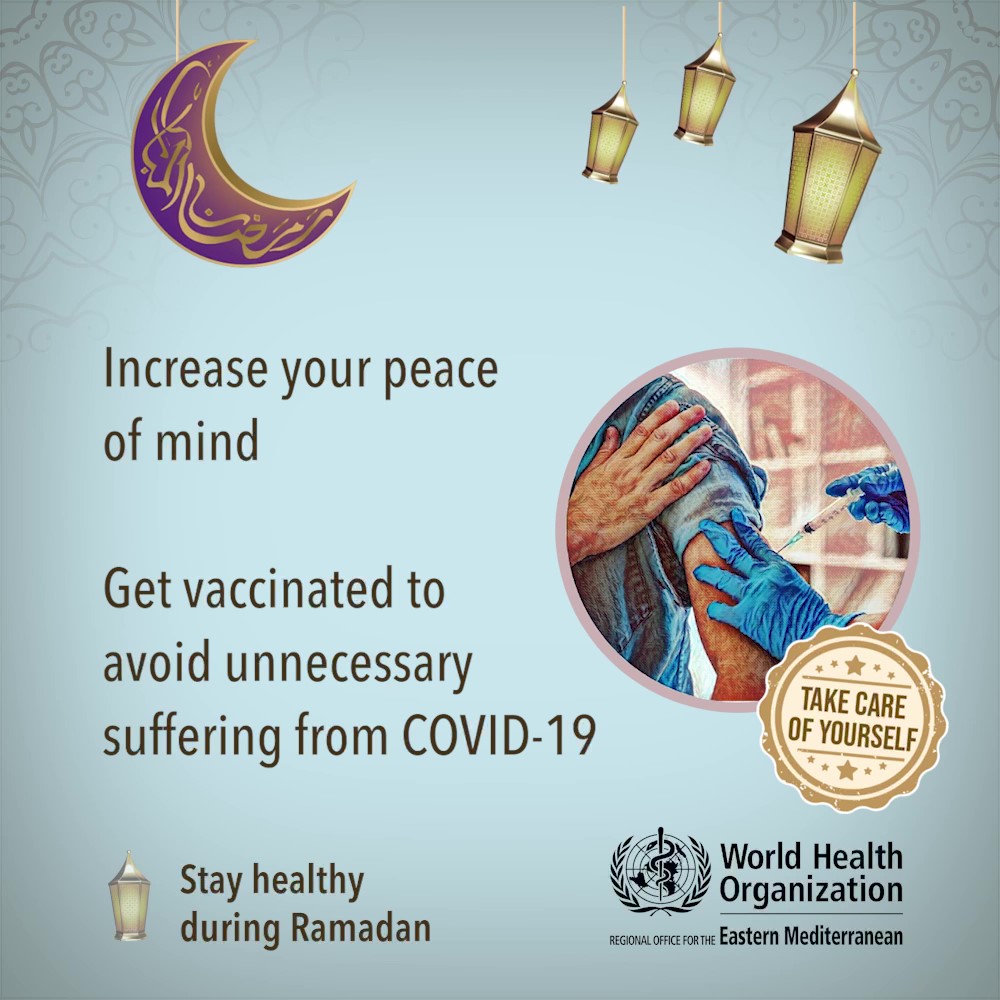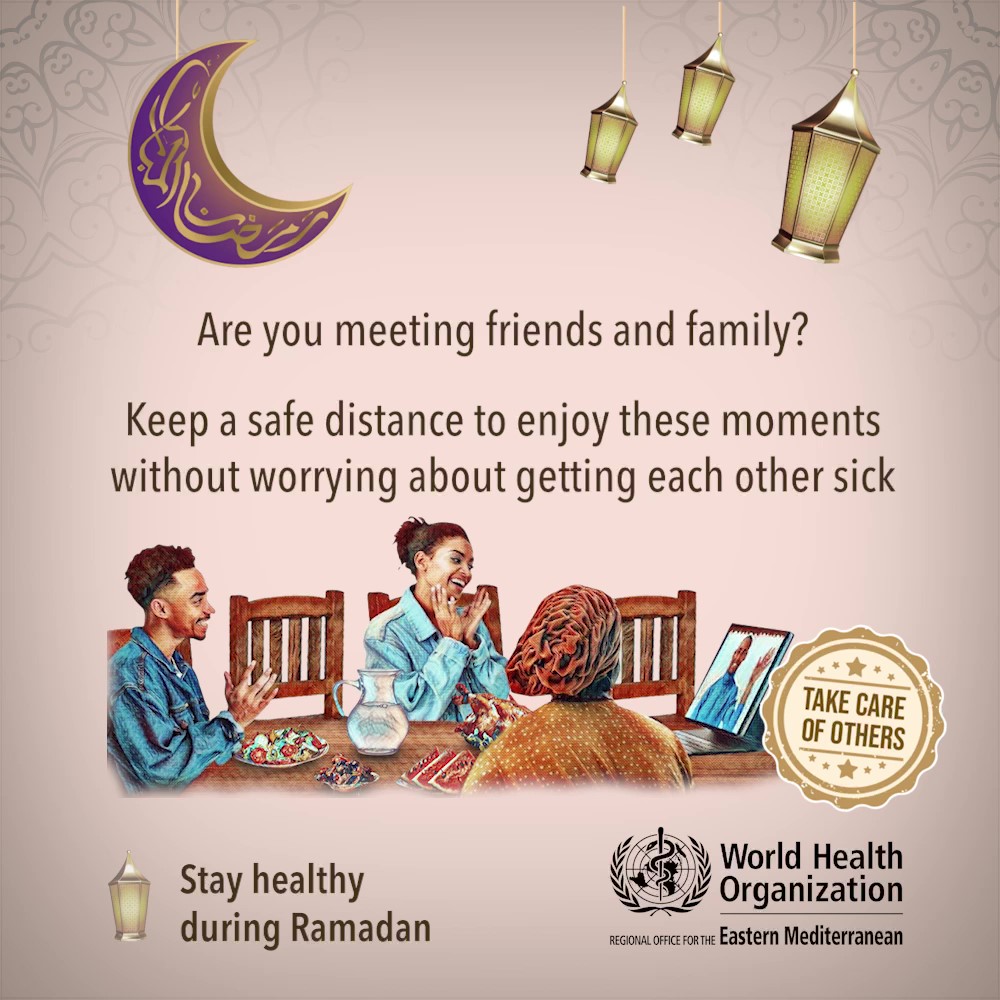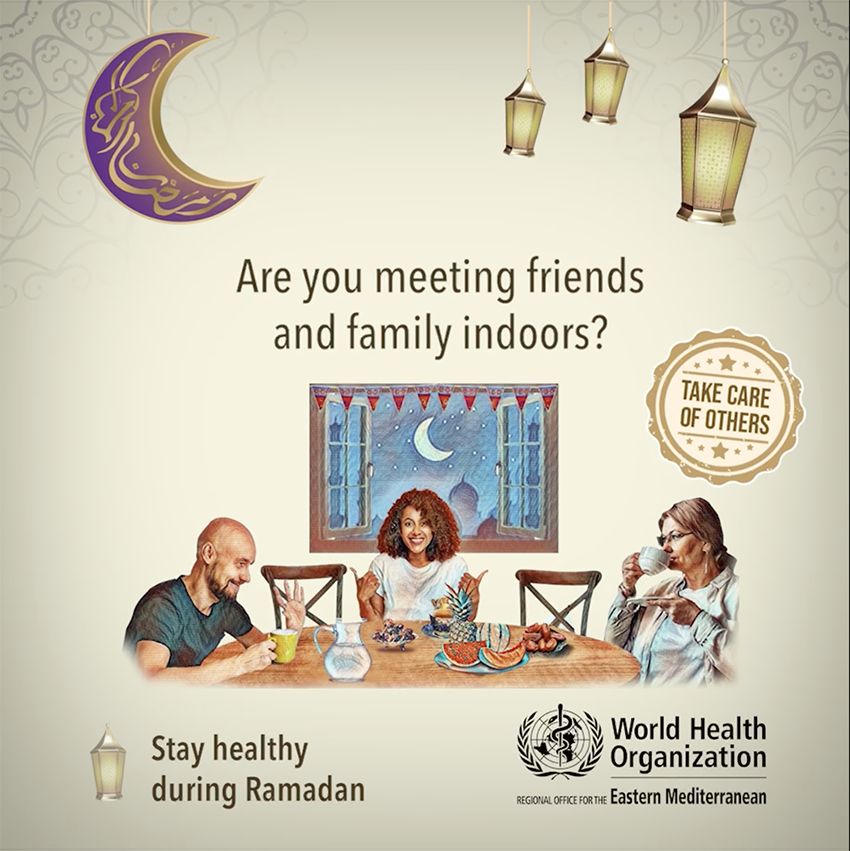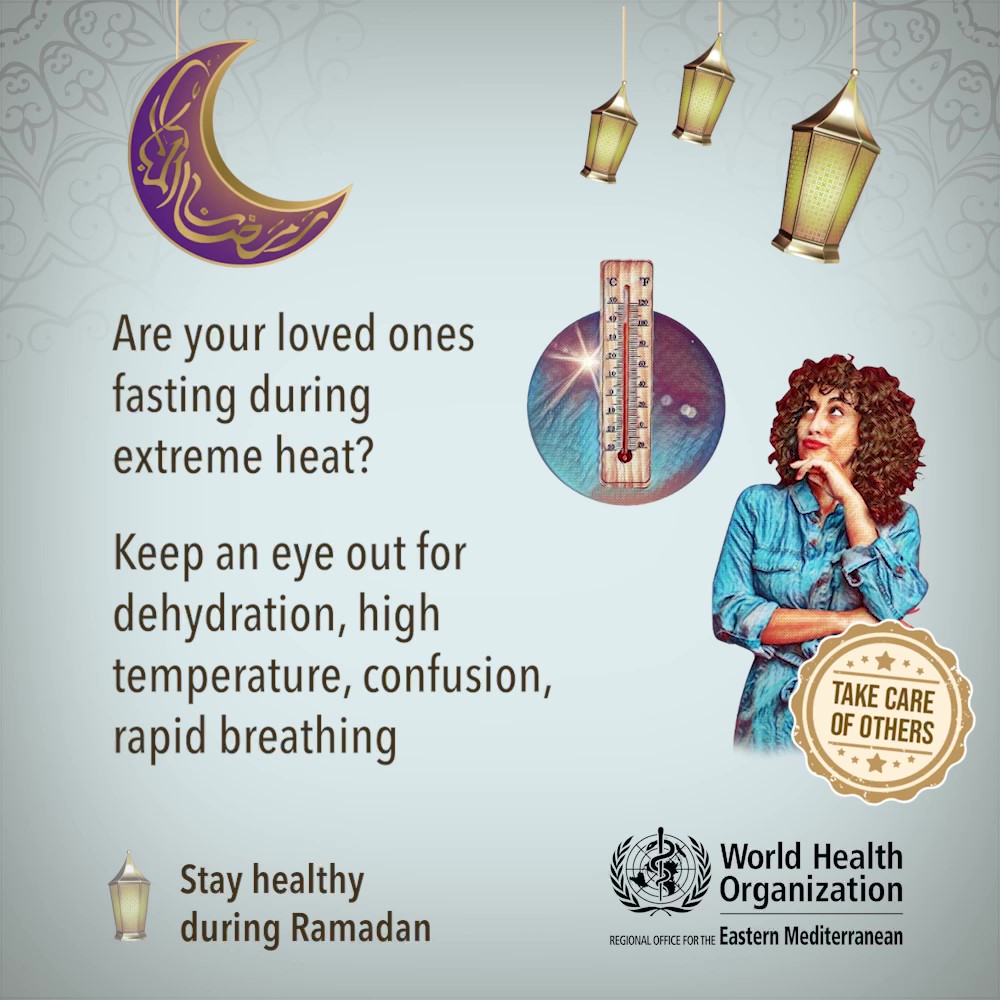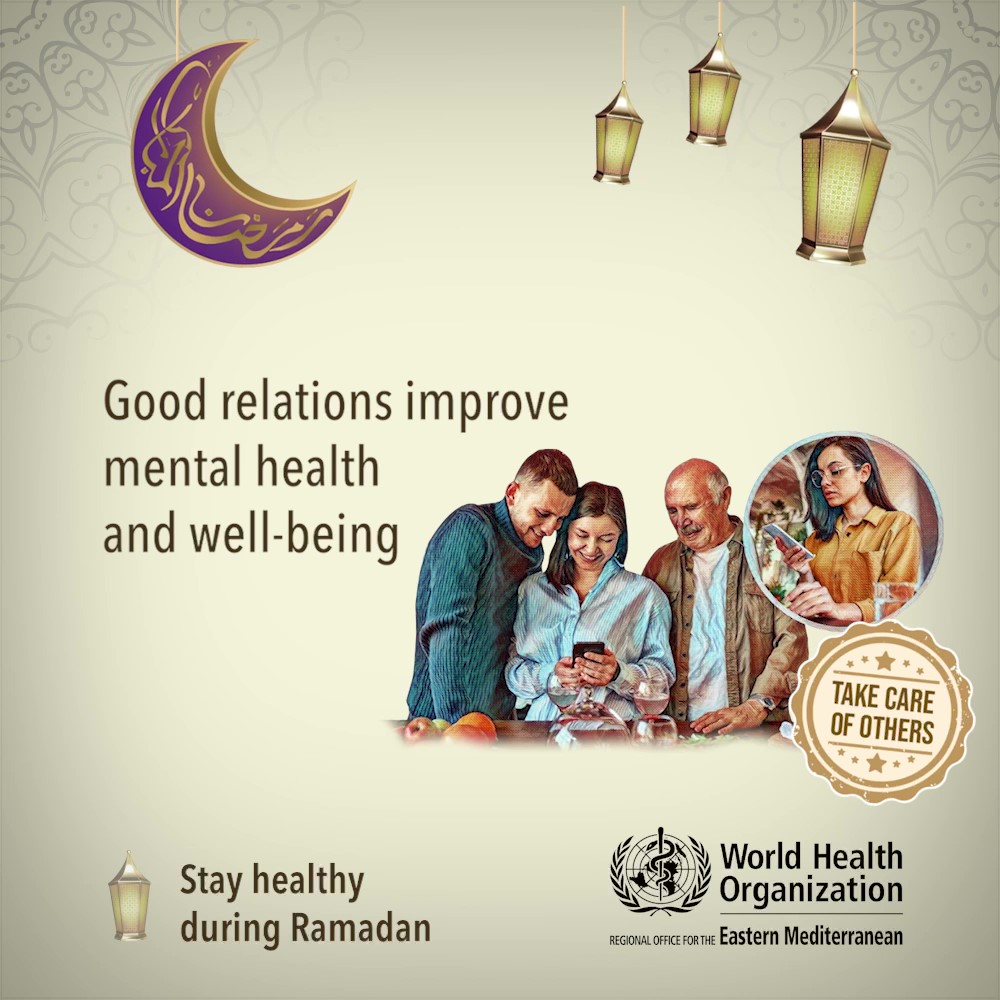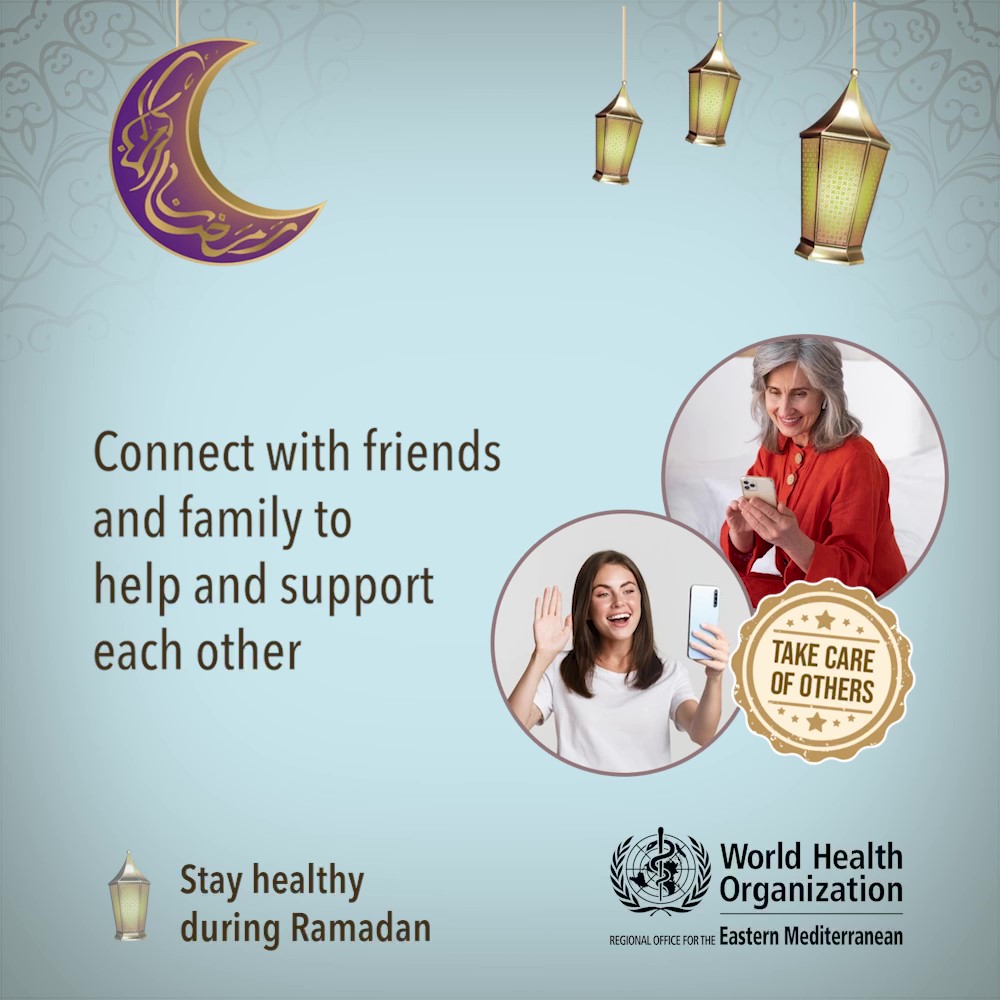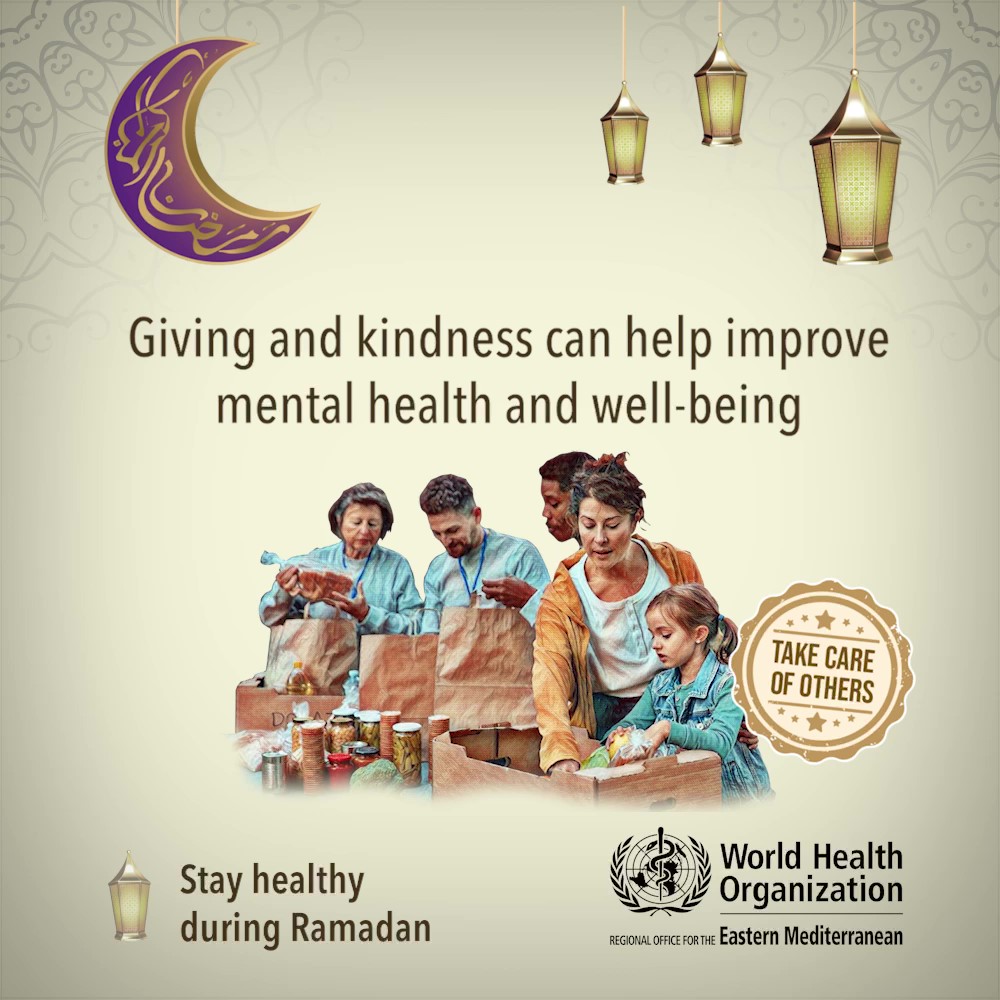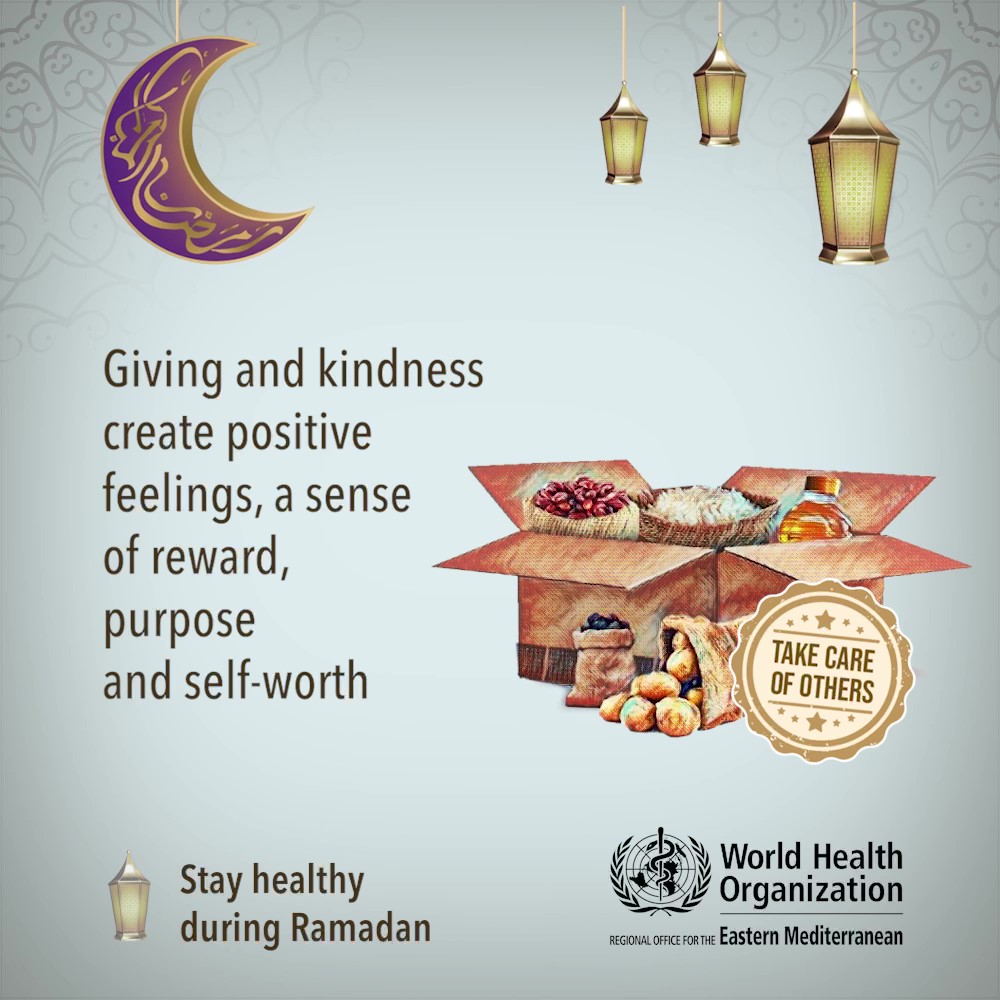Eat a balanced diet | Stay off tobacco and vaping | Take care of yourself and others
During the month of Ramadan, Muslims fast from dawn until sunset. They refrain from eating, drinking, smoking and vaping. They break their fast at sunset with a meal called Iftar and then eat again with a pre-dawn meal called Suhoor. Physical states and social interactions change during Ramadan, which might affect people’s mental health especially during this ongoing COVID-19 pandemic. That said, there is evidence to suggest that fasting can have positive effects on your health as well as boost your mental health and well-being, improve mood, help relieve stress, anxiety and depression. So stay healthy during Ramadan.
GIF | Stay healthy during Ramadan
Social tiles | Stay healthy during Ramadan
Eat a balanced diet and drink enough water
Social life during Ramadan is particularly active: people have guests or are hosted by relatives and friends. Visits are primarily centred on the meal that breaks the fast, which is a rich and festive meal, served with all the best foods. During Ramadan, some people may not undertake physical activity, and consequently, may gain weight during the month. People with diabetes may not control their condition well due to the adoption of unhealthy eating habits. By following simple guidelines, you may be able to lose weight and decrease your blood pressure and cholesterol. It is encouraged to try to maintain these practices even outside of fasting hours.
Drink plenty of water (at least 10 glasses) and eat hydrating foods such as soup, watermelon and green salad.
Avoid caffeinated drinks such as coffee, tea and cola, because caffeine can make some people urinate more often, which may lead to dehydration. Also remember that fizzy drinks with sugar will add calories to your diet.
Avoid the sun when temperatures are high. It is important to remain in a cool and shaded place.
Replenish your energy levels by eating a healthy, balanced Iftar.
Eat three dates to break your fast. Dates are an excellent source of fibre.
Incorporate plenty of vegetables to provide vital vitamins and nutrients.
Choose whole grains, which provide the body with energy and fibre.
Enjoy grilled or baked lean meat, skinless chicken and fish, to get a good portion of healthy protein.
In general, avoid fried and processed foods high in fat or sugar.
Enjoy your meal and avoid overeating by eating slowly.
Eat a light Suhoor every day. This applies especially to special groups such as older people, adolescents, pregnant women and nursing mothers, as well as children who choose to fast.
Include vegetables, a serving of carbohydrates such as bread/bread roll made from wholewheat, protein-rich food such as dairy products (cheese that is not salty/labane/milk) and/or egg, as well as a tehina/avocado side dish.
Avoid too many sweets and limit fat and salt intake. Sweets commonly eaten during Ramadan contain large amounts of sugar syrup.
The recommended sweet for consumption is cold water-containing fruit such as watermelon/melon or any other seasonal fruit such as peach or nectarine.
You should try to limit the consumption of foods rich in fat, especially fatty meats, foods made with puff pastry, or pastry with added fat/margarine or butter.
Rather than frying, it is recommended to use other methods of cooking such as steaming, cooking in sauce, stir-frying in a small amount of oil and baking.
Avoid foods containing large amounts of salt, e.g. sausages, processed and salted meat and fish products, olives and pickles, snack foods, salty cheeses, various types of ready-made crackers, salads, spreads and sauces (such as mayonnaise, mustard, ketchup).
When preparing the meal, it is recommended to limit the use of salt as far as possible, and of course it is recommended to remove the salt shaker from the table. Use various herbs to enhance the flavour of foods being cooked.
Eat slowly, and in amounts appropriate to the needs of each individual. Big meals cause heartburn and discomfort.
Try to move as much as possible and to be active in the evenings, for example, by going for a regular daily walk.
Videos | Eat a balanced diet and drink enough water
GIFs | Eat a balanced diet and drink enough water
Fasting for special groups
Fasting with diabetes and hypertension
Fasting with diabetes can lead to complications that include low blood glucose, high blood glucose, dehydration, diabetic ketoacidosis in people with type 1 diabetes. People with type 1 diabetes are generally advised not to fast. People with type 2 diabetes and hypertension who have their conditions under control, either through diet or medication, may be able to fast. In any case, it is important that the decision about whether to fast is made on an individual basis in consultation with a healthcare provider, taking into account the severity of illness and the level of risk involved.
Diabetes and Ramadan guide to a safe fast
Fasting during pregnancy and breastfeeding
Pregnant or breastfeeding mothers who are healthy can consider fasting. However, it is important that the decision about whether to fast is made on an individual basis in consultation with a healthcare provider, taking into account the severity of the risk involved.
Video | Ramadan with diabetes
GIFs | Ramadan with diabetes
GIFs | Dietary advice for fasting with diabetes
Stay off tobacco and vaping
Tobacco and vaping are harmful and deadly. So don’t harm yourself and others around you during Ramadan and beyond. This holy month is a good time to re-evaluate your actions, practice self-restraint and adopt healthy behaviours. So stay off tobacco and vaping to protect yourself and people who breathe in the smoke around you.
During Ramadan, you stay off tobacco and vaping for 15 hours every day. So why not kick the habit once and for all? Ramadan is actually the perfect time to kick the habit.
Once again, Muslims are celebrating Ramadan during the ongoing COVID-19 pandemic so it is more important than ever to stay off tobacco and vaping during this pandemic and beyond. Smokers are more likely to develop a severe case of COVID-19. Waterpipe use can increase your chances of getting COVID-19. Tobacco products, heated tobacco products and vapes are dangerous to your health, and also hurt people who breathe in the smoke around you.
#CommitToQuit during Ramadan and this COVID-19 pandemic and beyond. Have a short conversation with Florence via video, audio or text. Florence is WHO’s 24/7 digital health worker and she can help you build your confidence to quit, make a plan, and recommend toll-free quitlines or apps. Florence does not collect or store any of your data because she respects your privacy.
So #CommitToQuit today with Florence because quitting smoking is more important than ever during Ramadan and this ongoing COVID-19 pandemic and beyond. We know from our data that many of you want to quit but lack the necessary support to do so. Speak to Florence to quit today. Tell your friends, family and co-workers about her. Florence also speaks English, French, and other languages.
GIFs | Stay off tobacco and vaping
GIFs | Take care of yourself
GIFs | Take care of others
Related links
Regional Director's statement on observing the holy month of Ramadan safely in 2022
Safe Ramadan practices in the context of COVID-19 and Emerging Variants









